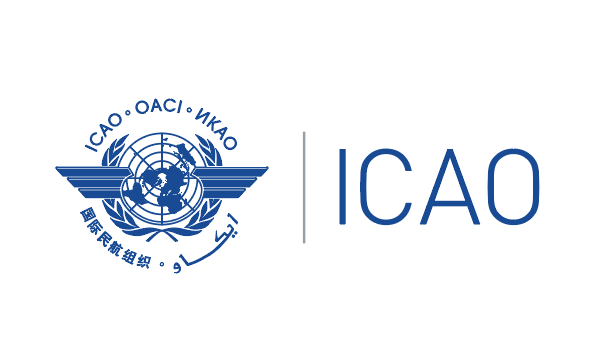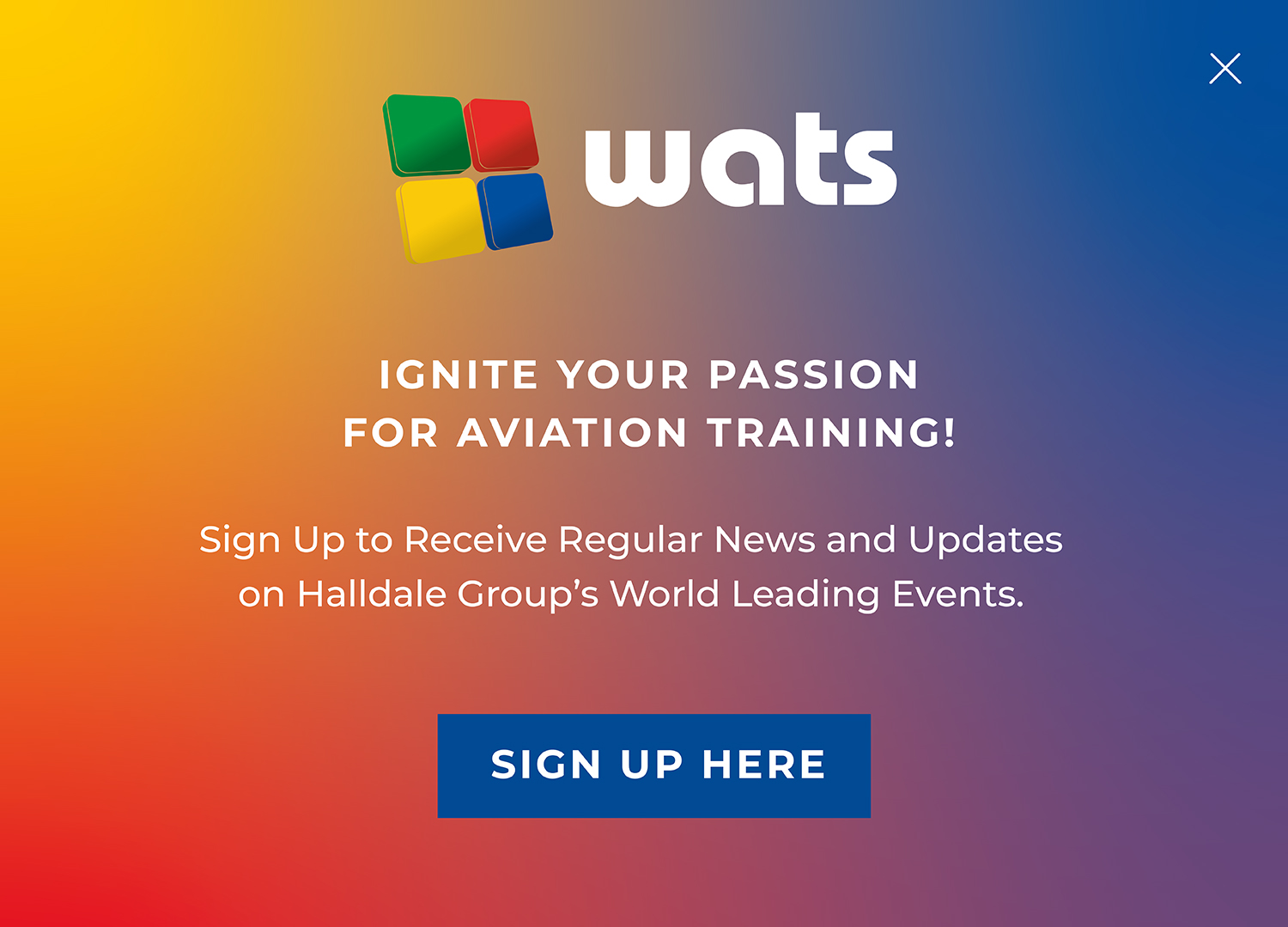Meet the Moderators & Speakers
Find out more about the WATS 2024 Moderators and Speakers and what they’ll be talking about.
Moderators

Rick Adams, Pilot Conference Moderator
Rick is co-publisher with D-L Nelson of Aviation Voices, the first AI-personalized newsletter for Commercial Aviation Safety & Trianing professionals. He is former Editor of The Journal of Civil Aviation Training (CAT) magazine and Military Simulation & Training (MS&T) magazine. Rick was Editor for five years of the ICAO Journal, the official magazine of the International Civil Aviation Organization (ICAO), the United Nations agency for aviation. He has also written for other aviation publications such as Aviation International News (AIN), Flight, Arabian Aerospace, IATA, Rotor & Wing, Military Technology, Naval Forces, Helicopter, Wings, and others.
Rick is a Fellow of the Royal Aeronautical Society (RAeS).
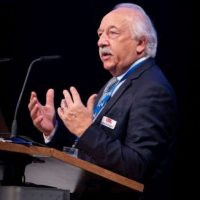
Captain Jacques Drappier, Pilot Conference Moderator
WATS Pilot Conference Moderator
APATS & EATS Conference Chair
Captain Drappier is a former Sabena management pilot. He started as a Cadet, and moved up the rands as FO, then as Captain. Whilst with Sabena he held various positions in the training and flight operations departments, ranging from instructor pilot to Director of the ab initio school, ending his time with them as Executive Vice President of Operations. At Airbus for four years he was responsible for all training programs, followed by two years as Senior Director Flight and Cabin Crew Training. His responsibilities included the development of all A380 training material. In 2007 he took the position of Vice President Training and Flight Operations, responsible for all training matters including four Airbus training centers, and all Flight Ops deliverables like operational documentation, performance software and safety management systems.
From January 2015 Jacques took on the role of Conference Chair at APATS, and in 2018 took over the Conference Chair of EATS.
Jacques Drappier has 14,500 hours and has flown all Airbus types from the first A300B2 to the A380 and is instructor on all Airbus FBW.

Ian Mitchell, Cabin Crew Conference Moderator
Lead Cabin Crew Designer, Air Canada
WATS Cabin Crew Conference Moderator
Ian began his career as a flight attendant with Wardair Canada in 1988. In 1990 Canadian Airlines International bought and merged with Wardair. In 1994 he joined Air Crew Training at Canadian Airlines as an Instructor/Developer. After a few years in this position, he discovered his real passion was for training design. When Air Canada bought Canadian Airlines in 2000, the training department was reorganized, and he became a training designer. Since then, he has served as lead training designer for numerous training programs and other training initiatives.

George Perrin, Maintenance Conference Moderator
Senior Manager of Tech Ops Training, Spirit Airlines
WATS Maintenance Conference Moderator
George Perrin’s aviation repair time started as he entered an A&P program for High School in the early 70’s. After receiving his A&P he continued to stay within the industry even to this day. He put in time as an A&P, IA (youngest in the State Michigan when issued), Lead, Manager and Director of Maintenance. His career fields ranged from General Aviatoin, Cargo, Corporate, Passenger, Air Ambulance, Repair Station and then the Airlines. The Airlines is where he remains today as the Senior Manager of Tech Ops Training at Spirit Airlines.
In 2023 George was awarded the Charles Taylor Master Mechanic Award.
The Charles Taylor Master Mechanic Award is the most prestigious award the FAA issues to persons certified under Title 14 of the Code of Federal Regulations (14 CFR) part 65. This award, named after Chalres Taylor, is to recognize individuals who have exhibited exemplary aviation expertise, distinguished professionalism, and steadfast commitment for at least 50 years or more of aviation maintenance experience.
The Charles Taylor “Master Mechanic” Award is named in honor of Charles Taylor, the first aviation mechanic in powered flight. He was a key figure in the building and maintaining of early Wright engines and airplanes and was instrumental in the powered flight of the Wright brothers in the Wright flyer.
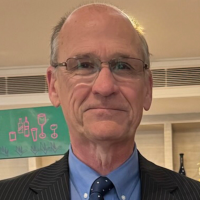
Paul Preidecker, Ab Initio Conference Moderator
Paul J. Preidecker (paul@flightdeckinsights.com) has been involved in aviation training and education for more than 30 years. He retired from a regional airline where he held positions of chief flight instructor, examiner, and captain. Paul’s aviation industry experience includes serving on a FAA Aviation Rulemaking Committee, as facilitator of the Aviation Rulemaking Advisory Committee’s Standardized Curriculum Working Group for Part 135, and contributing as an invited speaker at the NTSB. In addition, he served as chair of the Flight Training Committee for the Regional Airline Association as well as co-chair for the Flight Operations Steering Committee at Bombardier.
Now serving as Halldale’s North American Airline Consultant, Paul has been associated with the Halldale Group for more than 15 years. He has been a frequent presenter at the World Aviation Training Summit (WATS) and he often moderates panel discussions and industry sessions on training.
In addition to airline industry activities, Paul is president for the National Association of Flight Instructors, and he contributes to several aviation publications. President of his own company, Paul continues to work with training organizations to develop curriculum and best practices for more effective flight training.
A frequent international traveler, Paul enjoys living in Madison, Wisconsin and Phoenix, Arizona.
Speakers

Dr. Kathy Abbott, Chief Scientific and Technical Advisor for Flight Deck Human Factors, Federal Aviation Administration
Kathy Abbott, PhD, FRAeS, has over 40 years of experience specializing in aviation human factors. She currently serves as the Chief Scientific and Technical Advisor for Flight Deck Human Factors to the Federal Aviation Administration (FAA) on human performance and human error, systems design and analysis, flight crew training/qualification, flight path management, and flight crew operations and procedures. Dr. Abbott has led the integration of human engineering into FAA/International regulatory material and policies. She serves as the FAA liaison to industry and other government and international agencies dealing with human factors. She has led several major efforts on automation and manual flight operations, and she is the rapporteur of the Automation Working Group under the ICAO Personnel Training and Licensing Panel.
Pilot Training Conference
Day 2 – Wednesday 1st May 2024 – Session 5
Automation, Manual Flight and Monitoring: Results of a Study Report by the Automation Working Group of the International Civil Aviation Organization Personnel Training and Licensing Panel
Automation dependency/over-reliance has become an increasing concern, as introduction of advanced aircraft technology has been widely introduced. Although the increased use of automation has enhanced safety, it has likely contributed to insufficient manual flying practice and potentially a degradation of pilot skills for manual flight operations. These skills are essential for safe flight operations.
As part of the International Civil Aviation Organization (ICAO) Personnel Training and Licensing Panel, a working group on Automation was assigned the task of identifying the scope of automation dependency issues. The Automation Working Group was tasked with conducting a study to:
- Determine the scope of automation dependency issues.
- Identify operational procedures and associated policies and practices from a sampling of operators worldwide.
- Identify available guidance for how manual flying is conducted.
- Identify assumptions from aircraft manufacturers.
- Identify how or if automated systems and manual flying are being incorporated into basic licensing, initial and recurrent training, and testing.
- Identify related research and findings.
The Automation Working Group results for the study report are based on review and analysis of:
- Seventy-seven accidents and 309 major incidents worldwide in transport aircraft from 1990 to 2021,
- Forty operator policies representing all ICAO regions,
- How the areas of automation management, manual flight, and pilot monitoring (PM) are addressed in regulatory frameworks and associated regulator’s guidance material related to training and licensing from ICAO and eight ICAO Contracting States,
- Responses to a survey to manufacturers on several aspects of automation philosophy, design, pilot expectations, and training philosophy, and
- Over 200 research and other references that focused on automation and flight operations.
These results will be used to develop recommendations for potential changes to ICAO documents. This presentation will describe the findings of the Study Report, and relationship to the Federal Aviation Administration’s Advisory Circular 120-123 Flightpath Management.

Dr. Julian Abich, Senior Human Factors Engineer, Quantum Improvements Consulting
Dr. Julian Abich IV is a Senior Human Factors Engineer at Quantum Improvements Consulting. His work focuses on implementing a user-centered approach to design, develop, and assess innovative training and learning solutions. Working side-by-side with stakeholders and end-users, his goal is to improve the experience, effectiveness, and efficiency of tasks, processes, and technologies. These technologies span from mobile to immersive platforms, such as augmented, virtual, and mixed reality. He continues to serve the research community through his national and international publications and presentations, top-tiered journal reviews, and participation in conference program committees, currently as the Conference Chair for MODSIM World 2024. He served on the UCF faculty and continues to support their Modeling and Simulation graduate program as a Graduate Faculty Scholar. He also advocates for Science, Technology, Engineering, Arts, and Mathematics (STEAM) outreach efforts by encouraging public support and fostering posterity’s interest within these domains.
Combined Session (Pilot/Cabin Crew/Maintenance/Ab Initio)
Day 3 – Thursday 2nd May 2024 – Session 10
Evaluation of the Multi-Place Mixed Reality Simulator for Aircrew Training
Extended reality (XR) technologies afford opportunities for training full aircrews. The benefit of supporting full aircrews simultaneously allows training on crew resource management (CRM). XR makes it possible to efficiently train and evaluate the factors that influence CRM, such as crew communication, decision-making, situation awareness, and teamwork. In addition to the benefits often gained through the implementation of XR training devices, such as increased effectiveness, higher throughput, lower costs, etc., training programs can be re-evaluated to leverage these devices for generating more accessible training.
The U.S. Air Force (USAF) has further progressed their Helicopter Training Next initiative to modernize rotary-wing aircrew training. The Multi-Place Mixed Reality (MPMR) simulator combines the physical avionics panels and aircraft controls with realistic virtual environments. The MPMR provides the hardware and software needed to support full rotary-wing aircrew training. The reconfigurability of the MPMR also allows training sessions to be customized for all aircrew positions, making it possible to scale the training device as needed. To ensure the MPMR meets the needs for aircrew training, a usability and user experience evaluation was conducted.
This presentation will discuss the effort to systematically evaluate all components of the MPMR rotary-wing aircrew training device. Usability and user experience data was collected from current USAF instructor pilots, flight engineers, and student pilots. A combination of questionnaires and think-aloud protocol was used to capture participant feedback. Presented will be an overview of data collection methodologies applied, justification for the designed measures chosen and customized, key findings, and the transformation of the data into design recommendations to improve the MPMR. Further, insights will be presented regarding many uncovered training benefits realized through a modular XR crew training device.

Captain Philip Adrian, CEO, Multi Pilot Simulations
Captain Philip Adrian, FRAeS, currently serves as the CEO of MPS, the leading Fixed Based Simulator manufacturer for the Airbus A320 and Boeing B737 series. He leads two factories, one in the Netherlands and one in Germany, and an innovative team in the Netherlands. MPS partners with airlines, training organizations, OEMs and TDMs to provide tailored and innovative solutions for all training needs.
Philip started as the MPS CEO in May 2018 after 11 years at Boeing, where he fulfilled multiple roles, lastly as Chief Pilot Regulatory Strategy. He joined Boeing as an airplane instructor on 737, 777 and 787 in August 2007, and further served as Boeing’s 737/737 MAX Chief Technical Pilot, Assistant Chief Pilot, and Chief Pilot Regulatory Affairs. He was responsible for setting and coordinating global training standards and regulatory EIS support of new Boeing airplanes such as the 787, 737 MAX and 777X ranges. He was also involved in the design and flight testing of all new Boeing products, including the NMA range.
Before coming to Boeing, Philip was an airline Captain, Instructor/Examiner, and served as Head of Training, as well as in other management and executive positions for a major European airline for over 15 years.
Philip’s career started in the Royal Netherlands Air Force, where he went through Officers and Flight training, and he was a Flight Instructor prior to joining the airline in 1992.
During his entire career, he has served on several rulemaking tasks in the aviation industry, including FAA ARCs, EASA RMTs and many boards regarding Flight Safety, Aviation Security and Crew Resource Management.
Philip co-chaired the FAA ARC regarding UPRT and chaired the ICAO LOCART initiative and EASA RMT.0581/0582 on UPRT.
He currently chairs the EASA RMT.0599 regarding EBT and Performance Based Rulemaking, leads the EASA ABLE (Aviation Blended Learning Environment) task while also serving as a Team Leader of the Training Expert Group supporting EASA RMT.0196.
Philip also is the current Chair of the RAeS Flight Crew Training Group.
He is considered a Subject Matter Expert on Aviation Training, Simulation, Operational Suitability, EBT/CBT, UPRT, and world-wide operational regulatory affairs, and speaks on these issues regularly at multiple forums.
Philip holds 737, 777, and 787 Type Ratings, and has instructed on all those types. In his career, Philip has operated, flight tested and instructed for over 13,000 flight hours.
Pilot Training Conference
Day 1 – Tuesday 30th April 2024 – Session 3
Training Optimization Through Modern Knowledge and Technology
The intent of this presentation is a “blank-sheet approach to pilot training”, which should be seen as a way forward if we were not restricted by any current regulation, and we would be able to focus solely on delivering the highest quality candidate to an airline. It therefore should also be able to form the basis for a discussion at the ICAO-level on optimization of and changes to future training, addressing important issues as access to the profession or minorities and underrepresented groups, environmental impact reductions etc.
The presentation is divided into several sections where significant improvements should lead to higher quality training at lower cost, with a lower environmental impact at the same time. The time has come to change the global view of pilot training and update the system to take full advantage of learning improvements and technology advancements.
The presentation will deal with Selection of the proper candidate, then address the change to a Competency Based Training and Assessment (CBTA). It will then show new views on Learning Methodology, Technology Improvement, and last but not least provide an updated view on the changed Competency Requirements of airlines to which the training should cater.
This presentation should be seen as the basis of a discussion to transition to better, more sustainable and more available pilot training, where cost is no longer seen as a risk, but as a solid investment into a rewarding career as an airline pilot for all who qualify for the job. This approach therefore would open up this profession to those who have historically been excluded because for lack of funding, being from a different cultural background or any other of the plethora of reasons currently restricting access to the profession.

Irwin Alcantara, Director, Customer Success - Americas, Loglevel LLC
Irwin boasts over 24 years of aviation experience, beginning his highly decorated journey in the military as an Armament, Electrical, and Avionics Systems repairer for AH-64 Apache helicopters. From hands-on technician roles to supervisory capacities, and from serving as an instructor to becoming a Master Instructor, Irwin has navigated both management and educational terrains with aplomb. An Embry-Riddle alumnus, he holds a BS in Professional Aeronautics and a minor in Aviation Safety. After an early retirement, he pivoted to courseware development and management for the AH-64 Longbow and Guardian Helicopters. In the late 2010s, he embraced commercial aviation by joining ATI, a part 121 cargo airline, as their training manager. Since 2020, Irwin has been at the helm of the aviation division of Loglevel, a SaaS company that specializes in Training/Competencies Management Systems, among other software products.
Maintenance Training Conference
Day 2 – Wednesday 1st May 2024 – Session 8
The Future of Aircraft Maintenance Training: Harnessing AI’s Potential
Aircraft maintenance training stands as the cornerstone of aviation safety, ensuring that planes maintain their peak performance in the skies. Beyond adhering to the strict standards of the Federal Aviation Regulation (FAR), optimal training strategies influence the operational success of an organization by refining the expertise of its teams.
In the dynamic world of aviation, characterized by ever-evolving workforce trends and rapid technological innovations, there’s an evident need to adapt our training methodologies. The introduction of Artificial Intelligence (AI) in this realm offers promising avenues for transformation.
While AI’s sweeping changes across various sectors are undeniable, its assimilation into aviation, a highly regulated field, presents unique challenges and opportunities. It’s crucial to meld AI’s capabilities with the foundational principles of aviation, ensuring safety and efficiency aren’t compromised.
One of the significant shifts in aviation training is accommodating the diverse learning patterns of modern maintainers. The traditional blanket training approach is gradually giving way to more personalized and adaptive strategies. AI, with its precise analytical capabilities, enables tailored training experiences, such as individualized essay evaluations, ensuring each trainee’s unique needs are met. Additionally, AI-driven tools assist in curating contemporary training content that speaks directly to today’s technicians, making learning more intuitive and effective.
Furthermore, innovations like AI-powered voice narration and dynamic visuals bring about enhanced engagement, comprehension, and retention among trainees. The visual aids, powered by AI, transform static images into interactive diagrams, providing deeper insights and understanding.
In conclusion, while AI is undeniably a transformative force, its true potential in aviation training unfolds when harmoniously integrated with established practices. This symbiosis promises a future where aviation training remains at the forefront of technological and pedagogical advancements.
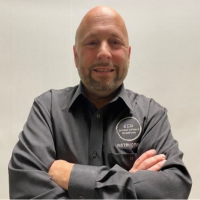
Jose Alfonso, Founder & Co-Owner, Empower Communications Group LLC
Jose Alfonso is a retired 30-year veteran of the Boston Police Department and is the owner and founder of Empower Communications Group. Mr. Alfonso has over two decades of experience as a professional law enforcement trainer and has developed research-based curriculum for first responders. As a law enforcement trainer, he holds several instructor certifications in disciplines such as:
- Defensive tactics / Use of force
- Applied patrol response and tactics.
- Patrol response to active shooter events
- S.P.E.A.R (Spontaneous Protection Enabling Accelerated Response).
- De-escalation strategies
- Edge weapon awareness and defense instructor
- 35 years’ experience in different disciplines of martial arts
In early 2021, as a response to the increased number of unruly passenger incidents that were occurring in the airline industry, “LOUDER” de-escalation strategies was created by Jose Alfonso and Darryl Owens. The course is based on the best practices from both law enforcement and the medical profession on de-escalation strategies. Since 2021 nine thousand people have been trained and the course has now been accepted as part of the behavioral health studies at MASSBAY College in Massachusetts.
Cabin Crew Training Conference
Day 2 – Wednesday 1st May 2024 – Session 5
Tackling the Gorilla in Scenario-Based Training
We have been developing research-based scenario training for first responders and civilians for over twenty years. At this year’s WATS conference, we will share our success in reality-based training. We will also illuminate the fundamentals of developing scenarios designed to EMPOWER professionals for the challenges of the workplace. This scenario-based training model is customizable for all work environments but will be discussed from a cabin-crew perspective. Topics to be covered include:
- Building the foundation
- Understanding and outlining objectives
- Scenario outcomes
- Role player instructions
- Facilitating the scenario

Paulo M. Alves, MD, MSc, FAsMA, Global Medical Director, Aviation Health, MedAire
Paulo M. Alves, MD, MSc, provides technical guidance and analysis for MedAire’s MedLink medical advisory service, as well as is a member of the MedAire Medical Advisory Board.
Dr. Alves is also MedAire’s liaison with civil aviation regulators and industry associations on all matters addressing aviation medicine.
A trained cardiologist, Dr. Alves previously worked at Varig Brazilian Airlines for 23 years, 10 of which he was the General Medical Manager. He is a past member of the IATA Medical Advisory Group from 2002 to 2006, a past president for the Airlines Medical Directors Association, past president of the Brazilian Society of Aerospace Medicine, and past-Chair of Aerospace Medical Association’s (AsMA), Air Transport Medicine Committee.
Today Dr. Alves is a member of the International Academy of Aerospace Medicine, a Fellow of the Aerospace Medical Association (AsMA), a Fellow of the Civil Aviation Medical Association, the president of the Ibero-American Aerospace Medical Association, a member of the National Business Aviation Association (NBAA) Safety Committee, and an active participant in the Collaborative Arrangement for the Prevention and Management of Public Health Events in Civil Aviation (CAPSCA) which is managed by the International Civil Aviation Organization (ICAO) with support from the World Health Organization (WHO).
Cabin Crew Training Conference
Day 1 – Tuesday 30th April 2024 – Session 3
Crewmember Training Impact on Airline Operations: A Focus on Health, Security, and Overall Safety
The safety and well-being of crewmembers are paramount for airline operations. This session aims to highlight the critical role crewmember training plays in enhancing overall airline performance by ensuring crew health, security, and safety during layovers. Drawing from MedAire’s vast experience and real-life cases, we will explore insightful data demonstrating crewmembers’ potential risks during layovers and the consequential impact on airlines’ operational efficiency.
The session will delve deeper into specific incidents where crewmembers were exposed to safety concerns during layovers, underscoring the critical need for targeted training to reduce their vulnerability. By understanding the varying risks associated with layovers, airlines can take a proactive approach in prioritising crewmember training to promote a safer and healthier working environment. This can significantly contribute to the personal well-being of crewmembers and the functional efficiency of airline operations.
Furthermore, we will examine the importance of equipping crewmembers with the necessary skills and knowledge to lower their risk of exposure to illness, injuries, and security incidents. This includes fostering situational awareness, adhering to travel safety protocols, and emphasising personal responsibility for maintaining optimal health and wellness. We believe that a well-trained crew is the cornerstone of a thriving airline – enhancing customer satisfaction, earning a reputation for safety and reliability, and ultimately fostering sustainable growth in the competitive aviation landscape.
Join us for this comprehensive analysis as we bring the expertise of MedAire to the forefront, empowering airlines to recognise the value of investing in crewmember training. We aim to give attendees a fresh perspective on how prioritising crew health, security, and overall safety can significantly impact airline operations, leading to long-term success in this highly demanding industry.
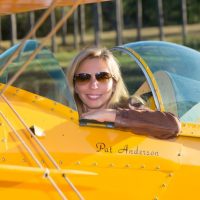
Dr. Carolina Anderson, Associate Professor, Embry-Riddle Aeronautical University
Dr. Anderson was born in Bogota, Colombia, and was introduced to aviation at an early age by her dad who flew for Avianca, the main Colombian airline; she started flying gliders at age 14 and soloed at 16, towed by her dad in a Super Cub. Later on, she earned her private pilot certificate while she was attending school pursuing a mechanical engineering degree so that she could understand better how airplanes work.
Dr. Anderson is an Associate Professor of Aeronautical Science in the College of Aviation at ERAU. Dr. Anderson holds a Ph.D. in Aviation from Embry-Riddle Aeronautical University (ERAU), she graduated with the first group of Ph.D. graduates at ERAU in December of 2013, and became the first woman with a Ph.D. in Aviation. Dr. Anderson also holds a Master in Business Administration in Aviation From ERAU, and a B.S. in Mechanical Engineering from Los Andes University in Bogota, Colombia. In addition, Dr. Anderson holds an ATP and Commercial Pilot certificates in single engine, multi-engine, instrument airplanes, gliders and seaplanes; CFI in gliders, Instrument, single and multi-engine airplanes; Check Pilot and Training Center Evaluator. Dr. Anderson has over 4,000 hours of flight time, and over 3,500 hours of flight instruction. Dr. Anderson began her career at ERAU in the fall of 2000, as a flight instructor for the flight department. In her 11 year tenure with the flight department at ERAU she performed the duties of Flight Instructor, Team Safety Leader, Flight Standards Check Pilot, and Training Manager; approved to teach and perform check-rides in all airplanes and courses. In 2011, she joined the faculty of the Aeronautical Science Department. Dr. Anderson has participated in numerous research projects and publications in the areas of Unmanned Aerial Vehicles (UAVs), alternative fuels, flight testing and simulation, upset recovery training, aircraft certification, aviation safety, STEM education, and text mining and statistical analysis.
Dr. Anderson is a member of AOPA High School Steering committee, she participated in the 14 CFR Part 23 Aircraft Certification Aviation Rulemaking Committee (ARC) and was appointed CHair of the Industry Liaison Subcommittee of the ASTM F-44 GA aircraft certification chapter. Dr. Anderson is very passionate about promoting aviation, aerospace and STEM education among young students; she spends most of her free time volunteering for recreational aviation organizations. She is the vice president of an IAC (International Aerobatic Club) chapter that is part of EAA; she is the faculty advisor of the Sport Aviation Club at ERAU, and President of the Daytona Chapter of the 99’s. Dr. Anderson has also been in charge of the Girls Exploring Math and Science camp at ERAU, she has been the coach for the Women Air Race Classic team for ERAU, a mentor for Women Soar you Soar at EAA Airventure, and the vice president of the Eagle Sport Aviation Club. Dr. Anderson and her husband (who is an engineering professor at ERAU) have created several “junior programs” around the country that specialize in teaching high school students to fly in gliders, LSA, and tailwheel airplanes. Dr. Anderson also has over 20 years of experience in General Aviation in the U.S. and internationally as an aircraft owner, operator, flight instructor and volunteer of many General Aviation Organizations.
Ab Initio Training Conference
Day 2 – Wednesday 1st May 2024 – Session 6
Increasing the Pilot Population by Improving Aviation STEM Education in High Schools
Under the FAA Workforce Grant, Embry-Riddle (ERAU) is developing two self-contained complete courses: 1) an online private pilot, and 2) an online Part 107 remote ground schools for high school students. The goal is to reach students and teachers from a diverse collection of public and private schools in rural, urban, and suburban areas to help provide access to aviation education and meet the industry’s growing labor needs. The idea is also to create opportunities for the improvement of communities that have been historically underserved. These courses could also be scaled and subdivided into smaller parts or modules that may be introduced to any high school teachers or be adapted for teacher training and events hosted by organizations such as the Federal Aviation Administration (FAA), the Aviation Career Education (ACE) Academy Schools, Experimental Aircraft Association (EAA), Aircraft Owners and Pilots Association (AOPA), Civil Air Patrol (CAP), and the Women in Aviation International (WAI).
This presentation will include an overview of the online courses as well as a summary of different Aviation STEM education programs and opportunities for high school students.
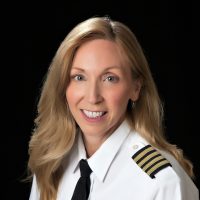
Captain Erika Armstrong, Pilot (Part 135 and 121)/Director of Marketing, Advanced Aircrew Academy
Erika has spent 30 years working in the aviation industry. From the front desk of a small FBO in Minnesota to the captain’s seat of an international commercial airliner, Erika Armstrong has experienced everything aviation has to offer.
During her piloting career, she was a Red Cross, charter, corporate, cargo, hazmat and air ambulance pilot flying twenty-eight different aircraft operating under Part 91 and 135 before going to the airlines where she flew all three seats on the Boeing 727-200. She is also an aviation professor, Instructional Designer and VP of Business Development at Advanced Aircrew Academy, and author of the bestselling book, A CHICK IN THE COCKPIT, which is currently going through screenplay adaptation.
Her experiences are bolstered by education. She has undergraduate journalism education from the University of Minnesota, a B.A. degree from the University of Denver in International Business and Economics, and a M.S. in progress from Embry-Riddle Aeronautical University. She is also the 2020 National Business Aviation Association’s Professionalism in Aviation Award winner and a Fellow of the Royal Aeronautical Society.
Most uniquely, 500,000 aviation enthusiasts and followers from around the world have considered Erika their aviation thought leader. She has been able to use her social media full stack platform to educate and share the joys of aviation to inspire the next generation of pilots.
Combined Session (Pilot/Cabin Crew/Maintenance/Ab Initio)
Day 1 – Tuesday 30th April 2024 – Session 1
The Pilot Brain: How Personality Affects Safety
We train pilots on aircraft systems, propulsion, performance, rules, regulations, Operating Specifications and all the nuances of moving an aircraft through the air, but we never teach them about the most important operating system in the flight deck; their own brains.
In my presentation, The Pilot Brain: How Personality Affects Safety, I will give an overview of how we test vs train pilots, how personality affects how pilots learn, and specific observable behaviors common among the personality traits that make up the superpowers of pilots, but those same strengths can be turned into kryptonite during an emergency.
A pilot’s personality amplifies their skill but can be a double-edged sword for safety. The audience will also learn why the brain accesses information by a different pathway in the flight deck versus the simulator, and what to do during those first few moments after an emergency or anomaly begins.

Amanda Bentley, Senior Director Integration Sales, Americas, Tobii
Amanda Bentley is the senior director of integration sales, Americas at Tobii. With over a decade of experience, she brings deep expertise in eye tracking, research, and healthcare combined with strong information and communication technology acument to Fortune 500 corporations, innovative startups, and government agencies. Amanda thrives in being the bridge between technology and sales. Before Tobii, she was a market research specialist at Owens Corning, where she served as an ethnographic researcher and practitioner in support of product launches and data processing. Amanda holds a master’s degree in research psychology from Cleveland University and a bachelor’s in psychology, biology, and chemistry from Gannon University.
Combined Session (Pilot/Cabin Crew/Maintenance/Ab Initio)
Day 3 – Thursday 2nd May 2024 – Session 10
Building Disruptive Training with XR and Eye Tracking
The aviation training industry is ripe for disruption. While the current system of flight manuals, paper tigers, and mockups is time-tested, training costs and retrain rates are rising in part because of the process’ poor ecological validity. The current system requires a significant amount of rote memorization in an environment that is completely different from the place pilots will ultimately employ their skills – a flight deck.
The combination of VR headsets and eye tracking technology offers the industry a novel, cost-efficient, and ecologically valid way to both train and assess pilots. Giving trainees access to a near-exact replica of their flight deck in virtual reality allows them to learn and practice their skills in as similar an environment as possible to the real world. Operating costs for VR headsets are much less than full-flight simulators, meaning trainees can spend more time practicing in a simulated flight deck environment.
The addition of eye tracking into this virtual training environment unlocks useful insights about a trainee’s attention and skill development that can be critical for improving training effectiveness and assessment outcomes. Eye tracking allows trainers to confirm that a prospective pilot has completed all of their visual-only tasks in addition to physical tasks, which are easier to verify. This eye tracking data is also recorded so a trainee and their trainer can review the session afterward to identify areas for improvement.
By giving prospective pilots access to a more realistic training environment and more detailed insights about their performance, VR and eye tracking technology will ensure that trainees are as prepared as possible for their full-flight simulator sessions and real-world flights.

Thomas Bessiere, Founder & CEO, Hinfact
Thomas Bessiere is the founder and CEO of Hinfact, a company focused on improving pilot training through advanced data management solutions. He holds degrees in Aerospace Engineering from SUPAERO and in Technological Innovation and Entrepreneurship from Polytechnique. Before founding Hinfact, he has worked at Airbus, applying artificial intelligence to optimize aircraft performance, and worked as a consultant on strategy for major aeronautical companies, combining technological insight with practical business applications.
Pilot Training Conference
Day 2 – Wednesday 1st May 2024 – Session 6
Enhanced (and Simplified) Pilot Training Management: The Convergence of Neuroergonomics and AI
As aircraft become increasingly complex, the need for intuitive and efficient cockpit designs is more critical than ever. By leveraging advancements in Human Factors and Neuroergonomics, we reduce cognitive loads, allowing pilots to focus on essential tasks. Extending these principles to aviation training management with the integration of AI can significantly transform the industry.
This approach not only streamlines processes for all stakeholders – including instructors, training managers, compliance managers, and training designers – but also empowers them to handle much more complex and sophisticated tasks than before, in simpler and more effective ways.
AI facilitates this transformation by enabling the development and planning of adaptive and tailored training programs that respond in real-time to the individual performance of pilots, thereby optimizing learning outcomes. This presentation will explore how applying a Neuroergonomics framework within a Training Management System (TMS) can not only simplify the delivery of pilot training, but also significantly enhance its complexity and effectiveness, benefiting all involved stakeholders.

Capt. Jean-Michel Bigarré, Founder & President, AMFTA
Jean-Michel leads AMFTA as Founder & President, drawing upon 30 years experience in aviation and flight training. In 2019, he founded AMFTA as part of his vision to improve flight safety via the creation of a harmonised flight training level worldwide.
Previously, Jean-Michel was Head of Flight Training Worldwide & VP Training and Flight Ops, for major jet and turboprop aircraft manufacturers (notably Airbus, ATR…) and has held executive positions including CEO & Member of Executive Board for different aircraft and simulator companies. During this time he was instrumental in developing training technologies whilst growing business revenue through innovative solutions, all the while focusing on enhancing flight safety. His wide airline experience also extends to the start-up and restructuring of several airlines.
Jean-Michel graduated at Air France and the French Civil Aviation University (ENAC) and began his career working for a major European airline, before joining the French Aviation Authorities to manage ab initio & advanced training. Throughout his career, Jean-Michel has flown for many different airlines and still flies on a regular basis. He is current on the A320/A330/A350 & A380 and is still acting as Instructor and Examiner on both Airbus aircraft and light aircraft
Pilot Training Conference
Day 2 – Wednesday 1st May 2024 – Session 8
Airline Training Leaders Panel
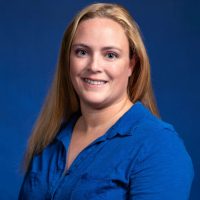
Samantha Bowyer, Associate Professor, Embry-Riddle Aeronautical University
Samantha Bowyer holds a Bachelor of Business Administration with a concentration in Management and a Masters of Business Administration with a focus in Project Management. Ms. Bowyer is a certified Project Management Professional. She is also a certified flight instructor in airplanes single- and multi-engine, including an instrument rating. She has experience working with and developing 141 and 142 curriculums. Serving as the assistant chief flight instructor she gained experience collaborating with TSA, FSDO, ICE, and SEVIS. Later starting her own small flight school. Ms. Bowyer has experience running an aerospace academy at a public Florida high school. In her tenure at the high school, she built the 4-year course program and much of the curriculum while working with the Gatez Aerospace Institute of ERAU. Her project management background proved relevant in the classroom, especially as her program took on the task of building an RV-12 at the high school. In 2018 she joined ERAU’s Aeronautical Science Department and is now pursuing her Doctorate of Business Administration in Project Management. Her research focus is on using project skills to improve curriculum and program development of aviation eduction.
In her free time you can find her in her Cherokee 180, in her kayak on the Halifx, or hitting some trails with her two kids.
Ab Initio Training Conference
Day 1 – Tuesday 30th April 2024 – Session 3
Different Approaches, Same Outcomes? A Panel Discussion on Ab Initio Training
Ab Initio Training Conference
Day 1 – Tuesday 30th April 2024 – Session 4
The Value of Variety
In business it is common discussion to address diversity in the context of portfolios. Financial, professional, team makeup, backgrounds, and education portfolios. Variety of experience makes an organization strong. This is truthful for pilots as well, and the laws supports it. This presentation will provide a brief overview of the impact of a variety of training through the lens of research and legislation. I’m an educator, so be ready to engage with the presentation and make some decisions of your own as we work through the conversation.
Ab Initio Training Conference
Day 2 – Wednesday 1st May 2024 – Session 6
Increasing the Pilot Population by Improving Aviation STEM Education in High Schools
Under the FAA Workforce Grant, Embry-Riddle (ERAU) is developing two self-contained complete courses: 1) an online private pilot, and 2) an online Part 107 remote ground schools for high school students. The goal is to reach students and teachers from a diverse collection of public and private schools in rural, urban, and suburban areas to help provide access to aviation education and meet the industry’s growing labor needs. The idea is also to create opportunities for the improvement of communities that have been historically underserved. These courses could also be scaled and subdivided into smaller parts or modules that may be introduced to any high school teachers or be adapted for teacher training and events hosted by organizations such as the Federal Aviation Administration (FAA), the Aviation Career Education (ACE) Academy Schools, Experimental Aircraft Association (EAA), Aircraft Owners and Pilots Association (AOPA), Civil Air Patrol (CAP), and the Women in Aviation International (WAI).
This presentation will include an overview of the online courses as well as a summary of different Aviation STEM education programs and opportunities for high school students.

Dr. Levi Breeding, Human Factors Research Specialist, Federal Aviation Administration
Dr. Levi Breeding is a Federal Aviation Administration Human Factors Research Specialist on the Cabin Safety Research Team (AAM-632) at the Civil Aerospace Medical Institute (CAMI). He holds a B.S. in Psychology: Crisis Counseling, M.A. in Industrial-Organizational (I-O) Psychology, and Ph.D. in I-O Psychology. Prior to joining the FAA, he held many roles in his 20-year career across four Part 121 air carriers. These roles included flight attendant, flight attendant manager, Cabin Systems and Interiors supervisor, Corporate Regulatory Compliance investigator, Internal Evaluation Program auditor, and Corporate Line Operations Safety Assessment manager. He is proud to give back to the next generation as an adjunct instructor in Human Psychology at Embry-Riddle Aeronautical University Worldwide. His current research field and interests involves exploring the efficacy and implementation of extended reality in flight attendant training, emerging technologies, passenger education, and cabin safety research.
Cabin Crew Training Conference
Day 3 – Thursday 2nd May 2024 – Session 9
Extended Reality in Cabin Safety
Extended reality (XR) is a collection of technological modalities that have increasingly grown and expanded over several decades. The technology’s growth and expansion has given way to new and novel use cases across an array of practical applications. XR is a unifying term that describes existing technologies such as augmented reality (AR), virtual reality (VR), and mixed reality (MR), and is expected to describe similar future technologies in this area. Several industries are applying various aspects of XR into training and daily operational tasks. Yet, there is a general lack of data-based evidence that significantly supports XR’s use as an effective training modality in trade-specific and adult learning applications. Beyond the science of knowledge transfer, airlines are looking to regulatory authorities to approve and certify the use of this technology in flight attendant training, among others. Work is underway to develop such guidance for regulators, as is scientific research to understand if there are any quantifiable benefits or value in incorporating this technology into the classroom or workflow. Research in these areas is needed the most. Each area requires the input, cooperation, and collaboration from an array of knowledge reservoirs among industry, academia, and government to understand the best application of this technology in Advanced Qualification Programs and traditional Part 121 N and O training approaches. The future of XR in training and operational job tasks is broad. There is also potential for positive outcomes in other areas such as passenger education, integration with emerging technologies and trends, and cabin safety research.

Bob Burgin, CEO, Amplifire
Bob Burgin brings over 30 years of leadership experience to his position as CEO at Amplifire, the leading adaptive online learning platform built from patented brain science discoveries. his keen focus on connecting industry leaders around common goals led to the founding of the Amplifire Healthcare Alliance, a collaboration of over 25 health systems dedicated to improving patient care and reducing avoidable harm.
Pilot Training Conference
Day 1 – Tuesday 30th April 2024 – Session 3
Adaptive Learning in High-Stakes Work Environments
The aviation industry is ripe to revolutionize the way we train our teams for faster, lasting learning and improved performance. We will explore a unique model at the intersection of brain science breakthroughs in human learning and artificial intelligence for authoring to drive workforce performance. Based on a healthcare study, outcomes include material reductions in training time and costs, reduction in adverse events, and developing a more proficient and satistifed workforce.
The presentation will cover:
- Collaboration: a unique collaborative learning model proven in healthcare and professional services, disrupting traditional learning.
- Cognitive Science: how to apply an adaptive, personalised algorithm to respect learners’ time and prior knowledge, and rapidly load critical knowledge with measurable results.
- Deep Analytics: how to use visual heatmap analytics to identify risks in knowledge acquisition and performance.
- Artificial Intelligence: how generative AI is being applied to meaningfully speed up the course creation process and allow learning teams to increase efficiency and focus on what matters.

Dr. Carlin Clarke, PhD, Facilitator, Leadership Development, Breeze Airways
Dr. Carlin Laviolet Clarke, PhD, MCA, is a solutions-based training and development leader with a relentless drive for performance improvement. She is an experienced leadership and workforce development scholar-practitioner with over 20 years in the aviation industry. She has served as a leader, presenter, facilitator, curriculum developer, program manager, and international purser. Dr. Clarke has over 14 years of experience in higher education and adult learning. She has developed and delivered courses for in-person and virtual learning, designed key performance metrics and competencies, and instructional strategies within a regulatory environment. Her areas of expertise include emotional intelligence, crew resource management, and leadership.
Cabin Crew Training Conference
Day 1 – Tuesday 30th April 2024 – Session 3
Caregiver or Authority Figure? Managing the Two Faces of Flight Attendants’ Leadership for Increased Resiliency
In the post-pandemic travel environment, Unruly Passenger Events (UPE) continue to increase across the globe. These events endanger flight safety and cause undue burden to passengers, airlines, and flight attendants, who struggle to gain recognition as authority leaders due to the air hostess stereotype associated with their role. It seems the flight attendant role is continually at odds between leading as a service-oriented caregiver or as a compliance-focused authority figure. This disparity causes confusion among passengers and flight attendants alike. Research shows that recognizing authority is a key indicator of followers’ willingness to comply. Research also suggests that how a leader leads determines how one’s followers follow. Flight attendants require specific leadership skills that are essential to both caregiving and authority roles that results in increased resiliency when managing difficult passenger interactions. In this presentation, Dr. Clarke explores the caregiving and authority skills that enable flight attendants to quickly pivot their approach and lead difficult passenger interactions effectively.

Lee Collins, Chief Executive Officer, National Flight Training Alliance
Lee Collins is the Chief Executive Officer of the National Flight Training Alliance (NFTA), where he brings a wealth of experience and passion for aviation to his role.
Having been captivated by flight since childhood, Lee’s journey in aviation began at the age of 8 when his parents gifted him a ride in an airplane for his birthday; it is there the journey began.
Early in his career he was involved with flight training and eventually was the owner of a 141 Flight Training center in Louisville, KY. IN later years his career spanned both Corporate and 135 flight operations as well as the Regional Airline industry.
Finally, as an Airline Captain with United Parcel Service Airlines, Lee demonstrated unwavering commitment to safety and excellence, maintaining final authority and responsibility for flights across the globe.
Throughout his career, Lee has held significant leadership roles in various aviation organizations, including Chairman of Government and Legislative Affairs at the Independent Pilots Association (IPA), where he represented over 2,700 professional pilots for UPS Airlines. He was also instrumental in driving culture transformation and rebranding efforts at an Airline Pilot Trade Association (CAPA), where he demonstrated strong leadership and vision on a variety of important issues before our nation’s airline industry.
In his current role as CEO of NFTA, Lee is dedicated to leading this groundbreaking organization towards new horizons, leveraging his extensive experience in governmental affairs, organizational design, strategic vision and leadership.
Lee combines academic rigor with practical expertise. He holds a bachelor’s degree in history, political science, and classical languages from the University of Kentucky and a graduate degree from the Louisville Presbyterian Theological Seminary.
Ab Initio Training Conference
Day 1 – Tuesday 30th April 2024 – Session 3
A Panel Discussion on Ab Initio Training
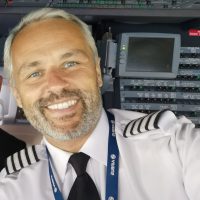
Captain Salvador Costa Pereira, Chief Operating Officer/Head of Training, Sevenair Academy
Salvador Costa Pereira is an accomplished aviator who began his journey in aviation in 1998. At the young age of 22, he became a Flight Instructor. He then went on to fly Turbo prop on the B1900D before joining TAP Portugal, where he served as a First Officer for six years, flying various aircraft including the A319, A320, A321, A330, and A340. Salvador then embarked on a new adventure in 2013, joining Emirates and serving as a pilot on the A380 for three and a half years. He returned to Europe as a Captain on the A320 business jet before joining Easyjet Lisbon in 2017, where he continues to serve as a Captain on the A320 family. Salvador also holds a Masters in Air Transport Management from ISEC Lisbon. With his wealth of experience and expertise, he was invited to join an ambitious project at Sevenair Academy, where he is now the Chief Operating Officer and Head of Training.
Ab Initio Training Conference
Day 1 – Tuesday 30th April 2024 – Session 4
Bridging the Gap Between Airline Training and Ab Initio Training
The aviation industry is grappling with a pressing issue: the shortage of qualified pilots. Bridging the gap between airline training, which assumes a certain level of aviation experience, and ab initio training, which starts with individuals having little or no flight background, has become imperative.
One of the central elements in addressing this gap is the development of adaptable training programs. Standardized curricula must be reimagined to accommodate candidates with a wide range of prior experience. Implementing modular training structures and a competency-based learning approach can help individuals progress at their own pace, tailoring their training to their unique needs. Incorporating technology, such as flight simulators and virtual reality, can offer a secure environment for trainees to hone essential skills.
Collaboration within the aviation industry is another key aspect. Airlines, flight schools, and regulatory bodies should work together to establish common standards and curricula. This ensures that ab initio-trained pilots acquire the skills, knowledge and attitudes required for a seamless transition into airline-specific training programs.
Mentorship and apprenticeship programs can play a pivotal role in transferring knowledge and expertise from seasoned airline pilots to novices. This practical exposure is invaluable in preparing pilots for real-world challenges.
In summary, bridging the gap between airline training and ab initio training is a complex challenge that demands innovative, collaborative, and adaptable solutions. By applying these strategies, the aviation industry can guarantee a sustainable supply of skilled pilots to meet the growing demand, securing the future of air travel.

Kathryn Creedy, Aviation Journalist
Kathryn B. Creedy is a veteran aviation journalist who has focused on workforce issues for the past several years. She has worked with the University Aviation Association, Aerospace Education Program Alliance, Women in Aviation International and the Space Coast Women in Aviation Alliance to bridge the knowledge gap between families, schools and industry. Creedy has written extensively on diversity, why there are not more women in aviation and how we must compete against thousands of other industries who are already embedded in schools and career counselor minds for workforce.
She has presented or moderated on workforce and other topics at the Flight Schools Association of North America, Regional Air Cargo Carriers Association, UAS Trip Support National Business Aviation Association Program, Air Taxi World Congress, University Aviation Association, Space Coast Women in Aviation Alliance.
Ab Initio Training Conference
Day 2 – Wednesday 1st May 2024 – Session 6
Developing an Aviation Education Ecosystem and How Everyone Can Help
This topic comes under the area of airline stability and growth and is about getting more students into the aviation/aerospace education pipeline by breaking down silos and coming together to as a single industry voice.
Aviation and aerospace are in every corner of America. I and many others are working to create an aviation/aerospace career education ecosystem to promote aviation careers and guide young people from first interest to a career in kindergarten by creating a grass-roots effort by individual members of the community.
This discussion gives the audience tools needed to create and use an aviation/aerospace education ecosystem whether for the flight deck, maintenance bay, production line or executive suite.
After attending the American School Counselors Association conference, it is clear local schools are the epicenter of promoting careers. Such career education begins in pre-school although middle school and high school are the center of attention for pilots and aviation maintenance technicians. Few people know about the hundreds of aviation/aerospace education programs already existing across North America all of which can be used to attract kids to industry careers.
Other industries are already in schools. Career Counselors seek an online one-stop-shop for aviation careers, but we need people to help build it. The discussion would describe what is happening behind the scenes and what associations and industry are already doing about creating the aviation/aerospace ecosystem. It would promote the already-available resources when talking to teachers, parents and kids.

Trevor Dale, Chief Executive, Atrainability Ltd.
As one of the founding members of British Airways Pilot Crew Resource Management trainer team, Trevor has been developing training courses and delivering practical human factors awareness and more advanced courses since 1991. He was part of the development team for the flight instructors facilitation skills course.
Since 2002 he has been working in healthcare and aviation helping reduce risk by implementing threat and error management.
Cabin Crew Training Conference
Day 1 – Tuesday 30th April 2024 – Session 4
How Do You Move from Assessment of an Hours-Based Training Course to a CBTA Framework? Timing is Everything
CBTA has always been the logical progression for training in a risk-management profession.
There is a huge influx of ab-initio flight and cabin crew across the board. But still training focuses on addressing the short-term memory and too often is trainer-centred.
To address the first, advanced neuroscience-based methodologies of training exist, designed to address the long-term memory and proven to provide sustainable learning outcomes.
In essence this aids naturalistic decision-making by increasing student confidence that the knowledge they have gained in a short period has been retained. This is far from what many of our current crew will have lived through.
But long-term memories are not made overnight so testing the short-term memory, as is frequently performed currently, is of little practical use. In fact they provide a false sense of security which often is revealed in a dynamic situation.
Pilot training has shifted to a trainee-centred paradigm over the last quarter century. Using video recording and playback removes any argument about the facts of a training experience and moves quickly to a qualitative analysis and progress in a short timeline. This may not be acceptable to crew representatives but is it time to reconsider and take learning to the next level? The technology has been in use in other professions and resulted in colossal performance enhancements. How do we make it viable in the World’s safest industry?

Jason Davenhill, Performance & Executive Coach / Helicopter & Fixed Wing Flying Instructor, Inflow Performance
Jason Davenhill was a national level track athlete, musician and chorister at school where he learned about what it takes to perform with grace under pressure. Joining the military he gained a commando green beret and went on to become an above average RAF Chinook pilot and instructor. His next role was as a light fixed wing instructor teaching university students to fly. After a couple of ground tours, including flight safety and post-crash management lead in the south Atlantic, Jason became the deputy chief flying instructor at the Army Aviation school of flying where he taught on helicopters and introduced performance coaching. It was the first time for ages that they had a full course pass, and 4 of the five prize winners came to him for coaching. Instructing at the UK’s defence Helicopter Flying school, he led the coaching team and was awarded by the Royal Aeronautical society for the work he did building the team. His last military tour was as the air specialist in the US Rangers headquarters overseeing the conflict in Syria. Turning all his military quals into civilian ones, he now combines his coaching, leadership training and public speaking with teaching fixed wing and helicopter pilots and instructors, across the spectrum of flying. He continues his athletic and musical pursuits, leading a wind band and a couple of choirs and is now a keen ballroom dancer with his wife, an activity he says that is remarkably like flying training: technique, grace under pressure and spatial awareness with a ready-made critic within touching distance.
Pilot Training Conference
Day 3 – Thursday 2nd May 2024 – Session 9
Fit to Fly – Human Factors Panel: Stress, Fatigue and Mental Wellness
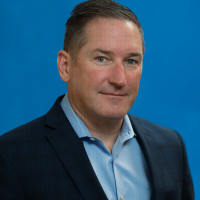
Captain Michael Dee, Managing Director of Flight Operations, Republic Airways
Captain Michael Dee is the Managing Director of Flight Operations for Republic Airways in Indianapolis, Indiana. In this role, he oversees the flight operations of Republic Airways fleet of more than 200 Embraer 170/175 aircraft and 1,800 professional pilots.mWith over 20 years at Republic, Michael has participated in multiple acquisitions and mergers, including many fleet types. Before transitioning to management, he was a Check Airmen/APD on multiple fleet types. As a leader at Republic, Michael has been an integral part of the team that brought the concepts of Threat and Error Management, LOSA, and AQP to the airline. Prior to transitioning to Flight Operations in 2019, Michael was the Director of Flight Training and oversaw a team of more than 150 training professionals. Michael currently lives in Carmel, Indiana, with his wife, Dawn, and three boys. He enjoys spending time with his family and golfing in his free time.
Pilot Training Conference
Day 2 – Wednesday 1st May 2024 – Session 8
Airline Training Leaders Panel

Maryanne DeMarco, Executive Director, Coalition of Airline Pilots Associations (CAPA)
Ms. Maryanne DeMarco serves as Executive Director for the Coalition of Airline Pilots Associations (CAPA), World Headquarters in Washington, D.C. CAPA is the world’s largest pilot trade association representing over 36,000 professional passenger and all-cargo airline pilots at airlines including American Airlines, UPS Airlines, NetJets, Republic Airways, Horizon Air, ABX Air, Atlas Air, Cape Air, Omni Air International and Silver Airways.
Ms. DeMarco has over 25 years of aviation expertise and provides recommendations for international aviation safety and security regulations and policy, as well as workforce development recommendations for the next generation of aviation professionals. She develops aviation intiatives working with federal agencies, members of Congress and international aviation stakeholders.
In 2020, she was appointed by the Department of Transportation Secretary to serve on the DOT/FAA Women in Aviation Advisory Board (WIAAB) that provided a comprehensive recommendations report to the FAA, DOT, and Congress. Ms. DeMarco has worked extensively with the Department of Transportation (DOT), the Federal Aviation Administration (FAA), the Department of Homeland Security (DHS), the Transportation Security Administration (TSA), the National Transportation Safety Board (NTSB) and members of Congress.
In addition to providing regulatory and policy recommendations, she provides industry analysis and recommendations for various federal agencies, members of Congress, and aviation industry stakeholders. Ms. DeMarco also oversees CAPA’s participation in Aviation Rulemaking and Advisory Committees with the DOT/FAA and DHS/TSA and develops beneficial partnerships with federal agencies, stakeholders, and organizations throughout the international aviation industry.
Ms. DeMarco serves as a Board of Trustee member of the Aviation Accreditation Board, International (AABI). She has served as a delegate for organizations to Brussels, Belgium, Hong Kong, and Singapore. She has been a member of the Royal Aeronautical Society (RAeS), in Washington, DC since 2003, previously serving on its’ board for 4 years, as well as a member of Women in Aviation, International.
Ab Initio Training Conference
Day 2 – Wednesday 1st May 2024 – Session 5
The Cost of Doing Nothing
This panel explores the repercussions of neglecting pilot training, emphasizing the imperative of establishing training and accreditation protocols in early pilot education.

Delfim Zambujo das Dores, Senior Advisor, LAS Group
Delfim Zambujo das Dores was born in Lisbon on February 4, 1969.
He joined the Portuguese Air Force Academy (PoAFA) in 1991 having completed a degree in Military Aeronautical Sciences, in the specialty of Electrical Engineering – Avionics Branch, where he received several awards for best student.
He completed his PhD in Mechanical Engineering – Dynamics and Control at Florida State University (United States of America) in 2005, on the theme: “Feedback Control for Counterflow Thrust Vectoring with a Turbine Engine: Experiment Design and Robust Control Design and Implementation.
Within the scope of the functions performed throughout the military career, there are: – Lecturer and researcher in several areas including unmanned aircraft in the PoAFA (1998-2005); Head of the Airworthiness Certification Team of the Engineering and Programs Department at PoAF (2008-2014); – National representative in the Forum of European Military Airworthiness Authorities (including the Executive Level) under the aegis of the European Defense Agency (2008-2014); – Deputy for Airworthiness of the National Aeronautical Authority (2013-2014); – Chairman of the Technical Committee 190 – Aviation, Defense and Space of the Portuguese Quality Institute (2014-2016); – Deputy Head of the Military University Evaluation and Quality Office (2014-2016); – Defense Attaché at the Portuguese Embassies in Timor-Leste, Australia and Indonesia (2016-2019); – Head of the IUM Evaluation and Quality Office (2019-2021); and Director of the Portuguese Military University Research Center of the.
In terms of his civilian career, he performed the following functions: avionics engineer, EASA avionics Compliance Verification Engineer and Head of Design on an EASA Part 21 Organization (2006-2016); Technical Director of an aircraft avionic component maintenance organization – EASA Part 145 (2010-2016) and Technical Director of an aircraft maintenance training organization – EASA Part 147 (2008-2016). Furthermore, he was Lecturer on aircraft maintenance and EASA regulation matters on a university (2005-2016) as well as trainer on an EASA Part 147 organization (avionics and regulation matters) (2007 up to now). Since 2020, he is a senior advisor of LAS Group.
Maintenance Training Conference
Day 2 – Wednesday 1st May 2024 – Session 6
Training the Next Aircraft Maintenance Generation: The Alliance Between Human Factors and Emotional Learning in Personnel Readiness
As the maintenance and repair industry continues to evolve at a breakneck pace, it is imperative to focus on training the next generation of Aircraft Maintenance Engineers ( AME). This presentation delves into some challenges associated with this training and offers solutions, with a particular emphasis on Human Factors (HF), Emotional Learning (EL) EL), and Personnel Readiness.
Nowadays, aircraft m aintenance training faces several key challenges creating a demanding scenario: the quick pace of technological innovation, requiring ongoing training and adaptation; the aging workforce that poses a significant knowledge transfer problem as experienced technicians retire and the need to meet safety and compliance standards, along with the diverse skill and culture set required.
Besides cognitive load, stress and situational awareness that are critical HF in AME performance , they live on emotions that dictate their answers to what happens around them. Thus, it’s urgent and crucial to emphasise EL as an integral aspect of HF training, attending that it can significantly enhance teamwork, communication, and overall job performance.
Personnel readiness goes beyond technical know how; it encompasses soft skills, adaptability, and emotional resilience. Emotion’s subject needs to be included into learning approaches and methodologies. Trainees aren’t looking for training experiences where they just access knowledge, they want and need experiences that promote personal transformation, they need to develop new skills through lived experiences. It is vital to emphasise experiential learning gamification and immersive programmes where trainees are challenged.
AME need training solutions that make them more confident workers, able to carry out their job more effectively and safely.
In conclusion, this presentation provides a comprehensive overview of challenges and solutions in the next AME generation training . By emphasizing the importance of HF and EL, organizations can develop a highly skilled, adaptable, and safety conscious workforce capable of meeting the demands of a fast changing industry.

Soufiane El Ouartassi, Product Marketing Manager, CAE
Soufiane serves as a Product Marketing Manager at CAE, drawing upon his background in Aerospace Engineering. He obtained his Bachelor’s degree in Aerospace Engineering from the École Polytechnique de Montréal. His professional journey commenced during the certification phase of the Bombardier CSeries, where he contributed as part of the aircraft performance team. Transitioning into product marketing, he focused on promoting Bombardier’s regional aircraft lineup. Currently at CAE, Soufiane applies his expertise to the civil portfolio, contributing to making the world safer through innovative solutions. With combined experience as an aircraft performance engineer and product marketing, Soufiane has a passion for translating technical concepts into compelling messages for diverse audiences.
Combined Session (Pilot/Ab Initio/Cabin Crew/Maintenance)
Day 1 – Tuesday 30th April 2024 – Session 2
Aviation Talent Forecast
1.3 million new civil aviation professionals needed by 2032.
If you or your company are wanting to understand the need for professionals in commercial and business aviation, then check out this forecast.
If you are someone considering a profession in aviation, then check out our forecast.
Our team has been nose-deep in analytics and report-writing to develop the Aviation Talent Forecast. This is our 10-year outlook of demand for pilots, aircraft maintenance technicians, and cabin crew in civil aviation. The Aviation Talent forecast is a call to action for the industry to promote careers in aviation to the next generation, reach out to under-represented communities and develop innovative support programs to expand the pool of talent needed for the continued growth and safety of our industry.
We will briefly explain our methodology, show figures at a global level, then provide breakdowns by personnel type, market, and region. Finally, we will share our thoughts on what can be done to address the demand. We will highlight the role of technology in shaping the industry, the importance of sustainability, and the impact of diversity in filling the talent pipeline.
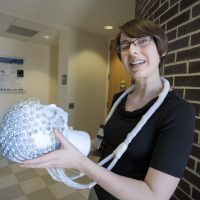
Dr. Samantha Emerson, Research Scientist, Aptima, Inc.
Georgia State University, PhD in Cognitive Psychology, 2018
Dr. Samantha Emerson has over a decade of experience designing and executing rigorous research on human learning, thought, and language. Her background is multidisciplinary, combining the theories, methods, and analytics of psychology, cognition, neuroscience, and psycholinguistics. This diversity has given her the ability to flexibly combine a variety of research and analytic techniques across domains. Her research has led to 11 scholarly publications in journals such as Cognitive Science, Neuropsychologia, and Brain & Language as well as 55 conference presentations including at the Interservice/Industry Training, Simulation, and Education Conference, Vertical Flight Society, and CogSci. Her present work at Aptima focuses on US Air Force and Space Force training and assessment needs, ranging from assessing improvements to the pilot training curriculum to developing multi-modal flight performance metrics for electric vehicle takeoff and landing (eVTOL) vehicles. Dr. Emerson earned her PhD and MA in cognitive psychology from Georgia State University and her BS in psychology from Middle Tennessee State University.
Pilot Training & Ab Initio Training
Day 3 – Thursday 2nd May 2024 – Breakout Session
Training a New Generation of Pilots and Maintainers: Open Issues in eVTOL Training
Last year at WATS, we discussed open issues in eVTOL pilot training, focusing on how eVTOLs are disrupting the pilot training industry including the evolving role of the pilot, measurement of pilot proficiency, and how curriculum development will need to change. This year, we drill deeper into these issues by focusing specifically on training approaches that help address the shortage of qualified pilots and maintainers—a problem that the projected growth of the eVTOL industry will exacerbate. In this presentation, Dr. Kent Halverson (Senior Division Director, Aptima) and Dr. Steve Ellis (AFWERX Learning Coordinator) will, first, discuss how the evolving role of pilots may include a combination of job simplification (e.g., responsibilities for subsystem diagnosis and troubleshooting outside of pilot control) and job enlargement (e.g., maintenance tasks). These shifting roles will force the aviation industry to reconsider how pilot and maintainer candidates are recruited and selected as well as cause a restructuring to how training is conducted and assessed. Competency-based, adaptive curricula can reduce the amount of time necessary for pilots and maintainers to reach high levels of performance. Importantly, competency-based assessments can also be used to validate that high levels of performance actually have been achieved. Finally, these same models could further be used to form the basis for identifying candidates with high levels of potential from more diverse recruitment pools as well as the focus for earlier recruitment through elementary-school level STEM training. Topics in the talk will be supported by ongoing work being conducted by AFWERX and the Air Force Research Laboratory. In summary, we suggest that competency models can aid eVTOL workforce development by producing highly qualified pilots and maintainers in less time and from a more diverse pool of candidates.

Dre Fournier, Vice President of Growth, HTX Labs
Dre Fournier serves as the Vice President of Growth at HTX Labs, leveraging over 17 years of extensive experience spanning the public and private sectors. With a background deeply rooted in service to the nation, Dre is a former US Special Operations Veteran, bringing a unique perspective to his role. His career trajectory includes distinguished positions as a technology sales executive, specializing in human-centric solutions within hybrid cloud-based technologies. Dre’s professional journey encompasses pivotal roles within esteemed defense contractors, including L3Harris, CACI, and IntelliBridge, along with a tenure as an Aerospace and Defense Sales Executive at Salesforce. At HTX Labs, Dre spearheads the company’s strategic growth initiatives, focusing on penetrating new customer segments and fostering meaningful partnerships.
Maintenance Training Conference
Day 2 – Wednesday 1st May 2024 – Session 8
Accelerating the Development and Delivery of an Immersive Training Program
Bringing an immersive training program online can be a considerable undertaking and a daunting task. And an expensive one. So, where do you start? Some things to consider: What exactly are you trying to accomplish? Why pursue immersive technology as a way to elevate the training of your workforce? What do you need to think about in advance to build a sustainable program that will stand the test of time? Immersive technology, such as virtual, augmented and mixed reality, has been around for decades but just recently has this technology proven to deliver a measurable ROI to accelerate the training pathways for pilots and aircraft maintainers. HTX Labs has developed the EMPACT® Immersive Training Platform over the past 7 years and has deployed this capability within the US Air Force and US Navy to train student pilots and aircraft maintainers. This paper will present an approach that we’ve pursued that puts the control into the hands of implementers and customers to create, deploy and sustain an immersive training program that augments current instructor-led and computer-based training capabilities that may already be in place. Further, this paper will present several things to think about and questions to answer when you’re starting your journey to develop and deploy an immersive training program within your organization.

Asa Margareta Freitas, Innovation Lead, Thales Training & Simulation
Broad industry background, holding management and product strategy positions in various companies and countries, with substantial time spent looking at innovative solutions. After a start in the energy sector and moving on to telecom and transportation, Margareta is now leading innovation initiatives with a focus on training in civil aviation. Specifically looking at behavioural and cognitive metrics to evaluate competences in a fact based and fair way. Innovation for the human individual and team interacting with a complex system, often with mission critical responsibility.
Pilot Training Conference
Day 2 – Wednesday 1st May 2024 – Session 5
Will We Find the Holy Grail of Training by Bringing Facts and Metrics to Evidenced Based Training?
PERCEVAL, short for Pilot Behavior and Competency Evaluation, is a French Civil Aviation Authority (DGAC) innovation project, bringing together a broad spectrum of consortium partners. Its main objective is nothing less than the transformation of training through a factual approach to observable behaviours; looking at recurrent pilot training, crew training, ab initio and training for air traffic controllers.
PERCEVAL consortium partners are ENAC (National pilot school), ENS Paris Saclay (research), Corsair, SimAero and Aviasim, Thales (lead) DGAC (National Aviation Authority, sponsor).
PERCEVAL contributes to several key objectives of the sector’s long-term strategy:
- “Training the Next Generation”: enabling objectivity of observation and evaluation via data and fact based metrics, facilitating instructor standardisation
- “Human factors, personal readiness”: improved understanding of crew behaviour from their multimodal actions, making it possible to address both operational aspects and human factors, such as interactions between crew members, situational awareness, cognitive state.
- “Technology enablers”: creation of data and knowledge databases, non-intrusive precise sensors, models for detecting and evaluating cognitive state variations.
The aim of the project is a fair and fact-based analysis of individual and crew observable behaviours, relying on non-intrusive multimodal analysis of physiological and cognitive factors (e.g. gaze direction, aircraft control activities, speech) during sequences of crew actions during training. Practical studies with professional pilots, cadets and air traffic controllers will see the project collect large amounts of data from real training.
The results of PERCEVAL will be applicable and highly relevant for any organization looking at Evidence Based Training, worldwide.

Buck Gaines, Chair, A4A Maintenance Training Network / Manager Technical Training, Alaska Airlines
Manager of Technical Training, Alaska Airlines. Has been in Part 121 airlines maintenance for 39 years. Graduate of Reedley College AMT School, Reedly CA. Has worked as a technician, trainer, supervisor and manager. Airlines include West Air, United, Horizon Air and Alaska Airlines.
Maintenance Training Conference
Day 1 – Tuesday 30th April 2024 – Session 3
Airlines for America (A4A), Maintenance Training Network Introduction
- What is A4A?
- Purpose and mission
- Current structure
- What is the Maintenance Training Network – MTN?
- Who is it comprised of?
- Previous history of the MTN
- Spec 104 rewrite
- Current initiatives

Pau García Sanz, Lead Aerospace Engineer, Data Machine Intelligence
Pau is Lead Aerospace Engineer at Data Machine Intelligence. He leads the aerospace simulation development of Data Machine Intelligence’s software suite for fast, safe and ethical development of AI-enabled aerospace systems.
Pau oversees the development for the innovative system-of-systems simulation platform for manned and unmanned systems. Thanks to Pau, Data Machine Intelligence is able to flexibly integrate and realistically simulate virtually any aircraft – be it existing or in development.
Prior to joining Data Machine Intelligence, Pau was a Systems Architect at Avion, leading the design, development, and integration of simulator instrumentation and software systems for the Core Simulation and Boeing 737 MAX. Earlier, at Virtual Fly Simulators in Barcelona, he managed the software team and FSTD developments and installations across the globe.
Pilot Training Conference
Day 2 – Wednesday 1st May 2024 – Session 5
Evolving Flight Training Using Distributed Cloud Simulation Software – Reducing Operating Costs and Unlocking New AI-Pilot Training Scenarios
State-of-the-art training devices are still powered by software designed in the last millennium. The footprint of these training devices, and their IT equipment, is reducing the training throughput of the commercial flight training industry. What if we could bring the commercial flight simulation software up to the modern age?
A distributed cloud simulation software will not only overcome legacy software limitations. It will also reduce costs, device downtime and footprint, while facilitating new pilot training scenarios getting them ready for the integration of AI into commercial operations.
Bringing AI into the cockpit presents a challenge not only for the pilot but also for regulators, operators, and manufacturers.
Using a distributed cloud simulation software allows the operator to support the full “AI into commercial operations” lifecycle, from AI modelling to certification for SafeAI operations, taking leverage of major cloud providers or going completely offline with a local cloud deployment.
As we prepare to introduce AI into cockpits, Flight Training needs to understand the evolving roles and workloads of pilots. The training must adapt to new Human Factors for AI, ensuring pilots trust AI-systems while keeping critical decision-making skills.
We will follow a real-life example on how a distributed cloud simulation software addresses some existing challenges, like reducing device footprint or downtime, remote training, third-party support, or preparing our device for the future.
Transitioning to better and more modern software not only solves some of the current pain points but future proofs the training devices.

Sean Glassberg, Owner, Educator Training & Consulting
Sean has over twenty-eight years of academic and professional experience, ranging from teaching English and serving as a Director of Faculty Development, New Faculty Institute Director and Instructional Designer at community and technical colleges and universities to training industry and technical professionals to become educators. Born into a family of educators – his father, grandfather, and grandmother are retired teachers, and his brother, sister, sister-in-law and wife are all teachers – Sean possesses a solid foundation of best teaching practices, and his Master’s degree in Special Education and work with children with disabilities have enabled Sean to respond to the wide spectrum of learners in our classrooms. His firm, Educator Training & Consulting, was established in 2003 and has been contracted to deliver faculty-training sessions at commuity and technical colleges across the United States. He provides instructor training at aviation maintenance schools and works with major airlines in an effort to improve the training of aviation industry employees.
Maintenance Training Conference
Day 1 – Tuesday 30th April 2024 – Session 3
Meeting Them Where They Are: A New Paradigm to Train Generation Z & Younger Millennials
Are you tasked with training your colleagues, trainees or new and recent employees? Do you feel as if you need to learn a few new tricks to better engage and interact with these “students”? Sign up for this session to learn strategies to improve your facilitation skills. We will first examine the communication needs and styles of younger Millennials and Generation Z and compare these needs and styles to those preferred by Generation X and Boomer generations. By the end of this session, you will be able to implement free and easy to use teaching technology tools, and your presentations will result in a livelier and more engaging experience for both you and your students!
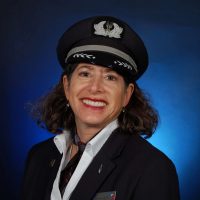
Captain Deborah Hecker, Director - Flight Operations Training Policies & Procedures, American Airlines
Captain Deborah Hecker currently serves as Director – Flight Operations Training Policies & Procedures for American Airlines. A graduate of Michigan State University with a degree in International Relations, she began her aviation career in 1994 flying freight out of a small Michigan airport. She then flew for Piedmont Airlines, before being hired by American Airlines in 1999. She also completed training to become a certified American Airlines flight attendant on the B777-200, B757/767, B737, and MD80, becoming the first person in the history of American Airlnies to be dual qualified as a pilot and flight attendant. In addition to pilot duties at American, Deborah has been involved with numerous other assignments, including four years as Chief Pilot in PHL & DFW, manager in the Customer Experience department, project manager with the Flight team for the LUS/American merger, pilot recruitment, diversity & leadership strategies, and numerous military veteran events.
She has been an active member of Women in Aviation International since 1996 and spent 9 years on the Board of Directors and retired as Chair in 2024. Deborah currently serves on the Advisory Council for Texas Women’s University Doswell School of Aeronautical Sciences. She is cofounder of the WAI Keep Flying Scholarship, Keep Flying International Scholarship, Keep Flying Extra Life Scholarship, and assisted in founding the American Airlines Engineering, Maintenance, and Veteran’s Initiative Women in Aviation Scholarships.
Deborah resides in Murphy, Texas.
Ab Initio Training Conference
Day 2 – Wednesday 1st May 2024 – Session 5
The Cost of Doing Nothing
This panel explores the repercussions of neglecting pilot training, emphasizing the imperative of establishing training and accreditation protocols in early pilot education.

Jay Hiles, Group Manager, Aircraft Maintenance Division (AFS-300), Federal Aviation Administration
Since July of 2022, Jay has been the Group Manager in the Aircraft Maintenance Division overseeing the Airmen and Special Projects Sections. For numerous years prior to this role, he was the Office Manager of the Scottsdale, Arizona Flight Standards District Office (FSDO).
Before becoming the Office Manager in Scottsdale, Jay was the Acting Manager of the Denver FSDO. Prior to accepting that position, Jay was the Denver FSDO’s Assistant Manager. Subsequent to the Assistant Manager role, he served in several Front-Line Manager positions within the Denver FSDO.
Jay has held many other titles within the FAA over the years such as National Staff Specialist, and a Principal Maintenance Inspector in an overseas assignment in the Singapore International Field Office. He also had the privilege of working in the Flight Standards Executive Staff on a detailed assignment. Prior to this detail he worked as an Aviation Safety Inspector and a Human Factors Specialist within the Aircraft Maintenance Division in Washington, DC.
Jay possesses an FAA Airframe and Powerplant Certificate, along with a Commercial Pilots Certificate, with an Instrument, and Multi Engine rating, and is a Certified Ground and Flight Instructor. Jay holds an Associate’s Degree in Specialized Technology from the Pittsburgh Institute of Aeronautics and a Bachelor of Arts Degree from the National Labor College in Silver Spring Maryland. Jay came to the FAA after 25 years with US Airways, and has worked for the FAA since 2003.
Maintenance Training Conference
Day 1 – Tuesday 30th April 2024 – Session 3
A Comprehensive Update from FAA Safety Standards
The new part 147 maintenance training rule has been in effect for over a year. Explore the evolving landscape as the FAA uncovers challenges and areas for improvement. Hear about guidance updates and the compliance program. Engage with agency leadership and get valuable insights into new inspector guidance, training and oversight.
- Speaker introduction
- Part 147 Overview
- Operations Specifications (OpSpecs)
- Testing Options
- Guidance Updates
- Compliance Program
- Inspector Training
- Q&A

Barbara E. Holder, Ph.D., FRAeS, Presidential Fellow & Associate Professor, Embry-Riddle Aeronautical University
Dr. Barbara Holder is a Presidential Fellow and Associate Professor at Embry-Riddle Aeronautical University. She is responsible for growing the applied aviation human factors research capability of the university and teaches graduate level courses in aviation human factors and human-centered design. Before joining ERAU, she worked at Honeywell Aerospace as a Technical Fellow, and prior to that, at Boeing as Associate Technical Fellow and Lead Scientist of Boeing’s Flight Deck Concept Center. Dr. Holder was awarded ten U.S. patents for her innovations in training, procedures, and flight deck design.
Dr. Holder has over 25 years of experience researching aviation human factors and creating novel human-technology interactions. In her most recent research, she successfully redesigned go-around procedures to direct pilot attention to appropriate flight path parameters to reduce the risk of Loss of Control In-flight during the go-around maneuver. She is currently investigating novel ways to evaluate pilot cognitive performance while performing flight path management technical and non-technical tasks. Another project is investigating tactical and strategic flight deck task management practices related to flight path monitoring, management of flight deck system failures and malfunctions, and flight crew response to air traffic control interventions which affect flight path management.
Dr. Holder serves on several industry committees and currently chairs the Subcommittee on Human Factors for the Federal Aviation Administration’s (FAA) Research, Engineering, and Development Advisory Committee. This subcommittee advises the FAA administrator on research needs and emerging trends. She is also the Stabilized Approach Recommendation Subgroup Chair to the Flight Path Management Working Group under the Air Carrier Training Aviation Rulemaking Committee. This working group provides recommendations to the FAA on Flight Path Management policy, procedures, and training.
Dr. Holder is a Fellow of the Royal Aeronautical Society. She completed her B.A. in Social Ecology at the University of California, Irvine and completed her M.S. and Ph.D. in Cognitive Science at the University of California, San Diego, under the guidance of Professor Edwin Hutchins, a MacArthur Fellow. Dr. Holder holds a Private Pilot’s License and enjoys flying aerobatics with her husband in their Extra 300. She also enjoys sea kayaking and playing pickleball.
Ab Initio Training Conference
Day 2 – Wednesday 1st May 2024 – Session 5
Panel: The Cost of Doing Nothing
This panel explores the repercussions of neglecting pilot training, emphasizing the imperative of establishing training and accreditation protocols in early pilot education.

Emily Hooker, Learning & Development Manager, SkyPeople Training
I started off my career in aviation in 2006 as cabin crew with XL Airways, but quickly moved on to British Airways where I spent 10 years developing my skillset within the Cabin Crew community and as a Safety Instructor. In 2016 I decided to step out of my comfort zone and join SkyPeople Training where I was able to experience a diverse learning culture within safety training.
Learning and Development within airlines has always been something that intrigues me and continually makes me question – How do we effectively deliver learning within an industry that is fantastically diverse and so highly regulated?
My career in more recent times has taken me down the Learning and Development route, completing my CIPD in L&D in November 2021 – which has enabled me to explore this question even further, working alongside other regulators outside of aviation including Ofsted and Ofqual supporting the delivery of Cabin Crew apprenticeships and End Point Assessments.
Cabin Crew Training Conference
Day 2 – Wednesday 1st May 2024 – Session 6
Adapting to Generation Z
Adapting to new generations entering the workforce isn’t something new. It always comes with its challenges. “The children now love luxury; they have bad manners, contempt for authority; they show disrespect for elders and love chatter in place of exercise”…this extract could have been said today, however, it is attributed from the Socrates in the 4th Century BC.
In this session we explore why in a multi-generational workforce, there is potential for negative stereo typing, and challenge what aviation needs to do to ensure onboard safety is not affected and a ‘Just Culture’ remains a focus.
Generation Z is certainly taking the world ‘by storm’ with their digitally sophisticated approach to life. This new generation is exciting; they are more eager to learn, more creative and highly independent. They’ve also lived through an era of booming entrepreneurship, which makes the GenZers, more innovative and entrepreneurial than previous generations. However, the industry is finding these behaviours challenging; so what needs to be done to support the diversity of generations in the workplace to ensure standards do not slip.
We will investigate learning approaches, neurodiversity, the importance of Inclusion, Diversity and Equality within crew learning and why it is important for airlines and training organisations to consider the importance of these topics. The surge in virtual learning and CBT modules, have supported aviation through COVID, but are these methods still working or do we need to reach out to VR and AI to enhance the learner’s experience. We evaluate how other industries approach these challenges and what we need from regulators to achieve impactful learning.

David Jones, President, Quantified Design Solutions, LLC
David Jones leads cutting edge technology integration across commercial and government research and development efforts. As a founder and President of Quantified Design Solutions, he leads the development and integration of technology to support the Training Systems Design and Development and Advanced Support Technologies groups. He has served as a Principal Investigator for the Office of Naval Research, Army, and Office of the Secretary of Defense efforts focused on the development of adaptive virtual, mixed reality, and constructive training platforms. David’s work focuses on the application of modeling and simulation to support the measurement and optimization of learner states. Over the past 17 years, he has led advanced research efforts for the DoD, commercial clients, and universities and has presented his work at international conferences. He holds a Bachelor of Science degree in Human Factors Psychology from the Embry-Riddle Aeronautical University and a Master of Science Degree in Industrial Engineering from the University of Central Florida. He has published over 50 technical publications and peer-reviewed journal articles and 4 book chapters based on his work and has presented at conferences including MODSIM World (Norfolk, VA), WATS (Orlando), I/ITSEC (Orlando, FL), the AR/VR Aviation Summit (Geneva, Switzerland), Human Factors and Ergonomics Society (multiple locations), Society for Applied Learning Technologies (Reston, VA), Human Computer Interaction International (Las Vegas, NV), and the International Conference on Audio Displays (Limerick, Ireland). David was the Deputy Conference Chair for MODSIM World 2019 and Conference Chair for MODSIM World 2020.
Cabin Crew Training Conference
Day 3 – Thursday 2nd May 2024 – Session 9
Virtually There: A Journey in Cabin Crew Training
Virtual Reality technology provides a more effective, cost-saving learning solution for airline training. With over four years of VR integration blended into a formal training environment, we have early evidence to support the effectiveness of VR technology to teach door opening and emergency procedures to flight attendants. We saw a significant increase in scores from measuring new flight attendants performing a series of tasks immediately after VR training. Also, using constantly evolving technology such as standalone headsets, muti-button hand controls, and improved graphics quality have made it difficult to set standards; however, we have begun to identify and define best practices for Virtual Reality-based training.
How can airlines harness the power of Virtual Reality while remaining grounded in skill-based training and assessments?
This presentation will cover the past, current and future journey of using Virtual Reality for cabin crew training. We will feature a live Virtual Reality presentation. A development team from American Airlines and Quantified Design will cover the results of flight attendant surveys and the corresponding data analysis. These results include flight attendant behavior changes, flight attendant engagement, human factors, and overall core competency improvements. We discuss the technology transition from tethered to standalone headsets and the decisions that led us to that change. Then, we will review implementation challenges and some of the solutions and practical application use cases we had to overcome. Some of these choices helped us to set up the architectural framework to support future iterations. Finally, we will cover important lessons learned in establishing the current and future implementation of integrated classroom and Virtual Reality training. Immediately following the presentation, we will have an open question-and-answer session.

Dr. Mike Jones, Director and Program Lead, Systems Technology Inc.
Pilot Training Conference
Day 3 – Thursday 2nd May 2024 – Breakout Session
eVTOL Simulation from an (AI-Adapted) Clean Sheet
The emerging eVTOL aircraft market not only represents an innovative approach to short-range passenger transport, it also presents a potential ‘clean sheet’ for developing new approaches to pilot training. And a clean sheet is necessary to meet the oft-quoted demand of 40,000 new eVTOL pilots by the year 2030.
Single-pilot operation, Artificial Intelligence navigation, and Virtual Reality training are converging in the developing AAM market – bringing together new collaborations of traditional training organizations and entrepreneurial startups.
AI Redefined, a 7-year-old applied research firm based in Montréal, Quebec, and Hawthorne, California-headquartered Systems Technology Inc. (STI), which has been designing vehicle control systems since 1957 for NASA, the FAA, the US Department of Defense and others, are blending their expertise to develop an eVTOL pilot training and assessment platform.
This scalable platform will engage with most eVTOL simulators. It incorporates Active RLHF (Reinforcement Learning from real-time continuous Human Feedback) – which aligns AI agents to human performance – and MARL (Multi Agent Reinforcement Learning) to mroe realistically simulate complex airspace interactions, dynamic weather conditions, and emergency situations.
Craig Vachon and Dr. Mike Jones will describe the eVTOL pilot training and assessment platform design approach, including how the AI learns from humans and vice versa. This agent-driven feedback architecture provides trainee pilots with critical insights to improve learning and targeted scenarios for efficient and focused skills development.

Aleksandra Kapela, MSc, Association Aviation Psychologist, Symbiotics
After obtaining an MSc in Occupational Psychology in 2013, Aleksandra has been working in aviation gaining a wide range of experience in European assessments and selection programs of cadets and active pilots whilst working with a range of airlines, aviation companies and training organisations. Aleksandra is an EAAP accredited Aviation Psychologist, an assessor and KSA100 assessment specialist.
Pilot Training Conference
Day 1 – Tuesday 30th April 2024 – Session 4
Beyond the Checklist: Shaping Exceptional Pilot Instructors for the Future
In today’s aviation industry, the role of pilot instructors has paramount importance, influencing the safety, proficiency, and success of both aspiring pilots and working professionals. From flight schools to airlines, the demand for high-quality instructors has never been greater, and their impact on pilot development is immeasurable. This presentation, through the lens of aviation psychology, focuses on the importance of psychological and competency assessments for pilot instructors and their quality. Not every pilot can be a good instructor, therefore, finding and training the ones that can, is a key responsibility for the industry.
In the face of current and coming challenges in the aviation industry, our emphasis is on ensuring that instructors possess not only technical expertise but also the right blend of personality traits, emotional intelligence, social skills, motivation and teaching proficiency. The very future of aviation safety and excellence depends on the careful selection and continuous development of these professionals. The significance of evaluating these competencies starts during the screening process. Moreover, the ongoing assessment mechanism is crucial to identifying the pilots, who, having been previously assessed, exhibit the potential to become excellent instructors. Furthermore, it examines how we can equip existing instructors with the tools and techniques needed to meet the evolving standards of teaching and training in aviation today.
We cannot forget about the crucial integration of contemporary concepts such as Threat and Error Management (TEM), Evidence-Based Training (EBT), and Competency-Based Training (CBT). These approaches emphasise the importance of adapting to a dynamic industry and the critical role that instructors play as part of this adaptation.
From an aviation psychology perspective, it is important to inspire this change by explaining the necessity of comprehensive psychological and competency assessments in the field of aviation instruction and demonstrating the right tools for this purpose.
Pilot Training Conference
Day 2 – Wednesday 1st May 2024 – Session 6
AI and Psychometrics in Pilot Selection & Recruitment: A Collaborative Model for Sustaining Quality Pilot Supply
In the quest for sustainable solutions to the pressing pilot shortage, innovative methodologies are crucial. The adoption of psychometric assessment, AI, and a powerful SaaS Applicant Tracking System represents a paradigm shift in pilot training and recruitment. This model facilitates a streamlined process, connecting qualified candidates with airlines more efficiently than ever before.
A noteworthy application of this approach is a project with Avianca, Symbiotics and The Airline Pilot Club, which successfully screened and selected 180 highly qualified pilots from a candidate pool of 1,776. This demonstrates the approach’s effectiveness and its potential to significantly impact the industry positively.
This model offers a myriad of benefits, including reduced recruitment costs and time, while ensuring a steady supply of well-trained pilots ready for airline operations. It serves as a blueprint for sustainable practices within the industry, addressing both immediate needs and long-term challenges.

Captain Christof-J. Kemény, Captain/Senior Checkairman/Senior Training Advisor, Lufthansa Group
- Active Captain A320 Lufthansa CityLine (Lufthansa Group)
- Current Ratings A340, A320, Embraer 190, SEP and MEP
- Instructor & Examiner (Check Airman) TRI/TRE A340, A320, E190/195, CRE SEP/MEP
- UPRT Instructor on FSTD
- UPRT Training on DESDEMONA-, Spatial Desorientation-Simulator
- Design of Competency-based Refresher Online Training during COVID-19 pandemic to restart operation
- Senior Training Advisor
- Co-Founder of the OneTeamCockpit Initiative with Cpt. Dr. Christian Popp, JetBlue Airways
- Engineering Degree in Aeronautical Engineering (Munich University of Applied Science)
- Head-up Display Specialist with application in flight operation and training
- Over 16.000 hrs. as airline pilot in over 32 years active airline experience with more than 7.500 hrs instructing
Pilot Training Conference
Day 2 – Wednesday 1st May 2024 – Session 7
Push to Unload – Are We Doing It Right?
As aviation technology continues to advance, pilots are now facing a different set of challenges that require effective training solutions. This presentation aims to address the unique hurdles in delivering Upset Prevention and Recovery Training (UPRT) and Stall Training on various aircraI types, including the A340, A320, and Embraer 190 Full Flight Simulators.
Drawing upon extensive experience as a certified UPRT Instructor Pilot, Cpt. Christof Kemeny will provide valuable insights into the limitations and possibilities offered by different training platorms, including the DESDEMONA (sustained g-loading) and Spatial Disorientation Simulators, as well as aerobatic aircraft training.
Moreover, the presentation will include first-hand data from a simulator research campaign conducted in collaboration with the AMST Simulation Group. This data aims to validate the efficacy of presenting UPRT-related information directly in the trainees’ field of view. The sustained understanding of flight envelope limits, g-load effects, and stall protection within this specific demo setup will be explored.
An emphasis will be placed on the human factors inherent in instructor qualification and instructional performance, particularly in the critical area of “Push to unload.” The delicate balance between prioritizing safety and understanding human performance limitations in UPRT will be examined. Additionally, the limitations faced by operators and the scope of training received by instructors on UPRT-related human performance factors will be discussed.
Attendees can expect to gain a comprehensive understanding of the challenges faced in UPRT and Stall Training, along with practical solutions and insights to enhance training effectiveness. The presentation will provide a valuable platorm for industry professionals to exchange ideas and best practices in addressing these crucial training requirements.

Craig Kennedy, Program Coordinator & Trainer, Open Doors Organization
Craig is a Program Coordinator and trainer with the Open Doors Organization with more than 20 years of experience working with people with disabilities, disability travel and tourism and the Americans with Disabilities Act. Craig moved to Steamboat Springs, Colorado from the Adirondacks in upstate NY in 1994 where a skiing accident left him paralyzed from the waist down just two years later. Craig now lives in the Knoxville, TN area and is an avid traveler.
A published author and Co-Founder of an Adaptive Travel Resource Company called Access Anything with his wife Andy, and founder of CK Consulting, he has spent more than 20 years motivating people with disabilities to look beyond their perceived abilities and advocating for their rights as both people and travelers. He spent the last 10 years as a founding Board Member and Program Director for Steamboat Adaptive Recreational Sports (STARS) helping to grow that Adaptive Sports Program from the ground up while teaching others with disabilities how to ski and recreate in the outdoors. Craig is also a Whole Food Nutrition and Business Coach with the Juice Plus Company and brings an infectious positive attitude with him wherever he goes and hopes to affect positive change, better health, and improved access to the world of disabilities.
Cabin Crew Training Conference
Day 2 – Wednesday 1st May 2024 – Session 7
How to Recognize, Handle, and Report Service Animal Situations Under Part 382
The Air Carrier Access Act prohibits both U.S. and foreign carriers from discriminating against passengers on the basis of disability. And passengers traveling with service animals are no exception. With the new service animal regulations in place, both service animal handlers and airlines are struggling to find common ground. And with a large number of travelers trying to pass their pets off as service animals, airlines now face the unique challenge of trying to assess what is and what is not a real service animal. With the sensitive nature of privacy laws and the lack of experts available to help airlines determine which animals should be allowed to fly as service animals and which should not, how do we truly accommodate everyone properly?
Eric Lipp and Craig Kenedy from the Open Doors Organization will present this workshop and talk about the systems that are currently in place across the industry and the challenges we face to accommodate travelers with service animals. They will also discuss the Department of Transportation’s role as the regulatory agency in this growing and volatile situation and what possible solutions could look like. In addition, Craig and Eric will provide a sneak peek into the world of assessing DOT Service Animal forms with some shocking data from the Service Animal Forms Portal.

Michaela Klasner, Your Path Counseling & Mediation
Michaela Klasner began her aviation career in 1991 with Trans States Airlines as a Flight Attendant after receiving a Bachelor of Science degree in Psychology and Speech Communication from Southern Illinois University Edwardsville. During her time in industry, Michaela moved through the ranks from Flight Attendant, IOE Check Flight Attendant, Inflight Management and in 2005, with the start-up of GoJet Airlines, Michaela transitioned to the team tasked with getting the airline certified and establishing the Inflight Department. Her responsibilities included development of policy and procedure, manual writing and construction, and successfully meeting the requirements of the certification process as an air carrier. Michaela served in the role of Director of Inflight Service where her responsibilities included Inflight Training and Line Operations until going to work for the Federal Aviation Administration in 2021.
During her career in aviation, Michaela continued her education, obtained a Master of Arts degree from Lindenwood University in Professional Counseling and broadened into a career as a licensed therapist and mediator in Illinois and Missouri. While the two career paths may seem very different, knowing, learning, and focusing on “systems”, be it an airline operation or a family, can lead to better system health.
Cabin Crew Training Conference
Day 2 – Wednesday 1st May 2024 – Session 6
The Resiliency-Learning Connection: Can We Learn It? Can We Foster It?
From an educational point of view, resilience is both a skill and a biological trait that boils down to perseverence, the emotional characteristics of successful learning, and it is essential for keeping learners engaged in learning. In addition, one crucial question is whether resilience is unchangeable or can be potentiated through educational intervention. So why does this matter? Research indicates individuals with higher resilience are more likely to thrive in their learning, as they will have more facilities to overcome difficulties and learn from errors. The process of learning includes the experiences of new information, while cognition involves absorbing information and applying it to appropriate situations. Understanding the role of resilience, cognition, and participation in the learning environment, can promote a higher level of knowledge retention, and both personal and career success.

Murat Kose, CEO, Quantum3D
Murat Kose is a serial entrepreneur/scientist who has performed extensive multidisciplinary research and founded several successful start-up companies. Over the past 25 years, he has supervised, directed and mentored hundreds of employees and business leaders in multiple industries (e.g. Aviation, Aerospace, Defense, Telecom, Academia, Retail, E-commerce, and Non-Profit). During his graduate studies within Syracuse University, Murat performed research in renewable energy, nanotechnology, and drug delivery. He completed a MS in Chemical Engineering with a focus on Microelectronics at the University of Rochester and received his Bachelors from Istanbul Technical University in Turkey. Murat routinely gives keynote speeches and presentations at conferences and corporate/government events. He is a community builder and is happily married with 5 children and living in Silicon Valley, CA.
Pilot Training Conference
Day 3 – Thursday 2nd May 2024 – Breakout Session
Mixed Reality eVTOL Flight Simulator
Quantum3D’s cutting-edge Mixed Reality eVTOL Simulator redefines pilot training with a powerful combination of technology and affordability. This simulator integrates a high-resolution headset, Quantum3D’s renowned MANTIS® software, and state-of-the-art Independence IDX hardware, offering trainee pilots an immersive experience.
The simulator’s key feature is its ability to provide high-resolution 3D modeling for eVTOL aircraft and their surroundings, encompassing airports, vertiports, cities, urban areas, and terrains. Despite its cost-effective nature, the simulator ensures a fluid 360-degree visual experience, maintaining a consistent 90fps frame rate.
The high-resolution camera passthrough feature of the headset allows the creation of mixed reality solutions. This empowers trainees to interact with real-world controls, eliminating the challenges posed by pure VR systems.
MANTIS software leverages dual GPUs and NVIDIA’s VR SLI technology, rendering scenes for both eyes simultaneously. This approach permits the creation of intricate, high-quality environments while ensuring a smooth 90fps update rate, vital for a realistic training experience.
With 26 years of expertise, Quantum3D has consistently delivered advanced training and simulation solutions to a diverse range of industries, from the military to air ambulance, search and rescue, aerial firefighting, commercial aviation, and air mobility. The Mixed Reality eVTOL Simulator represents Quantum3D’s commitment to providing innovative and cost-effective training solutions, transforming the learning experience for aspiring pilots across various aviation and mobility sectors.
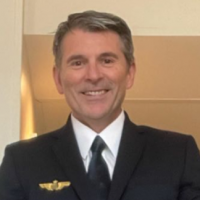
Captain Stéphan Labrucherie, Head of Flight Training Worldwide, Airbus
Stéphan presently holds the position of Airbus Head of Flight Training Worldwide, responsible for the global Airbus flight training network from ab initio to Advanced and Air Operations training.
Stéphan has over 30 years of experience flying with commercial airlines and Airbus, initially flying turboprop operations before qualifying on the Boeing B737 and later Airbus aircraft, flying in Europe, USA, China & the Middle East.
He began his instructor career in his early graduate days, giving theoretical ATPL lessons specialised in Human Factors and CRM, before joining Airbus in 2011 as TRI on the A320/A330. Stéphan was Head of TRIs & the Airbus Europe Training Centre prior to his current position. He is current on A320, A330, A350 & A380 as well as TRI & TRE on A320, A330 & A350.
Since 1995 he has been particularly involved in Human Factors, CRM and Emergency Response system research and training, as well as the implementation of new training concepts such as CBTA.
Pilot Training Conference
Day 1 – Tuesday 30th April 2024 – Session 4
The Impact of Instructors
It is clear to say that CBTA is high on everyone’s agenda in our industry, everyone is talking about it. There is however, an aspect that we all know is important, but remains an area requiring a deeper focus: the efficient acknowledgment, onboarding & integration of CBTA by instructors. Many instructors are challenged by the new approach and the real change in mindset that is required. We have taken a step back to review & share our own experience, our lessons learnt and how a re-focus on accompanying the change with our instructors can make a difference.

Captain Ping Lee, Chief Pilot of the HF CRM Team, EVA Airways
Chief Pilot of HF CRM team Eva Airways, A-321 TRI, TRE. Undergraduate and Graduate Degree from Embry-Riddle Aeronautical University. EVA Airways’ EBT core team member, and founding member of ASIAN EBT Alliance.
Pilot Training Conference
Day 1 – Tuesday 30th April 2024 – Session 4
IRR: A Never-Ending Battle
There are few doubts that EBT has been seen as a quantum leap in the world of aviation training, and competency-based training brings a new dawn for us to explore a variety of new training approaches. However, these training methods are not without its limitations. Inter Rater Reliability (IRR) is one of the major hurdles for the successful implementation of EBT and CBTA. This presentation will share EVA Airway’s journey and various attempts to consolidate IRR for its instructor force.
The presentation will first define the fundamental differences between Technical Skills and Non-Technical Skills (NTS). It will provide a clear explanation to differentiate the two, and furthermore, the presentation will demonstrate the difficulties to standardize grading criterion for NTS.
The second part of the presentation will focus on EVA Airways’ various attempts to calibrate its instructor force to reach an acceptable IRR. It will provide the process and the result of the latest attempt in consolidating instructors’ IRR regarding NTS assessments. The intriguing part of this attempt is that it was designed for the CRM facilitators, the group who are most familiar with NTS within the airlines. The presentation will share its results with observations and explanations highlighting the difficulties to use current NTS competencies and its behavior indicators during an assessment.
Finally, the presentation will examine the current NTS and its behavior indicators. A review of its effectiveness and recommendations will be made in order to increase its accuracy and therefore advancing the current competency based training into an individualized training to enhance crew performance and safety margin.
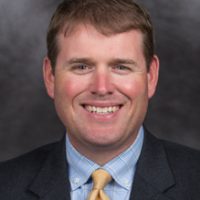
Dr. Andrew Leonard, Assistant Professor, Aviation, University of North Dakota
Dr. Andrew Leonard is an Assistant Professor of Aviation at the University of North Dakota. Some of his areas of research include student success in collegiate aviation, increasing underrepresent populations in STEM fields, and environmentally sustainable technologies. Andy received a B.A. in Political Science from St. John’s University in Collegeville, MN and his M.S. in Aviation and Ph.D. in Aerospace Sciences from the University of North Dakota in Grand Forks. He is a commercial rated pilot as well as a certified flight instructor with instrument and multi engine instructor ratings.
Ab Initio Training Conference
Day 2 – Wednesday 1st May 2024 – Session 7
Assessing Stakeholder Opinions in the Shift to Electric-Powered Aircraft
Adopting new technologies requires time, both to prove the new technology, and to understand the opinions of the stakeholders involved and make informed decisions in the process. This is certainly true as the aviation industry considers a shift to electric-powered aircraft. As a part of a suite of sustainability-focused research activities, Drs. Nicholas Wilson and Andrew Leonard will present survey research on stakeholder interest in and economic considerations of electric-powered aircraft. Using a survey database of over 750 participants Drs. Wilson and Leonard will discuss quantitative factors such as interest in flying electric-powered aircraft, expense considerations, and selected qualitative opinions shared through the survey. Information included in this presentation will include generational-based opinions on electric-powered aircraft as well as gender differences in electric-powered flight and associated economic considerations. The data includes some counter-intuitive results. Aviation industry members and specifically the WATS audience may gain a better understanding of stakeholder opinions as we consider this important shift in powered-flight.

Eric Lipp, Founder/Executive Director, Open Doors Organization
Eric Lipp, Founder/Executive Director of Open Doors Organization (ODO), founded ODO after experiencing restrictions people with disabilities face in everyday life. He works as Part 382 US Air Carrier Access Act expert around the world, representing over 50 domestic and global carriers. He has worked with over 70 airports globally and frequently speaks at travel, tourism and transportation events internationally. He also founded the Universal Access in Airports, biennial event for access in aviation. Eric initiated the groundbreaking 2002, 2005, 2015 & 2020 ODO/Harris Poll studies on travelers with disabilities and works on access across all sectors of travel, tourism and transportation.
Cabin Crew Training Conference
Day 2 – Wednesday 1st May 2024 – Session 7
How to Recognize, Handle, and Report Service Animal Situations Under Part 382
The Air Carrier Access Act prohibits both U.S. and foreign carriers from discriminating against passengers on the basis of disability. And passengers traveling with service animals are no exception. With the new service animal regulations in place, both service animal handlers and airlines are struggling to find common ground. And with a large number of travelers trying to pass their pets off as service animals, airlines now face the unique challenge of trying to assess what is and what is not a real service animal. With the sensitive nature of privacy laws and the lack of experts available to help airlines determine which animals should be allowed to fly as service animals and which should not, how do we truly accommodate everyone properly?
Eric Lipp and Craig Kennedy from the Open Doors Organization will present this workshop and talk about the systems that are currently in place across the industry and the challenges we face to accommodate travelers with service animals. They will also discuss the Department of Transportation’s role as the regulatory agency in this growing and volatile situation and what possible solutions could look like. In addition, Craig and Eric will provide a sneak peek into the world of assessing DOT Service Animal forms with some shocking data from the Service Animal Forms Portal.

Justin Madden, Managing Director, Engineering & Maintenance, A4A
Justin Madden is the Managing Director, Engineering & Maintenance for Airlines for America (A4A), a trade association representing the leading U.S. airlines that transport more than 90% of the airline passengers and cargo in the US. He brings over two decades of airline and government affairs experience to his role, where he directs and manages the technical activities at A4A in the areas of engineering and maintenance. He also collaborates with aviation industry stakeholders to advance A4A’s mission.
Justin has served as a member of the Federal Aviation Administration (FAA) Aviation Rulemaking Advisory Committee (ARAC) by appointment of the U.S. Secretary of Transportation and participated on several subordinate working groups. He has also served as a member of the Transportation Security Administration (TSA) Aviation Security Advisory Committee (ASAC), having been appointed by the TSA Administrator to multiple terms. Justin holds a bachelor’s degree in Aviation Science and is currently pursuing a Master of Business Administration (MBA). He is a proud veteran of the Marine Corps.
Maintenance Training Conference
Day 1 – Tuesday 30th April 2024 – Session 3
Airlines for America (A4A), Maintenance Training Network Introduction
- What is A4A?
- Purpose & mission
- Current structure
- What is the Maintenance Training Network – MTN?
- Who is it comprised of?
- Previous history of the MTN
- Spec 104 rewrite
- Current initiatives

Crystal Maguire, Executive Director, Aviation Technician Education Council (ATEC)
Crystal Maguire manages day-to-day operations and implements strategic initiatives for ATEC, the trade association that represents and advocates on behalf of aviation maintenance technician schools certificated by the Federal Aviation Administration.
Though ATEC, Maguire led efforts to create an industry coalition, dubbed Choose Aerospace. The campaign brings together aerospace stakeholders to address one of the biggest threats to continued industry growth: the availability of a diverse, qualified technical workforce.
Maguire also manages the Aerospace Maintenance Council, a non-profit group that raises awareness about aviation maintenance techician careers through its annual Aerospace Maintenance Competition. She serves as counsel to the finance & acquisitions team at Denver-based, Davis Graham & Stubbs LLP where she counsels aviation companies in commercial transactions and general corporate matters. She is a former author of Aviation Week’s InsideMRO safety and regulatory column and a frequent contributor to AMT Magazine.
Maguire spent twelve years at Obadal, Filler, MacLeod, & Klein, P.L.C. where she counseled companies on aviation maintenance regulatory compliance. There she also held various positions with association client organizations including vice president of operations for the Aeronautical Repair Station Association and director of government affairs and Washington counsel for the Association Equipment Distributors.
Maintenance Training Conference
Day 2 – Wednesday 1st May 2024 – Session 5
The New Part 147: How is the Transition Going?

Dana Marshall, Lead Teacher, South Alberta Flight Academy
Dana Marshall is in her 19th year of teaching but her very first year of being a commercial pilot. She works as a Teacher for the South Alberta Flight Academy in Dunmore, AB, Canada. When she isn’t working at school, she is working at her family ranch, where her husband and two children also live. They produce beef, chicken, turkey, and will soon expand to include pork and goat. Dana also volunteers with her local fire department as a wildland firefighter, and she serves as the president of her local teachers association. Dana enjoys travelling, spending time with her family, and looking after all of her critters at home.
Ab Initio Training Conference
Day 2 – Wednesday 1st May 2024 – Session 6
Pilot Training in a Canadian Public High Schoo: A Unique Opportunity for All
While high school aviation programs exist in the United States and elsewhere, under the AOPA curriculum, this is not the commonplace in Canada, in fact, our program is the only one. During this presentation, South Alberta Flight Academy lead Dana Marshall, and Super T Aviation Academy Owner and CFI, Terri Super will outline their unique program. We will share success stories and our expansion plans for the future. Based out of a small town in southern Alberta, a program with this momentum is rare. The possibilities for flight training are tremendous, and with the Alberta government’s recent investment into a collegiate program, our results will only improve. Come and learn about how students as young as 18 are becoming commercial pilots and flight instructors – setting them up to be ready for the airlines by the time they are 20. Students who graduate and obtain their commercial pilot license are then provided the opportunity to become flight instructors with a guaranteed job for a year, and guaranteed flight hours – since there is a perpetual stream of students coming through the program. With pilot shortages, especially competent pilot shortages, this program has the ability to enhance the industry by providing skilled pilots to the workforce sooner, and in an economical way – opening the doors to aviation to all demographics.

Gareth McGraw, Principal Human Factors Specialist, Qantas/RAAF
Gareth McGraw is a Human Factors specialist with over 30 years’ experience in both the civil and military aviation environments. Currently employed by a major Australian airline, he specialises in developing knowledge to enable an organisation to identify its Human Factors risks through the effective use of their Safety Management System’s processes.
He has previously been employed by Australia’s Civil Aviation Safety Authority and not only has extensive knowledge of aviation regulatory requirements but also how to make regulatory compliance efforts actually work for a business. He is a SQNLDR in the Royal Australian Air Force Reserves, a qualified Aviation Maintenance Technician and has also worked as an Air Safety Investigator.
Maintenance Training Conference
Day 2 – Wednesday 1st May 2024 – Session 6
Cool Story Bro … Needs More Dragons
Internet memes aside, student engagement is rightly seen as a crucial part of any course meeting its training outcomes in terms of the transfer of knowledge.
Aviation safety training programs in many organisations, often use case studies as a vehicle to both engage students and provide an objective context to enable analysis and discussion of conditions and influences within safety events.
However, in my 15 years of experience in the development HF/NTS trainers I have seldom seen individuals that have an inherent natural ability to use them well.
I would actually contend that without assistance to develop specific skills, facilitators rarely use them as intended or to their fullest potential towards meeting the learning objectives. In fact, at best, they are little more than interesting stories or at worst anecdotes that drift off on tangents and could definitely use a few more dragons!
Any training delivery program that will likely see its trainers using case studies in their content must therefore seek to have some sort of framework to support those trainers to develop the knowledge and skills associated with their effective use.
I have assisted the Australian Defence Force to develop and deliver one such framework that seeks to provide a simple process to aid trainers to connect conditions and circumstances within their selected case studies with the HF and NTS concepts that they are seeking to promote or describe to students.
It seeks to enable trainers to use case studies as part of answering a learner’s “so what?” Or rather “so what does the safety event mean for me and how I can do what I do better?”
It should help the use of case studies to be more than just an interesting break from the ‘dry’ content and become part of an engaging lesson that delivers effective transfer of knowledge and understanding of the application of crucial safety and performance concepts.
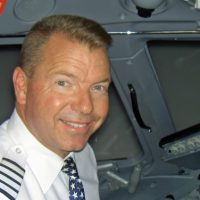
Clarke 'Otter' McNeace, Executive Vice President, Compliance & Customer Experience, Aviation Performance Solutions
Clarke McNeace is the Executive Vice President of Compliance & Customer Experience at Aviation Performance Solutions (APS). APS has specialized in comprehensive Upset Prevention and Recovery Training (UPRT) for professional pilots for three decades. As the leading UPRT provider for major US air carriers, insurance companies, government agencies, and corporate flight departments worldwide, APS’ proprietary Loss of Control – Inflight solutions are delivered to over 30,000 pilots annually.
Pilot Training Conference
Day 2 – Wednesday 1st May 2024 – Session 7
Harmonizing Excellence: Tailoring UPRT Instructor Training for Airlines and Flight Schools
The aviation landscape is vast and varied, with flight schools and airlines presenting distinct challenges and requirements, especially in the realm of Upset Prevention and Recovery Training (UPRT). Capt. Clarke McNeace, Executive Vice President, Compliance & Standards of Aviation Performance Solutions, will delve into the nuanced world of UPRT instructor training, emphasizing the unique qualifications needed for both flight schools and airlines, while highlighting the imperative to harmonize these training methodologies.
At the heart of this presentation is the recognition that while the training environments of flight schools and airlines differ significantly, the core principles of UPRT remain consistent. Aviation Performance Solutions, with its rich legacy in UPRT, has identified and addressed the distinctions in instructor qualifications for both sectors. The challenge lies in ensuring that these tailored training approaches are harmonized to maximize skill transferability, minimize negative skill transfer, and eliminate potential negative training.
Drawing from a decade of experience in Europe and expanding ventures in Thailand, APS’s approach ensures that whether training a budding pilot in a flight school or a seasoned aviator in a commercial airline, the UPRT instruction they receive is both specific to their environment and universally grounded in best practices. This harmonization not only elevates safety standards but also ensures a seamless transition for pilots moving between flight schools and airlines.
In a world where every flight hour counts, the quality and consistency of UPRT instruction can make all the difference. Join us as we chart a path towards a future where UPRT instruction, regardless of the aviation setting, is harmonized to perfection, ensuring every pilot is equipped to handle the unexpected with confidence and skill.

Michelle Mock, Inflight Crew Assistance Program Manager, Southwest Airlines
Michelle began her aviation career in 1998 at American Trans Air (ATA) as a Flight Attendant. She got involved in union work and was elected Secretary/Treasurer as well as Local Executive Vice President for the Association of Flight Attendants. Michelle flew mainly military charters for ATA and was so honored to be able to serve her country in such a rewarding way. Michelle worked at Republic Airlines and was elected Chief Steward for Teamsters Local 357. Michelle then returned to her charter roots in 2010 at Omni Air International and was elected as the first Master Executive President for the Association of Flight Attendants. Michelle has such a passion for helping her fellow Crew members. In 2015 Michelle accepted a position as a Flight Attendant for Southwest Airlines, she then became an Inflight Supervisor in 2019. In 2022 a new opportunity was presented to further assist the Inflight Operations team and Michelle took the positon as Senior Inflight Crew Assistance Program Administrator. Her role includes providing the 11 inflight bases with mental health and wellness to not only the Flight Attendants but the Inflight staff as well. She also assists the 3 peer based teams that include, CISM, Professional Standards, and Flight Attendant Drug and Alcohol Program (FADAP). In late 2023 Michelle was promoted to Inflight Crew Assistance Manager and looks forward to continuing to “help the helpers”. Michelle resides in Brevard County with her husband K9 Sergeant Michael Mock, his partner Hex and their 2 other non-working dogs Emma and Baron. In her spare time Michelle enjoys travel, good food, and participating in agility and sport training with her 3 year old Shepard mix Emma.
Cabin Crew Training Conference
Day 1 – Tuesday 30th April 2024 – Session 3
Are You Okay?
I began my career in aviation in 1998, pre 9/11 we were taught to negotiate with terrorists and give in to their demands, the events in 2001 changed that forever. I flew home from Gatwick airport on September 10th, 2001 and awoke the next day to my career changed forever. There was such an outpouring of love and patriotism that week, but no one ever asked if we were “Okay”. I was on one of the first planes to return to Gatwick early the next Saturday. We took off from Orlando late Friday night and still no one asked how we were mentally. I do not think that I personally dealt with what happened that September for many years. I was furloughed for three months and when I returned in January of 2002, my domicile had closed, forcing me to be a commuter and our world had changed drastically. For the next five years I did most exclusively military charter flying to the Middle East and Europe, we had been issued chemical warfare suits and had a brief 15-20 min training on how to don them if we heard the sirens while on the flight line in Kuwait but still I do not recall anyone asking if we were “Okay”. I felt like I was doing my part as a good American and helping those who were prepared to make the ultimate sacrifice for me.
Many challenges to aviation have occurred since then, the biggest being the pandemic of Covid-19 which changed the course of my history. My company saw that there was a need for more and better mental help resources. My position did not exist 2 short years ago. I work with our staff and flight attendants to make sure they know of mental health resources that are available to them. I also work with our peer based teams who support our drug and alcohol program, our CISM team, and our Processional Standards team. My hope is that even if you are not “Okay”, that someone takes the time to ask if you are.

Captain Marnie Munns, Pilot Training Specialist, Commercial Training Solutions, Boeing Global Services
Captain Marnie Munns is a Pilot Training Specialist for the Commercial Training Solutions within Boeing Global Services, responsible for developing innovative Competency-Based Training and Assessment (CBTA) scenarios as part of the digital learning team and Boeing’s Training Initiative.
Munns joined Boeing in 2023 and combines her strong academic background in aviation psychology and extensive operational experience to help revolutionize training for new pilots and working with Airline Training Organization’s (ATO) to implement the new regulatory required knowledge, skills, and attitude (KSA) training which are key to CBTA methodology.
Munns has over 30 years of experience in the aviation industry and is a highly experience pilot with over 23 years of commercial airline experience. Her career includes flying B737 and A320 aircraft as captain, instructing as a type rating instructor (TRI) and an EASA/CAA multicrew instructor (MCCI).
Recently, Munns’ published an extensive report with The University of West of England about the barriers and enablers for women as pilot training professionals.
Munns has a Bachelor of Science in psychology from University of Bristol and a Master of Science in applied psychology from Cranfield University. Munns was elected as a Fellow of the Royal Aeronautical Society (FRAeS) in 2018 for her involvement with promoting pilot careers to children and female audiences. She is passionate about shaping the future of aviation and assisting the next generation of pilots become professional commercial aviators.
Ab Initio Training Conference
Day 2 – Wednesday 1st May 2024 – Session 7
Revolutionizing Pilot Training: Early Introduction of Competency-Based Training and Assessment
The industry is evolving rapidly, and with it, the approach to pilot training. This conference presentation explores the concept of adopting Competency-Based Training and Assessment (CBTA) from day one of a pilot’s career, what the challenges are for the ATO and how to ensure training is relevant, effective and engaging for the next generation of pilots.
Traditionally, pilot training has focused on task repetition until a standard is reached. However, modern thinking in initial pilot training suggests that introducing CBTA early in a pilot’s career is not only possible but highly beneficial. The critical question of when to introduce CBTA is being addressed by regulators worldwide, and consensus is emerging that it can begin at the outset of a pilot’s training journey, sometimes even before they have flown a light aircraft. Development of Knowledge, Skills and Attitudes (KSAs) that are transferable across aircraft types and operators, not only enhance aviation skills but also provide valuable life skills and go someway to ensuring that the right aviators are being trained for commercial operations.
While the benefits are clear, there are challenges to this approach. Can aspiring pilots, who may have never flown before, understand the core competencies and their importance in a safety-critical, complex, team environment? Addressing non-technical skills and understanding what technical skills are is a crucial aspect of this transition, as exemplified by Area 100 KSAs under EASA.
This presentation will explore how CBTA is being implemented in a pilots career and how the challenges can be overcome. The key message is clear: by teaching pilots essential skills such as workload management, effective teamwork, clear communication, leadership development, and situation awareness from day one, we are exposing pilots to essential skills for operating safely and efficiently as commercial aviators.
Early CBTA introduction not only assists in preparing the next generation of pilots for the airline workforce but may be necessary in order to align pilot training across the world.

Dr. Aki Nikolaidis, Chief Science Officer, VTR
Aki Nikolaidis, PhD, is VTR’s Chief Science Officer and also serves as a tenure track research scientist in the Center for the Developing Brain at the Child Mind Institute. His research focuses on using advanced techniques from artificial intelligence to understand learning in the brain. Dr. Nikolaidis brings this knowledge to his work at VTR to ensure all our work follows the highest standards of scientific integrity. Dr. Nikolaidis completed his undergraduate studies in psychology at Yale University and his PhD in neuroscience at the University of Illinois at Champaign Urbana. His work has been published in over 25 peer reviewed research studies. Most recently he received the highly prestigious Director’s Award from the National Institute of Mental Health and his work has been cited multiple times by the US Surgeon General. He has received highly prestigious awards and funding from the National Science Foundation, National Institute of Mental Health, Brain and Behavior Research Foundation, Morgan Stanley Foundation, and Google.
At VTR, Dr. Nikolaidis leads the effort for data analysis and development of machine learning pipelines for analysis of data on pilot performance and learning. Last year, he led the effort for our proof-of-concept study with JetBlue, where we demonstrated that VTR’s product leads to reductions in pilot errors and need for support, while simultaneously increasing the speed of their performance.
Combined Session (Pilot/Cabin Crew/Maintenance/Ab Initio)
Day 3 – Thursday 2nd May 2024 – Session 10
Building Disruptive Training with XR and Eye Tracking
The aviation training industry is ripe for disruption. While the current system of flight manuals, paper tigers, and mockups is time-tested, training costs and retrain rates are rising in part because of the process’ poor ecological validity. The current system requires a significant amount of rote memorization in an environment that is completely different from the place pilots will ultimately employ their skills – a flight deck.
The combination of VR headsets and eye tracking technology offers the industry a novel, cost-efficient, and ecologically valid way to both train and assess pilots. Giving trainees access to a near-exact replica of their flight deck in virtual reality allows them to learn and practice their skills in as similar an environment as possible to the real world. Operating costs for VR headsets are much less than full-flight simulators, meaning trainees can spend more time practicing in a simulated flight deck environment.
The addition of eye tracking into this virtual training environment unlocks useful insights about a trainee’s attention and skill development that can be critical for improving training effectiveness and assessment outcomes. Eye tracking allows trainers to confirm that a prospective pilot has completed all of their visual-only tasks in addition to physical tasks, which are easier to verify. This eye tracking data is also recorded so a trainee and their trainer can review the session afterward to identify areas for improvement.
By giving prospective pilots access to a more realistic training environment and more detailed insights about their performance, VR and eye tracking technology will ensure that trainees are as prepared as possible for their full-flight simulator sessions and real-world flights.

Ivan Noël, President & Founder, Inflight Innovations Inc. & Inflight Institute.com
Ivan Noël is the president and founder of Inflight Innovations Inc. and the Inflight Institute.com. With a focus on efficiency, his company produces some of the world’s most innovative programs by inventing and implementing advanced training technologies.
Starting his career in aviation on the front lines as a cabin crew member has provided him with a unique perspective of the industry and the opportunity to effect change through the development of advanced learning methods, interactive training techniques and the advancement of Competency-Based Training and Assessments. He is known as the architect of Pre-qualification training for Cabin Crew with dozens of member airlines worldwide and hundreds of thousands of users over the past three decades.
Cabin Crew Training Conference
Day 1 – Tuesday 30th April 2024 – Session 4
A Profitable Airline is a Safe Airline – How Comptency-Based Training and Assessments Play a Vital Role
Early in my aviation career, I heard this quote from a Transportation Minister. It moved me to learn more; I discovered that a financially stable operation could provide the best innovative training with an eye on efficiency and quality.
This presentation will focus on the advancements in Cabin Crew training with an eye on how Competency-Based Training and Assessments can bridge the gap between training efficiency and improving safety and performance.
Be part of this captivating session, where we’ll exchange ideas and gain a profound understanding of how enhancing profitability can improve the safety of air travel. Don’t miss out on this opportunity to be at the forefront of progress!

Christin Orban, Specialist, Inflight Training, American Airlines
Christin Orban is a Specialist on the Inflight Training Instruction and Evaluation team at American Airlines. In this position, she is the Virtual Reality Lab Coordinator, the training team’s Technology Device Coordinator, and an AQP Instructor. AA has included virtual reality training for its Flight Attendant Initial Qualification Program since 2018, and Christin has been managing the daily operations of the VR lab since the fall of 2021. The system has recently been upgraded, and Christin has assisted the training development team to give AA’s students the most innovative and effective training possible. She has a passion for helping others grow in knowledge and the understanding of their role as a Flight Attendant.
Christin has been in the aviation industry for seven years. She started her career as a flight attendant and has been involved in special assignments projects over the years. Those special assignment projects include being the video team lead for the Onboard Services and Standards involvement team, working as a virtual bidding specialist in the Flight Attendant Bidding Resource Center, and a part time instructor. Christin has a love for teaching others and is always tring to learn new skills of her own, which is what led to her interest in VR. She holds a Bachelor of Science degree in Entertainment Business from Full Sail University.
Cabin Crew Training Conference
Day 3 – Thursday 2nd May 2024 – Session 9
Virtually There: A Journey in Cabin Crew Training
Virtual Reality technology provides a more effective, cost-saving learning solution for airline training. With over four years of VR integration blended into a formal training environment, we have early evidence to support the effectiveness of VR technology to teach door opening and emergency procedures to flight attendants. We saw a significant increase in scores from measuring new flight attendants performing a series of tasks immediately after VR training. Also, using constantly evolving technology such as standalone headsets, muti-button hand controls, and improved graphics quality have made it difficult to set standards; however, we have begun to identify and define best practices for Virtual Reality-based training.
How can airlines harness the power of Virtual Reality while remaining grounded in skill-based training and assessments?
This presentation will cover the past, current and future journey of using Virtual Reality for cabin crew training. We will feature a live Virtual Reality presentation. A development team from American Airlines and Quantified Design will cover the results of flight attendant surveys and the corresponding data analysis. These results include flight attendant behavior changes, flight attendant engagement, human factors, and overall core competency improvements. We discuss the technology transition from tethered to standalone headsets and the decisions that led us to that change. Then, we will review implementation challenges and some of the solutions and practical application use cases we had to overcome. Some of these choices helped us to set up the architectural framework to support future iterations. Finally, we will cover important lessons learned in establishing the current and future implementation of integrated classroom and Virtual Reality training. Immediately following the presentation, we will have an open question-and-answer session.

Captain (ret.) Reyné O'Shaughnessy, Founder/CEO, Piloting 2 Wellbeing
Captain (ret.) Reyné O’Shaughnessy stands as a prominent figure within the aviation industry, celebrated for her unwavering dedication to both pilots and the aviation industry. With a remarkable 35-year career as a commercial airline pilot, she has accumulated a vast reservoir of experience and expertise. As founder of Piloting 2 Wellbeing https://piloting2wellbeing.com/ and co-founder of The Aviation Health and Wellbeing Institute, https://theahwi.org/ retired Captain O’Shaughnessy utilizes her extensive background to pioneer innovative approaches to enhance pilot health and performance.
Boasting a cumulative flight time exceeding 10,000 hours on heavy jet aircraft, including iconic models such as the B747, B727, Airbus 300 310, and B757/767, her hands on experience speaks volumes about her proficiency. Beyond the cockpit, Captain O’Shaughnessy has devoted over a decade to honing her skills as an aviation strategist, with a specific focus on health and mental wellness. Her dedication led her to become a certified practitioner in Mindfulness Based Stress Reduction (MBSR) from Brown University. Additionally, she holds a Bachelor of Science and Leadership with Honors (Phi Kappa Phi) from Duquesne University and has earned an Executive Certificate in Business from UC Berkeley, demonstrating her unwavering commitment to lifelong learning and professional excellence.
Captain O’Shaughnessy, the author of the best-selling book, This Is Your Captain Speaking: What You Should know About Your Pilot’s Mental Health,” is a number one bestseller https://captainreyneo.com/. She is now preparing to release her second book, which will be centered on the next generation of pilots. Titled Navigating the Skies for Success: A Collegiate Aviator’s Guide to Mental Wellness, this upcoming book is set to be launched soon.
Captain O’Shaughnessy’s holistic approach to aviation, encompasses both pilot welfare and strategic acumen, has undeniably solidified her position as a trailblazer and influencer within the aviation industry. Her insights have been featured on reputable platforms such as Fox News, NBC News, CBS/KDKA, AOPA and she is a sought-after speaker at conferences worldwide.
Pilot Training Conference
Day 3 – Thursday 2nd May 2024 – Session 9
Fit to Fly – Human Factors Panel: Stress, Fatigue and Mental Wellness

Captain Andy O'Shea, CEO, The Airline Pilot Club
Andy spent 28 years at Ryanair with 18 of those years as Head of Training. He served as Chair of the EASA Aircrew Training Policy Group for 5 years and is leading the ATPG ATO and Environment subgroup. He is the CEO of The Airline Pilot Club, a company he established and which is designed to introduce the airline pilot career to a diverse and global population by breaking down barriers to entry for students and raising standards among global ATOs.
Pilot Training Conference
Day 2 – Wednesday 1st May 2024 – Session 6
AI and Psychometrics in Pilot Selection & Recruitment: A Collaborative Model for Sustaining Quality Pilot Supply
In the quest for sustainable solutions to the pressing pilot shortage, innovative methodologies are crucial. The adoption of psychometric assessment, AI, and a powerful SaaS Applicant Tracking System represents a paradigm shift in pilot training and recruitment. This model facilitates a streamlined process, connecting qualified candidates with airlines more efficiently than ever before.
A noteworthy application of this approach is a project with Avianca, Symbiotics and The Airline Pilot Club, which successfully screened and selected 180 highly qualified pilots from a candidate pool of 1,776. This demonstrates the approach’s effectiveness and its potential to significantly impact the industry positively.
This model offers a myriad of benefits, including reduced recruitment costs and time, while ensuring a steady supply of well-trained pilots ready for airline operations. It serves as a blueprint for sustainable practices within the industry, addressing both immediate needs and long-term challenges.
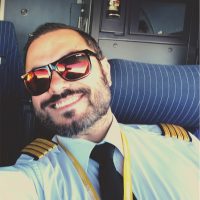
Andrés Ospina, Founder of the Aeronaut
Agile and results-oriented airline transport pilot with over 15+ years of management experience, specializing in integrated flight training and safety solutions for the aviation industry. Recognized as a senior training manager, Andrés excells in leadership roles within flight, training, and safety projects. As a Captain of short and medium-range domestic and international flights, he is deeply committed to ensuring safety and operational efficiency. Notably, Andrés serves as the EBT/CBTA project leader, bringing expertise in evidence-based training and advanced qualification programs to enhance training methodologies. Accomplished in overseeing IOSA audits, full flight simulator incorporations, ground instruction, SMS implementation and monitoring, synthetic flight instruction, and pilot selection. Andrés is a seasoned professional known for developing technical, operational, and instructional content, showcasing proficiency in design and editing. Excels in investigating and implementing best practices for aviation training methodologies.
Pilot & Ab Initio Training Conference
Day 3 – Thursday 2nd May 2024 – Session 9
Fit to Fly – Human Factors Panel: Stress, Fatigue and Mental Wellness
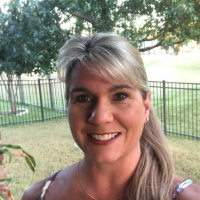
Tanya Phipps, Aviation Safety Inspector, Federal Aviation Administration
Tanya Phipps is an Aviation Safety Inspector with the Federal Aviation Administration. She has been with the FAA for 23 years and has been deeply involved with Advanced Qualification Programs (AQP) for the past 16. She has had regulatory oversight for several large air carrier AQP’s and worked three major mergers that involved AQP’s. Tanya currently holds a position with AFS-280, The Training and Simulation Branch as an AQP subject matter expert. She acts as the FAA chairperson for several Extended Review Teams and is the point of contact for carriers transitioning their Inflight training programs to an AQP. Tanya also instructs an AQP course for the FAA Training Academy designed to familiarize inspectors to the dynamics of AQP.
Cabin Crew Training Conference
Day 2 – Wednesday 1st May 2024 – Session 7
Training Cycle Extension
Using data collected from an Advanced Qualification Program (AQP) an air carrier can request an extension to the training and evaluation cycle. The FAA will consider approving extensions to the duration of continuing qualification cycle and evaluation period if evidence substantiates that the extension will maintain or increase the level of safety for that carrier. To obtain approval, an applicant must be able to show that individuals subject to the AQP are able to maintain their knowledge and skills under the already approved schedules. In addition, it must show that a rational basis exists for believing that no loss of knowledge, skill, or ability, which could compromise safety, will result from an extension.
Cabin Crew Training Conference
Day 3 – Thursday 2nd May 2024 – Session 9
Extended Reality in Cabin Safety
Extended reality (XR) is a collection of technological modalities that have increasingly grown and expanded over several decades. The technology’s growth and expansion has given way to new and novel use cases across an array of practical applications. XR is a unifying term that describes existing technologies such as augmented reality (AR), virtual reality (VR), and mixed reality (MR), and is expected to describe similar future technologies in this area. Several industries are applying various aspects of XR into training and daily operational tasks. Yet, there is a general lack of data-based evidence that significantly supports XR’s use as an effective training modality in trade-specific and adult learning applications. Beyond the science of knowledge transfer, airlines are looking to regulatory authorities to approve and certify the use of this technology in flight attendant training, among others. Work is underway to develop such guidance for regulators, as is scientific research to understand if there are any quantifiable benefits or value in incorporating this technology into the classroom or workflow. Research in these areas is needed the most. Each area requires the input, cooperation, and collaboration from an array of knowledge reservoirs among industry, academia, and government to understand the best application of this technology in Advanced Qualification Programs and traditional Part 121 N and O training approaches. The future of XR in training and operational job tasks is broad. There is also potential for positive outcomes in other areas such as passenger education, integration with emerging technologies and trends, and cabin safety research.

Cedric Paillard, COO, The Airline Pilot Club
Cedric Paillard, with a career spanning high-tech industries and aviation, has led large technology projects globally. His work with technologies like 4G and Big Data, AI combined with his aviation accomplishments as an Airline Pilots, showcases his diverse expertise. Paillard holds degrees in Electronics and Wireless Communication Engineering, has an EASA & FAA ATPL. His unique blend of tech savvy and aviation skills underline his dynamic leadership and innovative approach.
Pilot Training Conference
Day 2 – Wednesday 1st May 2024 – Session 6
AI and Psychometrics in Pilot Selection & Recruitment: A Collaborative Model for Sustaining Quality Pilot Supply
In the quest for sustainable solutions to the pressing pilot shortage, innovative methodologies are crucial. The adoption of psychometric assessment, AI, and a powerful SaaS Applicant Tracking System represents a paradigm shift in pilot training and recruitment. This model facilitates a streamlined process, connecting qualified candidates with airlines more efficiently than ever before.
A noteworthy application of this approach is a project with Avianca, Symbiotics and The Airline Pilot Club, which successfully screened and selected 180 highly qualified pilots from a candidate pool of 1,776. This demonstrates the approach’s effectiveness and its potential to significantly impact the industry positively.
This model offers a myriad of benefits, including reduced recruitment costs and time, while ensuring a steady supply of well-trained pilots ready for airline operations. It serves as a blueprint for sustainable practices within the industry, addressing both immediate needs and long-term challenges.

Victor Potesta, Head of Commercial Aviation Program, Columbia Institute
- 30 years of experience on the aviation industry as a Cabin Crew member, has flown for 5
major airlines in Perú (Faucett, Aero Continente, Taca Peru, Avianca Peru and VivaAir Peru. - Boeing 737, Airbus A320 FAM, Airbus A330 Instructor and Designated Inspector by
DGAC Peru. - Human Factors and Safety Management specialist.
- Train the Trainer facilitator for initial and recurrent courses.
- Training and safety Consultant for 2 mayor airlines in Perú.
- Head of the Commercial Aviation Program at Columbia Institute, the largest Peruvian
aviation school (+3000 students).
Cabin Crew Training Conference
Day 1 – Tuesday 30th April 2024 – Session 4
Multimodal Learning on Initial Cabin Crew Training: A CBTA Perspective
Initial cabin crew training needs to evolve into a more active learning experience for our new generations. The traditional unimodal learning approaches are proving to be increasingly inadequate for them and are not meeting the diverse needs of our modern candidates. Multimodal learning has gained prominence as an innovative and effective method for learning, and could be adapted for cabin crew training trough CBTA.
Multimodal learning emphasizes the integration of multiple sensory modalities, such as visual, auditory, kinesthetic, and textual, to enhance the learning experience. This approach acknowledges that individuals have unique learning preferences and harnesses the power of combining various modes of information delivery. By offering multiple learning scenarios during initial training like traditional classroom, mock-ups, simulators and virtual environments; learners can engage more deeply and retain knowledge more effectively. This helps CBTA objective of supporting the design of training sessions that covers equivalent or more training objectives compared to a traditional initial training design.
One of the primary principles of multimodal learning is its adaptability. It acknowledges that every learner is distinct and ensures that the learning experience can be tailored through the use of multiple learning tools to accommodate these differences. This helps to identify the required competencies for each training session and we can adapt the mode that best suits their cognitive style and learning objectives.
In conclusion, multimodal learning represents a great opportunity for CBTA training, and puts in our hands the power of diverse sensory modalities to create a more effective and engaging learning sessions. It fosters adaptability, accommodates varied learning preferences, and promotes deep understanding and knowledge retention.
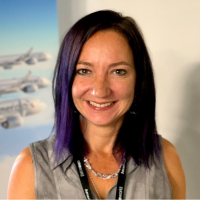
Ali Preissinger, Team Lead, Inflight eLearning and Programming, American Airlines
Ali Preissinger leads the development team producing all web-based training and media for American Airlines’ cabin crew members. In this position, she heads the project to upgrade and expand the virtual reality training program. AA began including virtual reality as a part of its Flight Attendant Initial Qualification Program in 2018. The system recently received a technology upgrade, and Ali is in the process of working to expand the use of virtual reality in other areas of AA’s cabin crew training program. Studies conducted on AA’s use of virtual reality for initial cabin crew training show an increase in scores for learners that use virtual reality training versus those that do not for door operation training. While managing this project, Ali discovered the limitations and advantages of utilizing virtual reality for cabin crew training. She is passionate about sharing lessons learned and training outcomes to support effective training solutions across all industries.
Ali has worked in the media, technology, and training fields for over 20 years. She is a United States Air Force veteran, and she worked on the Tech Ops training team in a previous role at American Airlines. In that position, Ali was instrumental in creating the first lesson plans for AA’s aircraft maintenance training virtual reality program as it was spun up. Ali holds a Master of Science degree in Learning Technologies, Instructional Design (University of North Texas) and Bachelor of Science degrees in both Computer Science (University of Arkansas Grantham) and Web Design & Interactive Media (The Art Institute of Pittsburgh). She is also qualified as a flight attendant.
Cabin Crew Training Conference
Day 3 – Thursday 2nd May 2024 – Session 9
Virtually There: A Journey in Cabin Crew Training
Virtual Reality technology provides a more effective, cost-saving learning solution for airline training. With over four years of VR integration blended into a formal training environment, we have early evidence to support the effectiveness of VR technology to teach door opening and emergency procedures to flight attendants. We saw a significant increase in scores from measuring new flight attendants performing a series of tasks immediately after VR training. Also, using constantly evolving technology such as standalone headsets, muti-button hand controls, and improved graphics quality have made it difficult to set standards; however, we have begun to identify and define best practices for Virtual Reality-based training.
How can airlines harness the power of Virtual Reality while remaining grounded in skill-based training and assessments?
This presentation will cover the past, current and future journey of using Virtual Reality for cabin crew training. We will feature a live Virtual Reality presentation. A development team from American Airlines and Quantified Design will cover the results of flight attendant surveys and the corresponding data analysis. These results include flight attendant behavior changes, flight attendant engagement, human factors, and overall core competency improvements. We discuss the technology transition from tethered to standalone headsets and the decisions that led us to that change. Then, we will review implementation challenges and some of the solutions and practical application use cases we had to overcome. Some of these choices helped us to set up the architectural framework to support future iterations. Finally, we will cover important lessons learned in establishing the current and future implementation of integrated classroom and Virtual Reality training. Immediately following the presentation, we will have an open question-and-answer session.

Yogi Rana, Director of Product, Covalent Networks
Yogi Rana is the Director of Product at Covalent, where he validates net new solutions and brings them to market. He’s currently spearheading an initiative at the intersection of workforce training and in-shift job scheduling in partnership with leading vehicle manufacturers and service providers. Previously, while at PTC, he developed and launched solutions for Work Instructions and Head Mounted Displays that leveraged innovative technologies such as Augmented Reality and AI. Yogi has a degree in electrical engineering from Boston University.
Maintenance Training Conference
Day 3 – Thursday 2nd May 2024 – Session 9
What the Aero Industry is Learning from the Auto Industry
Covalent provides an enterprise SaaS solution that enables technical training programs in complex industrial environments. Customers include multiple jet engine manufacturers and service providers each with 25+ sites and 5,000+ users.
Covalent is often a complement to or an extension of existing corporate learning management systems (LMSs). Available on AWS GovCloud and in multiple languages and multiple countries.
We started as a research team at Harvard Business School that originally developed a solution to help employers administer apprenticeship programs.
Real-world training insights:
- Getting cross-functional buy-in
- How skills data enables Operations and Quality initiatives, such as increasing labor utilization, reducing cost of poor quality, etc.
- How aerospace leaders are adopting best practices from automotive leaders
- Tracking ramp in work output/performance against benchmarks
- Work output as an input to obtaining and maintaining skills
- Helping frontline leaders answer: “Who should work on what?”
- How linking skills to jobs/tasks enables more accurate workforce planning.

Captain Chris Ranganathan, Chief Learning Officer - Civil Aviation Training, CAE
An experienced pilot, Chris has been involved in pilot training and management for over 20 years, in an aviation career spanning more than 30 years.
During his career, he has led the operations and training departments at several airlines, where he was instrumental in the introduction of innovative training concepts such as AQP, EBT and MPL.
In his current role, he is responsible for leading CAE’s Civil Global Training Organisation, including Regulatory Affairs, Training Policy & Learning Science, Aviation Safety, Quality Assurance and Training Performance.
A former CAT Magazine Pioneer award winner, Chris holds a Masters degree in aviation management and is a Fellow of the Royal Aeronautical Society.
Pilot Training Conference
Day 2 – Wednesday 1st May 2024 – Session 6
Technology to Support Risk Based Training Programs (such as CBTA/EBT/AQP)
This presentation is designed to address the evolving needs of pilot training in the modern aviation landscape. It expands on the traditional use of flight simulators for type ratings, proposing their enhanced role in developing broader pilot competencies, with a focus on the integration of subtle failure simulations, ATC simulation and advanced telemetry, including gaze tracking, for a more nuanced assessment of pilot performance.
A key aspect of this presentation is the introduction of subtle failure simulations in training programs. Unlike major system failures, subtle failures are less obvious and more insidious, often requiring high levels of vigilance and monitoring skills from pilots. These scenarios are crucial for training pilots to identify and respond to gradual changes in aircraft performance or minor system malfunctions, which, if unnoticed, could lead to critical situations.
In addition to simulating subtle failures, we will discuss the incorporation of advanced telemetry in pilot training – particularly gaze tracking technology. Gaze tracking provides instructors with real-time data on where a pilot is looking during a simulation, offering valuable insights into their monitoring behavior and attention distribution. This technology enables a more objective and detailed assessment of a pilot’s ability to effectively monitor and manage the cockpit environment, especially during complex or unexpected situations.
The presentation will also cover the need for realistic Air Traffic Control (ATC) simulation and how this adds to the immersion and operational relevance of training scenarios. This includes enhancing communication skills with ATC and managing routine operational threats effectively, a crucial aspect for both inexperienced and experienced pilots.
We will explore the technological and collaborative efforts needed to implement these advancements, emphasizing the role of partnerships between OEMs, training providers, TDMs, and regulatory bodies. This collaborative approach is vital for developing comprehensive training programs that not only comply with current standards but also anticipate and prepare for future challenges in aviation.

Robert Reckert, Manager Air Transportation Division, AFS-200, Federal Aviation Administration
Robert Reckert is the manager of the Air Transportation Division, AFS-200. The Air Transportation Division is part of the Office of Safety Standards within the Flight Standards Service.
The Air Transportation Division is responsible for the regulations and policy governing the certification, training and the operational aspects of air carriers and commercial operators, air agencies, and air carrier airmen. It is also responsible for management and oversight of the National Simulator Program (NSP), air taxi insurance certification functions, and Operations Specifications.
Prior to his role as the AFS-200 Division Manager, Robert has served as the Acting Deputy Director Air Carrier Safety Assurance, the AFS-600 Regulatory Support Division Manager, the Portland, ME FSDO Manager, the Bradley FSDO Assistant Manager, and as a FrontLine Manager and Aviation Safety Inspector in the Windsor Locks, CT FSDO.
Robert is retired from the United States Army. During Robert’s military career, he served in various positions as an AH-64D Apache Longbow Maintenance Test Pilot and as an HH-60M Blackhawk Standardization Instructor Pilot. Prior to joining the FAA, Robert worked as a 14 CFR Part 135 Helicopter Emergency Medical Services captain.
Robert is a graduate of Norwich University and has a Master of Science in Executive Leadership. He is also a graduate of Embry-Riddle Aeronautical University with a Bachelor of Science in Professional Aeronautics. He is a Commercial Pilot; typed is the S-70 and S70M, a Certified Flight Instructor (CFI), Instrument Instructor (CFII), a Remote Pilot, and an A&P Mechanic with Inspection Authorization.
Rob and his family reside just west of Portland, Maine where his family enjoys outdoor activities and sports.
Combined Session (Pilot/Cabin Crew/Maintenance/Ab Initio)
Day 1 – Tuesday 30th April 2024 – Session 2
FAA Update

Fabi Riesen, CEO & Founder, Loft Dynamics
Fabian “Fabi” Riesen is the founder and CEO of Loft Dynamics, the maker of the first and only virtual reality (VR) pilot training devices with regulatory approval. Before Loft Dynamics, Fabi spent over two decades as an engineering technical leader at Cisco Systems (NASDAQ: CSCO), earning the company’s prestigious Pioneer Award for his innovations. During that time, Fabi constructed simulators as a hobby outside of work. With a background in electrical engineering and a lifelong passion for flying, Fabi recognized the need to enhance the safety, realism, and accessibility of pilot training globally and built a simulator to achieve that goal.
In 2014, Fabi combined virtual reality and motion platforms to create a cutting-edge VR simulator from the ground up, in his living room. By 2016, Loft Dynamics (formerly VRM Switzerland) was born, debuting a qualified VR Robinson R22 FNPT II simulator before releasing its EASA-qualified FTD Level 3 VR simulator, the Airbus H125. Today, leading manufacturers, airlines, operators, schools, and organizations around the world use the company’s VR simulators, including the Federal Aviation Administration, Los Angeles Police Department, Airbus Helicopters, Air Zermatt, Helitrans Norway, Heli Austria, and many others.
In addition to receiving his Electrical and Software Engineering and Transmission Technology degree from Zurich University, Fabi obtained an executive MBA in Business Administration from Kalaidos University of Applied Sciences.
Fabi enjoys spending time with his family and exploring the Swiss mountains in his spare time. He recently climbed the 48 summits of the Swiss Alps, all exceeding 4000 meters. Fabi also holds a private pilot license for fixed wing (PPL(A)) and is in the process of obtaining the helicopter equivalent (PPL(H)).
Combined Session (Pilot/Cabin Crew/Maintenance/Ab Initio)
Day 3 – Thursday 2nd May 2024 – Session 10
Virtual Reality in Motion: A New Technology for More Realistic Simulator Training
The EASA qualified VR training devices of Loft Dynamics are door openers for more realistic training setups in pilot operations. These simulators allow to execute creditable training and checking which enhances flight safety and reduces training cost by saving the environment. Pilot competencies like workload management, execution of procedures, leadership qualities, problem solving and decision-making skills can be promoted targeted to the trainees needs in realistic flight sessions and scenario-based trainings. This enables to train basic skills of student pilots, emergency procedures and utilizing technologies like EBT. Balancing the use of the simulator and flying in the aircraft correctly results in an increase of flight safety.
Loft Dynamics’ VR training devices provide a 3D high resolution 360° panoramic view with sun effects like shadow and realistic night representation. Unlike other technologies, the visual perception matches reality when the pilot moves the head, which is crucial for helicopter operations near the ground. Thanks to the highly dynamic motion system the pilot feels every movement of the helicopter. This enables to train junior and experienced pilots for HESLO, slope-operations and full touch down autorotation by using the conventional manipulations in the cockpit. This device permits to learn in the simulator to apply the skills in the real helicopter without adaptation.
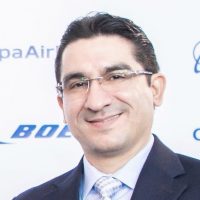
Captain Jorge Reyes, Director of Training, Copa Airlines
With more than 30 years of experience in the aviation industry in cargo and passenger ops. 20 years in Copa Airlines as a Captain & Check Airman/Simulator Instructor and Ground instructor/TRI & TRE/Panamanian AAC designated examiner. Also, active participation in projects such as: B737NG and Max Simulator acquisition and certification process team leader. Curriculum development project team member and continuous improvement active leader. Flight Operations Leader in the airline Re-certification/Validation of Special Authorizations for the B737 and E-190 fleet project. Fight Ops and training Focal for the 737 Max entry into service and RTS Team. Responsible for Flight Standards simulator Instructors Standardization. EBT developing team and certification SME. Boeing 737MAX Fleet Manager. Copa Holding Training Director to date.
Pilot Training Conference
Day 1 – Tuesday 30th April 2024 – Session 3
Enhanced Safety Results from Evidence-Based Training (EBT)
Copa Airlines has a well-established history of forward-thinking and innovation, holding a strong reputation in Latin America and globally for adopting advanced technology and training methods to improve flight safety. Therefore, it’s not surprising that the airline has taken a leading role in advocating for Evidence-Based Training (EBT) and its integration into regulatory training programs.
Their journey into EBT began a decade ago when Mike Varney, the Chief Executive of Salient, introduced the concept. Mike had initially developed this idea during his tenure as Senior Director of Training Development at Airbus and later led the International IATA/ICAO/IFALPA EBT Working Group from 2007 to 2013, leading to the publication of ICAO Doc 9995.
Captain Jorge Reyes, Training Director at Copa Airlines, explained that they were looking to transition from task-focused training to a more comprehensive approach that assesses a pilot’s core competencies during recurrent training. While they considered the Advanced Qualification Program (AQP), it was complicated to implement and not aligned with their existing regulatory framework. EBT, with its emphasis on building fundamental competencies applicable in various situations, was the perfect fit for their needs.
Traditional recurrent training often involves pilots performing a set of maneuvers to meet regulatory requirements, but it doesn’t necessarily enhance their resilience or overall proficiency. In contrast, EBT represents a paradigm shift, focusing on building competencies and fostering adaptability.
Copa Airlines collaborated with Salient to engage both unions and relevant authorities in explaining their adoption of EBT. This effort led to regulatory changes to incorporate EBT into their training requirements.
Captain Jorge oversees approximately 1,400 pilots who participate in EBT every six months, with specific focused programs for those who need additional support.
The presentation will address the objectives, engagement with instructors who are at the leading edge of the paradigm shift. In addition, ensuring that the program and instructors engage pilots in an experience relevant to their needs, backed by a non-judgmental approach to coaching and feedback. As the program matured attention was given to airline specific safety issues and a process of analysis to determine effective mitigations in FSTD training. Extensive analysis was performed by the safety team in conjunction with Salient, to maximize the relevance to safety issues. Engagement with the regulatory authority was also a key step in the process, and support for incremental change followed by full adoption and steps needed will be described.
The presentation will cover several key aspects, including the defined objectives, involving instructors who are pioneers in the ongoing shift in practices. Furthermore, it will discuss how the program and instructors engage pilots in an experience systematically tailored to their needs. This is underpinned by an approach to coaching and feedback that avoids passing judgment. As the program evolved over time, significant attention was devoted to addressing safety concerns unique to the airline. This involved a meticulous analysis to identify effective measures for deployment in the EBT FSTD program. The safety team collaborated closely with Salient to thoroughly analyze and enhance the program’s alignment with safety issues.
Engaging with the regulatory authority was also a crucial step in the process, and the presentation will outline the steps taken to secure incremental changes and eventual full adoption of the program, along with the necessary procedures.
Results have been very encouraging to the extent that after the initial mixed incremental implementation, Copa airlines has recently gained approval for full EBT implementation, making them the first Latin American airline to do so. This means that maneuver-based checks are removed, and the program as originally intended is a “First Look” no-jeopardy assessment of competencies, followed by some maneuver training and then a competency-based learning experience based on focus determined in the First Look, tailored to maximize the benefit to each pilot. The journey is one of striving for excellence, and in this a process for engaging each pilot in their own experience, the aim being to help them to develop as Individuals in a program of continuous improvement. Engagement, reflection, learning and the application of new tools to line operations has delivered substantial benefits.

James Scarpa, Maintenance Training Instructor, SkyWest Airlines
- 1985-1990: CSC Corp. – Admin for contractor development of FAA Next-Gen air traffic control testing
- 1990-1998: Southeastern Penn Transportation Authority – Light-Rail Maintenance Ops/Admin.
- 1998-2002: UPS Airlines Division – Ramp Operations/Maintenance PHL
- 2002-2005: Keystone Aerial Surveys – GA Aircraft Maintenance – Line & O/H
- 2005-2015: The Boeing Company – Assembly, Quality, Flight-Test Maintenance
- 2015-2020: Air Wisconsin Airlines – Inspector, Training Instr., MX Management
- 2020-2021: AAR Corp. Quality and Inspection for D-Checks for United Airlines
- 2022-present: SkyWest Airlines – Maintenance Training Instructor.
FAA Mechanic’s License: Airframe & Powerplant Certificate (2000)
Various part-time roles with several Aviation Training Schools as Maintenance Training instructor.
Maintenance Training Conference
Day 3 – Thursday 2nd May 2024 – Session 9
How Can Remote Maintenance Training Deliver Improved Outcomes?
The electronic tools for remote communication have improved exponentially in the past few years and sophisticated reliability and audio-visual developments seemed to arrive just in time for the Covid-19 work rule changes and limitations on travel. Many training requirements were transferred or expanded to a new or existing remote operation. Airlines were able to continue required and optional training in the Maintenance Departments with little interruption. Can we state that the training events were at least equal to, or perhaps even surpassed the performances and outcomes from earlier meetings?
My answer was: Not yet.
Remote training clearly provides better efficiency. Once the equipment was in place for remote communication it seemed that courses could be scheduled rapidly, with almost no travel and with several instructor options. All this contributed to less time administering the training event and even more significantly – less cost.
Was this new delivery of training effective?
My experience seemed to indicate: No.
Remote training needs to be recognized as a distinct form of communication. Just as a live theatrical performance is not a cinematic performance, I have learned that remote training is not a mirror image of instructor-led activity.
I would like to present 3 items for the outline of a remote training course that could be used as a framework to develop improvements for the administration of training.
Preparation, Performance, Follow-Up.
Preparation requires a suitable space that supports audio-visual communication. Simple backgrounds with no distracting “architecture” for the presenter, and proper lighting and camera arrangement for the classroom that does not leave the students “adrift” in a large room full of posters and shadows. And of course, the best technology the department can acquire, or even rent.
Performance requires instructors to practice for personal evaluation and improvement in front of cameras with proper supporting materials that will be quite different from the original paper and physical items commonly used. And interjecting professional videos and even using multiple instructors creates curiosity when they are hearing changes in voice and personality.
Follow-up allows the electronic transmission of information, testing, and the evaluation of both students and instructor performance into the future to accurately measure exact retention for accurate course improvements and instructor course tuning.
This would give the remote experience a much greater effectiveness for the maintenance staff at all levels of training.

Adam Seegmiller, Consultant, Tulmar Safety Systems Inc.
Adam Seegmiller is a highly experienced professional with a strong background in leadership, operational planning, personnel management, training, and quality assurance. With a distinguished career in the military and a wealth of knowledge in tactical awareness, Adam is well-prepared to provide expert insights on handling unruly passengers in commercial aviation.
Professional Experience:
Tulmar Safety Systems Inc. (October 2023 – Present): Adam is currently contributing his expertise in safety and security with Tulmar to augment their specialization into life-saving solutions for the tactical, military and aviation markets.
Tactical Awareness Consulting (April 2018 – Present): As the owner of Tactical Awareness Consulting, Adam has been actively involved in providing strategic insights and consulting services. His company’s focus on tactical awareness aligns with his commitment to security and safety.
Canadian Armed Forces (April 2001 – Present): Adam’s long-standing service in the Canadian Armed Forces as a Sergeant Major demonstrates his dedication to leadership and operational excellence. This experience is invaluable in understanding the intricacies of security and crisis management.
Rogue Syndicate Inc. (August 2017 – Present): In his role as a Creative Consultant at Rogue Syndicate Inc, Adam has continued to contribute his expertise to diverse projects, showcasing his adaptability and creativity.
Government of Canada (August 2014 – February 2016): Adam served as a Security Consultant for the Government of Canada, further enhancing his knowledge of security practices and protocols.
Cabin Crew Training Conference
Day 2 – Wednesday 1st May 2024 – Session 5
Unruly Passengers in Aircraft: Challenges and Solutions
The aviation industry witnessed an unprecedented surge in incidents involving unruly passengers during the return to flying after the COVID-19 pandemic. While there has been some improvement in passenger behavior, the Federal Aviation Administration (FAA) continues to highlight this issue as a serious concern. U.S. Transportation Secretary Pete Buttigieg emphasized the gravity of the situation, stating that unruly behavior poses significant safety risks for both passengers and crew, prompting aggresive measures to address it, including criminal prosecution and hefty fines of up to $37,000 per violation.
This presentation explores the challenges posed by unruly passengers on commercial aircraft and presents a multifaceted approach to mitigate such incidents. Most airlines currently train their cabin crew in the use of passenger restraint kits (PRKs) during initial training. However, our research suggests the need for recurrent training, ideally on an annual basis, to ensure cabin crew remain well-prepared to handle unruly passengers effectively.
Beyond PRK utilization, cabin crew must prioritize preventive and de-escalation techniques to defuse situations before they escalate to a point where a PRK becomes necessary. This proactive approach not only safeguards passengers and crew but also enhances the overall in-flight experience.
Furthermore, this presentation delves into the legal obligations that airlines bear when employing PRKs, shedding light on the regulatory and liability aspects that need to be understood and upheld by airlines. Compliance with these legal responsibilities is essential to ensure passenger safety and protect airline interests.
In conclusion, the increasing incidents of unruly passengers demand a comprehensive response from the aviation industry. This paper addresses the need for ongoing training of cabin crew, emphasizes preventive strategies, and underscores the importance of understanding legal obligations related to PRK use. By adopting these measures, the aviation industry can better safeguard passengers, crew, and the overall integrity of air travel.

Søren Seindal Agner, CEO, AEROTEAM Training Solutions
I have been in aviation for more than 35 years
- Tour-guide / Cabin crew for a charter operator in Denmark for 10 years.
- Pilot for various airlines in Denmark for 10 years, i.e., SAS flying the MD80
- ATPL ground instructor for 15 years
- CRM instructor since 2004
- Approved Training Manager for our Part 147 Maintenance Training Organisation.
- MCCI simulator Instructor for Multi Crew Coordination courses
- Member of the Danish Flight Safety Council since 2010 dealing with human factors.
I have been involved in training for 20 years and is always looking for new ways to enhance the learning experience.
Maintenance Training Conference
Day 2 – Wednesday 1st May 2024 – Session 5
The Next Evolution of Engineering Training for Maintenance Technicians
Introducing Scenario-based training into the Maintenance Environment.
We believe in ACTIVE LEARNING.
We need to facilitate the training in a way, that gives us the greatest learning effect.
By introducing scenario-based training, we create a link between classroom theoretical training and practical training to the operational environment. By engaging the participants in relevant training scenarios, we increase the motivation and the skills of the trainees as well as of the instructors.
Furthermore, we are given the opportunity to evaluate and assess the competencies in the training environment. By incorporating ICAO Competencies for Aircraft Maintenance Personnel in the training, we are able to provide relevant and better feedback to the engineers. We can then transfer this knowledge to the operational environment in the workshops, the hangar and around the aircraft and compare the performance in both environments.
It is also of utmost importance that the assessment itself is valid and that the instructors have the competency to assess competencies, so there is a general line in the assessment within the company. We have been assessing technical skills for many years and that is not new to the engineers. However, when it comes to assessment of non-technical skills, there is still a challenge in evaluating the performance, since we are looking at so many different parameter and behaviours.
Therefore, the assessment must focus on observable behaviour and not the task and furthermore, should contain an element of and a possibility to exercise self-assessment.
Introducing active learning and scenario-based training into the training environment is one way of obtaining a high level of learning and at the same time being able to assess competencies of the maintenance staff and as well as enhancing the knowledge and skills of the instructors.

Davy Snowdon, MBE, Founder & CEO, Pristine Condition International
Meet our Founder and CEO, Davy Snowdon MBE. With a remarkable journey from Olympic conditioning guru and former Guinness World Record holder in weightlifting to a renowned coach, Davy has blazed a trail of success.
Following his memorable journey at the Atlanta Olympics in 1996, Davy founded Pristine Condition International Ltd, driven by his passion for safety and well-being.
In the intervening years, Davy has revolutionised manual handling training with a unique and innovative approach that continues to deliver unprecedented results across all industrial and commercial sectors and is now regarded by many as the world leader in reducing manual handling injuries.
In 2014, his exceptional dedication earned him the prestigious MBE honor from Queen Elizabeth II for his pioneering work in industrial safety and his contributions to the nation’s health.
Davy’s commitment to excellence and his relentless pursuit of safety and well-being have been the guiding lights of Pristine Condition’s mission.
Cabin Crew Training Conference
Day 2 – Wednesday 1st May 2024 – Session 5
Maintenance Training Conference
Day 2 – Wednesday 1st May 2024 – Session 6
Navigating the Skies of Aviation Culture Change
In this fascinating presentation, Davy Snowdon MBE, Owner and CEO of Pristine Condition International, takes the audience on an intriguing journey through the unexpected intersection of Olympic Weightlifting and the aviation industry. As he unfolds the masterclass, Davy sheds light on how this seemingly unrelated discipline has brought about significant changes in aviation practices.
Shifting gears, Davy directs our focus to the paramount realm of aviation safety. More than just emphasizing the importance of manual handling training, he delves into the essence of making these changes sustainable, ensuring they become an integral part of a company’s culture. The question then arises: How does one transform an aviation business’s safety culture through training?
Davy offers insights into this transformative process by briefly exploring the advant of AI making its way into industry. He envisions the future of manual handling and discusses strategies to seamlessly integrate safety measures into the core of organizational culture.
With a dynamic presentation style, Davy shares his perspectives and seamlessly transitions to a bespoke video crafted exclusively for WATS Conference 2024. This video encapsulates common activities in aviation, such as working with trolleys and overhead bins, providing a visual understanding of the discussed concepts.
This presentation not only enlightens the audience on the unexpected connections between Olympic Weightlifting and aviation but also leaves them with a renewed understanding of how manual handling and safety culture can shape the future of the industry.

Anne Sølvsteen Knudsen, CEO, NaviMinds ApS
Anne has been in the aviation industry since 1987, working as a cabin attendant as well as later a pilot and simulator instructor on the Boeing 737. She retired from her job as an airline captain in 2016 and is now the CEO in her own company, NaviMinds.
NaviMinds is a larger player on the human factors training market in Europe and was this year the winner of the award for Most Innovative Training Provider and winner of Best Aviation Crew Resource Management firm.
Cabin Crew Training Conference
Day 2 – Wednesday 1st May 2024 – Session 6
Epigenetics – The New Black! And Thoughts About Future Training in Cognitive Processes and Mental Health
During their work, flight attendants are exposed to special health-related challenges. In one study, which investigated the health status of cabin crews it was found that cabin crews have significantly more sleep problems, depression, anxiety, and fatigue than the average population.
Through our peer support programme (www.pilotpeersupportprogramme.com), we found that the majority of crews who made contact with us reported stress-related problems, which in time can lead to depression or burnout. This leads me to the conclusion that we need to find a new way of dealing with the training of airline crews.
If we want to train crews to handle challenging jobs and stressful situations better, we need to help them build resilience.
How do we do that? This is where epigenetics come into play.
Scientists now have proof of how our thoughts can cause specific molecular changes in our genes. A new study by researchers in Wisconsin, Spain, and France reports evidence of specific molecular changes in the body following a period of intensive mindfulness practice.
After a mere eight hours of mindfulness practice, the meditators showed a range of genetic and molecular differences. This included altered levels of gene-regulating machinery as well as reduced levels of pro-inflammatory genes, which in turn correlated with faster physical recovery from a stressful situation. In fact, science reveals that we can change the fate of our cells by altering our thoughts.
In my presentation, I will expand on the above statements and give real-life and scientifically proven examples of how practicing mindfulness can not only help overcome stress but also help crews become more resilient.

Jason Stanelle, Associate Technical Fellow & Chief of Design, Boeing Commercial Maintenance Training
Christopher (Jason) Stanelle is an Associate Technical Fellow and Chief of Design for Boeing Commercial Maintenance Training, where he leads the evolution of instructional design in the commercial maintenance space.
Jason has over 25 years of experience in aerospace maintenance and training as line & base mechanic, maintenance instructor, and instructional designer. Jason joined Boeing in 2008 as an avionics instructor focusing on the 737 and 777.
Prior to Boeing, Jason served on active duty in the U.S. Air Force as an avionics craftsman and master instructor, with experience maintaining C-130E and C-17A aircraft.
Jason is currently active with the European Aviation Maintenance Training Committee (EAMTC), working group for competency-based training and assessment.
Maintenance Training Conference
Day 2 – Wednesday 1st May 2024 – Session 5
Training Efficacy Evaluation in Aviation Maintenance
As the aviation industry moves into the next age of maintenance training, developing resilient maintainers has become the focus of training systems and programs. Resilient maintainers are those that have the competence and confidence necessary to operate in today’s maintenance ecosystems.
We believe that maintainers who consistently participate in Competency-Based Training and Assessment (CBTA) learning experiences will demonstrate greater levels of performance, and will be more prepared to operate and maintain aircraft safely, thus providing greater value to their organization. How do we prove that hypothesis? How do we measure the resilience of maintainers and its impact on maintenance operations?
Training efficacy is the systematic evaluation of the effectiveness of training programs. Successful efficacy measurement shows where training is makes a difference in performance and where improvements can be made to training to create even greater impact on operational outcomes.
Efficacy evaluation has three main purposes:
- Collect empirical evidence of training’s impact on industry safety, supporting regulatory rule-making and auditing.
- Demonstrate the intrinsic and economic value of training to support organizational decision-making.
- Create levers and mechanisms used by training departments to optimize instructional systems and training programs.
Efficacy evaluation poses several key challenges. First, data sources aren’t always available or consistent. Second, determining causality requires that we isolate the impact that training has from other factors that may induce variation. Thirdly, operationalizing efficacy evaluation at scale requires an automated and continuous approach to data collection and analysis.
We will discuss our perspective on training efficacy measurement and the value it provides to training organizations, and explore a few strategies organizations may use to begin implementing efficacy evaluation.
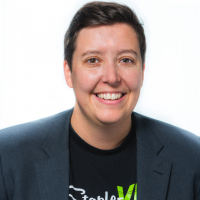
Aliesha Staples, CEO, StaplesVR
Aliesha Staples is the founder and director of StaplesVR an emerging technology company that creates training products for defence, aviation, medical, first responders and health and safety as well as technology solutions for the film industry. Aliesha is highly sought after both locally and abroad as a producer of AR/VR content and has produced projects for clients such as the New Zealand Defence force, Jetstar and Air New Zealand. She is also an independent director who chairs the NZFF and sits on the board of TVNZ and the New Zealand Institute of Directors.
Maintenance Training Conference
Day 2 – Wednesday 1st May 2024 – Session 8
Cabin Crew Training Conference
Day 3 – Thursday 2nd May 2024 – Session 9
How to Get Started with Emerging Technologies?
Augmented and Virtual reality has been named as revolutionary and disruptive for the aviation training industry, the technology increases knowledge retention, muscle memory, training consistency and access to training while lowering the environmental impact and cost but where do you even start and what are the pit falls and watch outs when implementing new technologies such as AR and VR into your training environment?
How to manage the data, the hardware and how to ensure trainees can easily use the new systems? How to ensure your journey with new technologies doesn’t end with toys sitting in a cupboard.
This talk will run through the life cycle of AR/VR technologies and why now the time is right for the aviation industry to sit up and take notice of these emerging technologies.
Aliesha Staples is a producer of AR/VR technologies and has been working in the aviation sector developing “serious games” or business tool applications for over 15 years. She founded StaplesVR which is a global company with a focus on Aviation training products using new technologies and has seen the good the bad and the ugly when it comes to implementing the technology in the world place. This talk will go over some of the incredible benefits for the trainee and company if implementing this technology in the right way.

Paul Stevens, CEO, Mayflower College
Paul has been involved in the teaching and testing of Aviation English for 30+ years. His latest project is to help native English speakers to improve their communication skills with non-native English speakers.
Experience:
- Mayflower College, CEO (1988-present). An English language school specialising in the teaching of Aviation English.
- Test of English for Aviation, CEO (2009-present). A licensing test accredited by the UK CAA and numerous other national Aviation authorities. ~75,000 pilots and ATCO’s have been tested throughout the world.
- Climb Level 4, Owner (2012-present). A 200-hour online Aviation English training programme for pilots and ATCO’s.
- SayAgain, Owner (2021-present). An online training programme to help native English speaking pilots and ATCO’s become better communicators.
Cabin Crew Training Conference
Day 2 – Wednesday 1st May 2024 – Session 7
Communication Without Understanding is Simply Noise – the R.E.S.P.E.C.T. Principle of Communication
Communication is a cornerstone of Aviation safety. But we are not always very good at it. In fact, communication is a factor in 70% of aviation incidents and accidents.
The acronym / mnemonic R.E.S.P.E.C.T. provides a useful summary of the principles of safe, efficient radio telephony.
The same principles can also be applied to the communication needs of Maintenance staff and Cabin Crew.

Mike Tarsa, Senior Learning Engineer, Touch & Go Solutions
Mike Tarsa is a Senior Learning Engineer with Touch and Go Solutions, LLC, and actively provides airline training development consulting to major US airlines and other training organizations.
Mike has over 22 years of experience in the development of competency-based training programs, and over 40 years’ experience as a commercial pilot, simulator check pilot, international aircraft check pilot, and leader in the development of innovative insights into pilot training and evaluation.
Mike has served as a member of the Airlines for America Training Committee (A4A), the Air Carrier Training Aviation Rule Making Working Group (ACT ARC), and as an FAA contractor in the development of air carrier operational guidance in flight path management as well as being a current Adjunct Instructor teaching the FAA’s Aviation Safety Inspector class on the Advanced Qualification Program.
Mike has contributed to several significant industry-wide training initiatives including regulatory reform analysis, rulemaking responses, and flight path management guidance, to name a few. Mike has an undergraduate degree in Education and Psychology, a Masters in Global Management, and a Graduate Certificate program, in Instructional Design from Embrey Riddle Aeronautical University.
Mike holds multiple type ratings, from Lear Jet to the MD-11 and has been a simulator and line check pilot on the B-727 and MD-11, which has afforded him the opportunity to fly around the world.
Pilot Training Conference
Day 2 – Wednesday 1st May 2024 – Session 7
Cognitive Task Analysis for Flight Path Management
While many competency-based training programs, such as (AQP, CBT, and EBT) already identify and target the knowledge, skills, and attitudes (KSAs) to support manual and automated aircraft control, FPM encompasses a much broader and deeper range of factors including operator policy, procedures, and additional task elements not presently articulated in many competency-based models.
Research over the last decade has illuminated the need to shift the focus from motor skills and procedures to very specific cognitive skills that pilots must exhibit to successfully manage the flight path through all situations.
In addition to articulating their flight path management policies and procedures, instructional designers must conduct this analysis and update their task list by identifying the requisite knowledge, cognitive skills, and psychomotor skills unique to each operator. I have termed this operationally relevant cognition.
This presentation will briefly review the background and recommendations of AC 120-23, Flight Path Management, and then focus on the KSAs that operators will need to analyze and incorporate into their competency-based systems, with a special focus on the cognitive skills required to support effective flight path management. The presentation will cover areas such as:
- The identification of terminal learning objectives (in AQP, these are the Qualification Standards). This activity, which precedes the conducting of a task analysis, requires a thorough knowledge of the subject matter domain in which the terminal objective is embedded.
- A content analysis to determine the kinds of concepts, principles, and information that a pilot would need to learn to attain the terminal objective.
- A behavioural analysis identifies those skills and behaviours that a student must learn before the terminal objective is attained (these are also known as either supporting proficiency objectives or enabling objectives).
Specific behavioural areas include:
- Perception: Pilots must be able to interpret visual and auditory information quickly and accurately, such as instrument readings and radio transmissions.
- Attention: Pilots must be able to maintain focus and attention during long periods of time, particularly during flight.
- Memory: Pilots must have a good working memory to recall important information, such as flight procedures and navigation instructions.
- Decision-making: Pilots must be able to make quick and accurate decisions, particularly in emergency situations.
- Spatial awareness: Pilots must be able to understand and navigate three-dimensional space, including the position and movement of the aircraft in relation to other objects.
- Problem-solving: Pilots must be able to troubleshoot and solve problems that may arise during the flight.
- Multitasking: Pilots must be able to perform multiple tasks simultaneously, such as flying the aircraft, monitoring instruments, and communicating with air traffic control.
- Strategic thinking and planning: Pilots must be able to plan, anticipate problems, and take proactive steps to avoid them.
- Stress management: Pilots must be able to manage stress and remain calm in high-pressure situations.
- Monitoring: Expert pilots can describe monitoring strategies appropriate for specific situations
- Identification of areas of risk/uncertainty and gaps in understanding
- The process of setting up, accessing, and comparing relevant information
- Questioning assumptions to the current situation rather than assuming an existing scheme or assumption fits.
- Task and attention management and communication
Examples to Contrast Typical Skills to Cognitive Task Analysis:
- An instrument scan is a skill. Scanning and having knowledge of what each instrument reads is a component of that skill. The cognitive skill associated with the scan is integrating that information into a Mental Model of 3D space, not just reading instruments.
- Programming and monitoring FMS and flight automation to follow a VNAV approach is a skill, but creating a contingency scenario in advance, asking yourself and your crew “what would you do if your altitude a point A is not what you planned?
- Understanding how to create divert plans based on condition, fuel, weather, operational control, etc. is a knowledge and skill, but managing the stress associated with the time pressure is a purely cognitive skill.

Mónica Teixeira, Training Manager, LAS Training
I was born in Jersey, United Kingdom on November 15 , 1979.
I have a degree in Physics and Chemistry teaching from the Sciences Faculty, University of Lisbon. I joined the Aviation Industry in 2006 as a training technician and as a physics and mathematics instructor, in several aircraft maintenance mechanics courses delivered by LASTRAINING, an aircraft maintenance training company based in Lisbon, Portugal. After a year, I was invited to be responsible for the training and the examinations
delivered in the organization, and I was in this position for five years.
In 2007 and 2008 I’ve been part of the team responsible for obtaining the EASA Part 147 certification of the organization. Between 2008 and 2009 I attended a postgraduate course in Air Transport Operations. At that time, I was challenged to deliver training as a Human Factors instructor. Due to this invitation, I attended my first Human Factors Course specific in Aviation Maintenance. And over time I’ve developed more knowledge in this area, namely by attending training in Emotional Intelligence, Teamwork, Team Motivation and Leadership.
Since 2013 I have worked as the Training Manager of LASTRAINING, maintaining the role of instructor and examiner for the Basic Training Courses for Aircraft Maintenance Technicians.
Between 2015 and 2017 I’ve attended to a Master’s Degree in Education and Training Organization and Management of Education and Training, in the Education Institute of the University of Lisbon.
During these 16 years working in LASTRAINING, I’ve had the privilege of having direct contact with hundreds of trainees who have allowed me to realize the importance of frequent monitoring and an in depth understanding of the classes. This knowledge helped our school to understand the importance of delivering specific training, vital in the development of essential skills, that combined with technical knowledge, turn our trainees more confident and able to carry out their job more effectively and safely.
Maintenance Training Conference
Day 2 – Wednesday 1st May 2024 – Session 6
Training the Next Aircraft Maintenance Generation: The Alliance Between Human Factors and Emotional Learning in Personnel Readiness
As the maintenance and repair industry continues to evolve at a breakneck pace, it is imperative to focus on training the next generation of Aircraft M aintenance Engineer s ( AME). This presentation delves into some challenges associated with th is training and offers solutions , with a particular emphasis on Human Factors (HF), Emotional Learning (EL) EL), and Personnel Readiness.
Nowadays, aircraft maintenance training faces several key challenges creating a demanding scenario: the quick pace of technological innovation, requiring ongoing training and adaptation; the aging workforce that poses a significant knowledge transfer problem as experienced technicians retire; and the need to meet safety and compliance standards, along with the diverse skill and culture set required.
Besides cognitive load, stress and situational awareness that are critical HF in AME performance, they live on emotions that dictate their answers to what happens around them. Thus, it’s urgent and crucial to emphasise EL as an integral aspect of HF training, attending that it can significantly enhance teamwork, communication, and overall job performance.
Personnel readiness goes beyond technical know-how; it encompasses soft skills, adaptability, and emotional resilience. Emotion’s subject needs to be included into learning approaches and methodologies. Trainees aren’t looking for training experiences where they just access knowledge, they want and need experiences that promote personal transformation, they need to develop new skills through lived experiences. It is vital to emphasise experiential learning gamification and immersive programmes where trainees are challenged.
AME need training solutions that make them more confident workers, able to carry out their job more effectively and safely.
In conclusion, this presentation provides a comprehensive overview of challenges and solutions in the next AME generation training. By emphasizing the importance of HF and EL , organizations can develop a highly skilled, adaptable, and safety conscious workforce capable of meeting the demands of a fast changing industry.
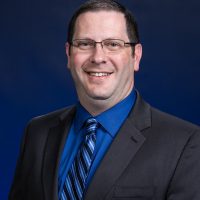
Dr. Robert Thomas, Assistant Professor, Embry-Riddle Aeronautical University
Dr. Robert “Bob” Thomas is an Assistant Professor in the Aeronautical Science Department at Embry-Riddle Aeronautical University’s Daytona Beach campus. He teaches coursework in pilot training, aircraft performance, aviation instruction, curriculum design, and photography using Unmanned Aircraft Systems (UAS). Additionally, Bob serves as the Chief Ground Instructor and a Flight/Check Instructor for ERAU’s 14 CFR 141 Pilot School Certificate. Bob’s research focuses on augmenting and improving flight training methods, education technology, virtual reality training, active learning, and assessing learner knowledge.
With 3000+ flight hours attained, Bob holds the following FAA certificates and ratings: Airline Transport Pilot ASEL & AMEL with CL-65 type rating, Gold Seal Flight Instructor ASE, AME, & Instrument-Airplane; Ground Instructor-Advanced; and Remote Pilot-sUAS.
Bob completed his Ph.D. in Aviation from Embry-Riddle Aeronautical University with a specialization in Aviation Safety and Human Factors. He has a Master of Science in Aeronautics Degree from Embry-Riddle Aeronautical University with concentrations in Aviation Weather and Education Technology. Bob also holds a Bachelor of Science in Aviation Human Factors, with a minor in Atmospheric Science, from the University of Illinois Urbana-Champaign.
Prior to becoming a professor, Bob was a full-time flight instructor at ERAU and helped form “Special VFR Productions” to create training videos and a corresponding YouTube page, which gained over 201K subscribers. Bob also was a flight instructor at the University of Illinois and at Central Illinois Air in Mattoon, IL. Additionally, Bob has experience in radio and television production with stations in Illinois serving as a Weather Broadcaster on both AM Radio and TV at WILL, a PBS affiliate, and as the Assistant Operations Manager and Evening Newscast Director for WICD, an ABC affiliate.
Ab Initio Training Conference
Day 2 – Wednesday 1st May 2024 – Session 7
Guiding the Selection of Proper XR Displays to Enable Effective Ab-Initio Training
The use of Extended Reality (XR) capabilities has enabled organizations to greatly enhance ab initio training with higher fidelity and lower costs compared to traditional methodologies. Training organizations such as Embry-Riddle Aeronautical University (ERAU) and the United States Army have used XR to conduct ab initio training for flight and collective crew training. One of the challenges when using XR technology is to identify the proper equipment, head mounted displays, and other technology needed for each specific use case. Head-Mounted Displays (HMD) exhibit significant variability in their design and capabilities, and a one-size-fits-all approach may not uniformly satisfy the diverse training requirements contingent on specific use cases. This is especially true when comparing the differences in requirements between pilot and maintenance ab-initio training.
ERAU and Cole Engineering Services Inc. (CESI) have been creating and using XR in various levels of fidelity from the ERAU Preflight Immersion Laboratory for Operations Training or PILOT program that includes Virtual Reality (VR) procedural checklist training and flight simulation, the VR Aviation Illusion Training, and the CESI portable Mixed Reality (MR)reconfigurable virtual training simulators for U.S. Army rotary wing aircraft. ERAU and CESI will share lessons learned during selection of XR and VR equipment by presenting examples of which HMDs are used in different training modalities, as well as a comparative analysis of some of the available commercial Augmented Reality (AR) and VR head mounted displays. Finally, a summary will be presented on what factors to consider when making the selection and determination of the proper HMD for specific training use cases.

Ryan Thomas, Ground Instructor, Leonardo Helicopters
Hello, my name is Ryan Thomas, and I am an instructor with Leonardo Helicopter US in Philadelphia, PA. I have been an instructor with our training academy since 2013. I teach several machines in our fleet, providing OEM training for both technician and pilot ground courses. Prior Navy, and I was an Air Traffic Controller in the FAA. I am married with three children.
Maintenance Training Conference
Day 3 – Thursday 2nd May 2024 – Session 9
Maintenance Technician Survival in the Classroom
The maintenance technician has a role in the classroom. Like pilots, technicians are required to attend training for authority and or company requirements. However, technicians may not be attending annually or even biennially. Long durations away from the training environment allow for unintended experiences in the technician training classroom. Often, arriving at the classroom is only the first hurdle. This limitation contributes to the other challenges affecting technician training in aviation. Three factors confronting aviation technical training are adult learners, diversity in technical background, and English as a second language. Through my experience as an instructor in the classroom, these three factors have been consistent more so than any other. I have the benefit of teaching in both pilot and technican courses which can give me a unique perspective. When conducting technician courses the instructor must anticipate increased anxiety by students experiencing an unease with a classroom setting, a feeling of inequality amongst their peers, and a language barrier. Quite simply, the older students can feel a disconnect with a formal training environment. The younger students can feel they may not deserve the training they are receiving. While the English as a second language students may struggle in translation. Relying on modern teaching technology, smartboards, emulators, and system specific oversimplification are ways the instructor can mitigate these factors. Aviation teaching standards or regulations maynot specifically address dedicated techniques. It is incumbent upon instructors to educate themselves about diversity in modern aviation training classrooms. That can be done by including additional certification criteria for new instructors. As well as including emphasis on such factors during recurrent training.

Captain Michael Varney, CEO, Salient
Michael has an extensive background as a pilot, instructor, examiner, and manager working in many sectors of the aviation industry. His career began in the Royal Air Force, followed by time as an airline pilot as commander on the Boeing 757/767. He worked for the UK CAA in operations and training oversight. He held management roles with Boeing (Alteon) and then Airbus in Toulouse. In his Airbus role of Senior Director Training Development Michael formed the idea which became the Evidence-based Training Project, leading the International IATA/ICAO/IFALPA EBT Working Group from 2007 until 2013, leading to the publication of ICAO Doc 9995. Michael worked in the development of FSTD’s, and his team have guided many airlines in the implementation of EBT and competency-based training programs.
Pilot Training Conference
Day 1 – Tuesday 30th April 2024 – Session 3
Enhanced Safety Results from Evidence-Based Training (EBT)
Copa Airlines has a well-established history of forward-thinking and innovation, holding a strong reputation in Latin America and globally for adopting advanced technology and training methods to improve flight safety. Therefore, it’s not surprising that the airline has taken a leading role in advocating for Evidence-Based Training (EBT) and its integration into regulatory training programs.
Their journey into EBT began a decade ago when Mike Varney, the Chief Executive of Salient, introduced the concept. Mike had initially developed this idea during his tenure as Senior Director of Training Development at Airbus and later led the International IATA/ICAO/IFALPA EBT Working Group from 2007 to 2013, leading to the publication of ICAO Doc 9995.
Captain Jorge Reyes, Training Director at Copa Airlines, explained that they were looking to transition from task-focused training to a more comprehensive approach that assesses a pilot’s core competencies during recurrent training. While they considered the Advanced Qualification Program (AQP), it was complicated to implement and not aligned with their existing regulatory framework. EBT, with its emphasis on building fundamental competencies applicable in various situations, was the perfect fit for their needs.
Traditional recurrent training often involves pilots performing a set of maneuvers to meet regulatory requirements, but it doesn’t necessarily enhance their resilience or overall proficiency. In contrast, EBT represents a paradigm shift, focusing on building competencies and fostering adaptability.
Copa Airlines collaborated with Salient to engage both unions and relevant authorities in explaining their adoption of EBT. This effort led to regulatory changes to incorporate EBT into their training requirements.
Captain Jorge oversees approximately 1,400 pilots who participate in EBT every six months, with specific focused programs for those who need additional support.
The presentation will address the objectives, engagement with instructors who are at the leading edge of the paradigm shift. In addition, ensuring that the program and instructors engage pilots in an experience relevant to their needs, backed by a non-judgmental approach to coaching and feedback. As the program matured attention was given to airline specific safety issues and a process of analysis to determine effective mitigations in FSTD training. Extensive analysis was performed by the safety team in conjunction with Salient, to maximize the relevance to safety issues. Engagement with the regulatory authority was also a key step in the process, and support for incremental change followed by full adoption and steps needed will be described.
The presentation will cover several key aspects, including the defined objectives, involving instructors who are pioneers in the ongoing shift in practices. Furthermore, it will discuss how the program and instructors engage pilots in an experience systematically tailored to their needs. This is underpinned by an approach to coaching and feedback that avoids passing judgment. As the program evolved over time, significant attention was devoted to addressing safety concerns unique to the airline. This involved a meticulous analysis to identify effective measures for deployment in the EBT FSTD program. The safety team collaborated closely with Salient to thoroughly analyze and enhance the program’s alignment with safety issues.
Engaging with the regulatory authority was also a crucial step in the process, and the presentation will outline the steps taken to secure incremental changes and eventual full adoption of the program, along with the necessary procedures.
Results have been very encouraging to the extent that after the initial mixed incremental implementation, Copa airlines has recently gained approval for full EBT implementation, making them the first Latin American airline to do so. This means that maneuver-based checks are removed, and the program as originally intended is a “First Look” no-jeopardy assessment of competencies, followed by some maneuver training and then a competency-based learning experience based on focus determined in the First Look, tailored to maximize the benefit to each pilot. The journey is one of striving for excellence, and in this a process for engaging each pilot in their own experience, the aim being to help them to develop as Individuals in a program of continuous improvement. Engagement, reflection, learning and the application of new tools to line operations has delivered substantial benefits.

Kevin Verdière, Head of Product, Hinfact
Trained as a Biomedical Engineer and Cognitive Scientist, Kevin Verdière completed his Ph.D. within the Neuroergonomics and Human Factors laboratory at ISAE-SUPAERO, studying cooperation in the cockpit. He is now Head of Product at Hinfact, a spin-off of the same laboratory, that develops solutions for critical operator training. He also serves as a reserve officer, experts in Neuroergonomics in the Defense Innovation Agency for the French Department of Defense.
Pilot Training Conference
Day 2 – Wednesday 1st May 2024 – Session 6
Enhanced (and Simplified) Pilot Training Management: The Convergence of Neuroergonomics and AI
As aircraft become increasingly complex, the need for intuitive and efficient cockpit designs is more critical than ever. By leveraging advancements in Human Factors and Neuroergonomics, we reduce cognitive loads, allowing pilots to focus on essential tasks. Extending these principles to aviation training management with the integration of AI can significantly transform the industry.
This approach not only streamlines processes for all stakeholders – including instructors, training managers, compliance managers, and training designers – but also empowers them to handle much more complex and sophisticated tasks than before, in simpler and more effective ways.
AI facilitates this transformation by enabling the development and planning of adaptive and tailored training programs that respond in real-time to the individual performance of pilots, thereby optimizing learning outcomes. This presentation will explore how applying a Neuroergonomics framework within a Training Management System (TMS) can not only simplify the delivery of pilot training but also significantly enhance its complexity and effectiveness, benefiting all involved stakeholders.

Michael Whitaker, Administrator, Federal Aviation Administration
Michael G. Whitaker became FAA Administrator in October 2023. He is responsible for helping to ensure the safe and efficient operation of the largest aerospace system in the world.
Whitaker served as Deputy Administrator at the FAA from 2013-2016, and was also the Chief NextGen Officer. He was responsible for the implementation of FAA’s NextGen modernization of the air traffic control system, moving from radar to a satellite-enabled surveillance technology.
Before becoming FAA Administrator, Whitaker was chief operating officer of Supernal, a Hyundai Group company designing an electric advanced air mobilility (AAM) vehicle.
Prior to Supernal and his tenure at the FAA, Whitaker served as Group CEO of InterGlobe Enterprises, India’s largest travel conglomerate and operator of its largest airline, IndiGo. There, he oversaw strategy and operations for four affiliate travel companies.
Whitaker also spent 15 years at United Airlines in a variety of roles as Director, Vice President and Senior Vice President. His broad portfolio at the airline included commercial alliances and joint ventures, international and regulatory affairs, and strategic counsel to the Chairman and CEO on international matters.
Whitaker began his more than three-decade aviation career as a litigator, then as Assistant General Counsel of international and regulatory affairs at Trans World Airlines (TWA).
Whitaker is a private pilot, holds bachelor’s degrees in political science and French from the University of Louisville and a juris doctorate degree from Georgetown University Law Center.
Keynote Presentation
Day 1 – Tuesday 30th April 2024 – Session 1

Dr. Nicholas D. Wilson, Association Professor of Aviation, University of North Dakota
Dr. Nicholas D. Wilson is an Associate Professor of Aviation at the University of North Dakota (UND). Nick holds a BBA in Aviation Management (2006), a BA in French (2006) from UND and received his MBA from Bethel University in St. Paul, MN in 2012. Nick completed his PhD in Educational Foundations and Research from UND in May 2021. Nick worked in the aviation/aerospace industry for several years prior to returning as a UND faculty member in 2014. Dr. Wilson holds a patent in haptic cueing in an aviation headset applications and has published numerous collaborative papers on pilot fatigue, workload, student motivation, and most recently in the sustainable aviation domain. Nick is an active pilot and aviation instructor.
Ab Initio Training Conference
Day 2 – Wednesday 1st May 2024 – Session 7
Assessing Stakeholder Opinions in the Shift to Electric-Powered Aircraft
Adopting new technologies requires time, both to prove the new technology, and to understand the opinions of the stakeholders involved and make informed decisions in the process. This is certainly true as the aviation industry considers a shift to electric-powered aircraft. As a part of a suite of sustainability-focused research activities, Drs. Nicholas Wilson and Andrew Leonard will present survey research on stakeholder interest in and economic considerations of electric-powered aircraft. Using a survey database of over 750 participants Drs. Wilson and Leonard will discuss quantitative factors such as interest in flying electric-powered aircraft, expense considerations, and selected qualitative opinions shared through the survey. Information included in this presentation will include generational-based opinions on electric-powered aircraft as well as gender differences in electric-powered flight and associated economic considerations. The data includes some counter-intuitive results. Aviation industry members and specifically the WATS audience may gain a better understanding of stakeholder opinions as we consider this important shift in powered-flight.

Jeff Wolf, VP of Government Affairs, FAA Liason, National Flight Training Alliance
Jeff Wolf is a long-established aviation professional with a passion for flying, boating, running, and cars. He graduated from Jacksonville University with a Bachelor of Science in Aviation Management and Flight Operations, which prepared him for a successful career in the air.
Jeff’s interest in aviation started when he was 16 years old, thanks to his father’s advice. After earning his first paycheck as a busboy, his father suggested, “What if you use it to take a flying lesson?” This simple idea led to Jeff’s first flight, a life-changing experience that shaped his career path and his outlook on life. Before joining the aviation program at Jacksonville University, he obtained his private pilot license.
Throughout his career, Jeff has held various influential roles, such as First Officer at Comair Airlines, Chief Flight Instructor/Owner at Paragon Flight Training, and Director of Operations/Chief Pilot at Cypress Air Charter. He received the NATA Excellence in Pilot Training Award for his leadership and skills.
Jeff is affiliated with several organizations that promote industry excellence, such as the National Flight Training Alliance (NFTA), Aircraft Owners and Pilots Association (AOPA), and the Experimental Aircraft Association (EAA).
Currently, Jeff is the Chief Flight Instructor/Owner of Paragon Flight Training and the Chief Pilot/Director of Operations for Cypress Air Charter. He plays a key role in shaping the future of aviation by training, managing, and mentoring flight instructors at Paragon. He also has extensive expertise in FAA 141, 135, and 61 regulations, and he can create a FAR Part 135 Air Agency Certificate from scratch. His journey in aviation shows the power of a simple suggestion to inspire a lifelong passion for flight.
Ab Initio Training Conference
Day 1 – Tuesday 30th April 2024 – Session 4
Does Flight Training in America Need a Fundamental Overhaul?
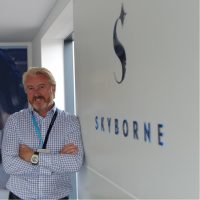
Lee Woodward, Chief Executive Officer, Skyborne Aviation Group Limited
CEO and co-founder of Skyborne Group, Lee has over 30 years experience in airline operations, training and ATO ownership.
14 years flying with British Airways on B757/767 and 747-400. A current UKCAA TRI/TRE and former COO of CTC Aviation Group. Lee founded Skyborne in 2017 and has built one of the most successful ATO/flight schools in the UK and US supplying pilots to Delta, SkyWest, United, American, Endeavour and Avelo, as well as British Airways, easyJet, DHL, Whizz Air and Ryanair. Skyborne has recently announced a renewal of its IndiGo contract and will soon be launching a cadet program with FlyDubai in the UAE.
Ab Initio Training Conference
Day 1 – Tuesday 30th April 2024 – Session 3
Different Approaches, Same Outcome? A Panel Discussion on Ab Initio Training
WATS 2024 Sponsors & Partners
Diamond Sponsor
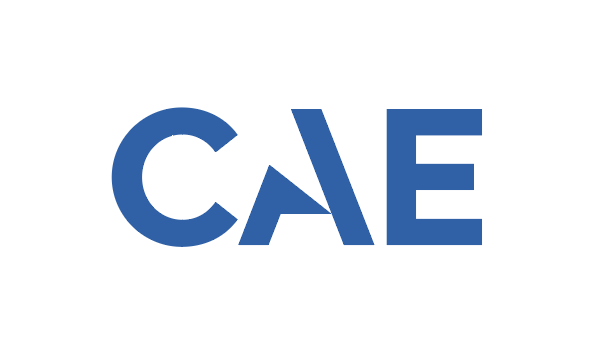
Gold Sponsor
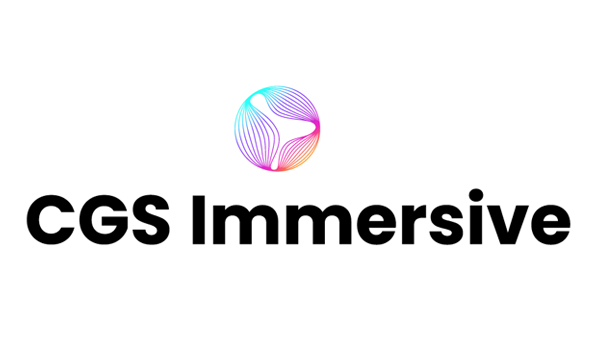
Gold Sponsor
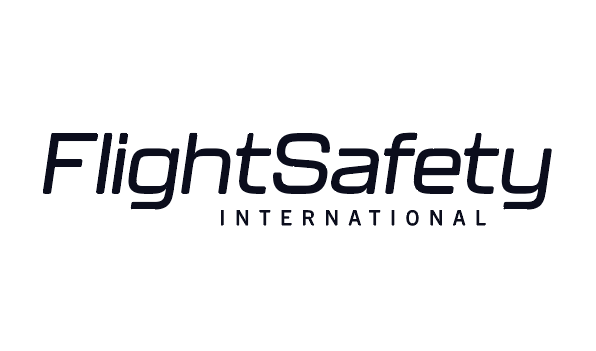
Silver Sponsor
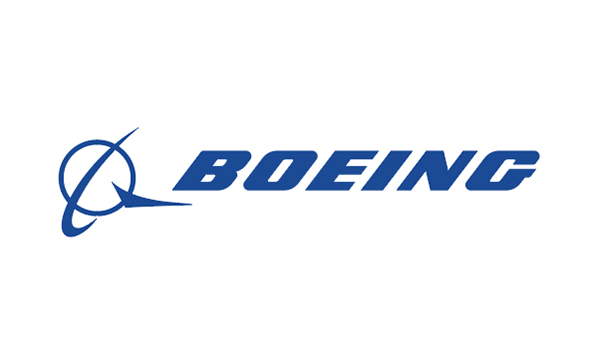
Silver Sponsor
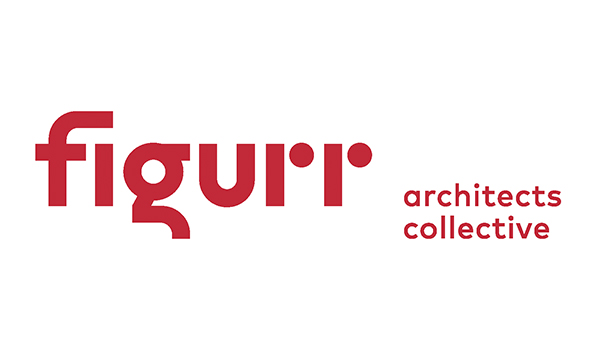
Silver Sponsor
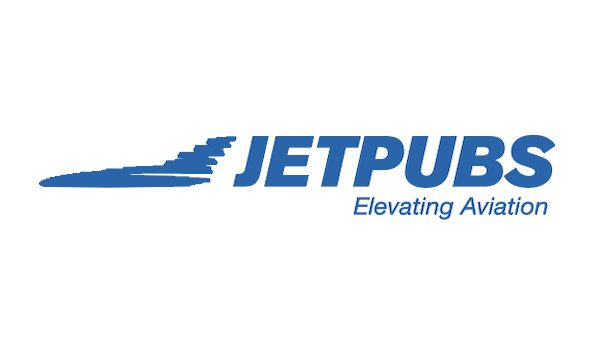
Silver Sponsor
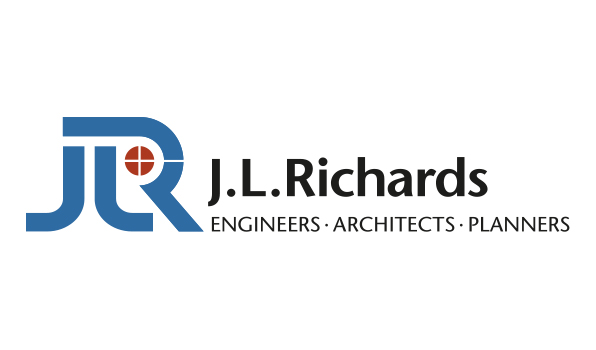
Silver Sponsor
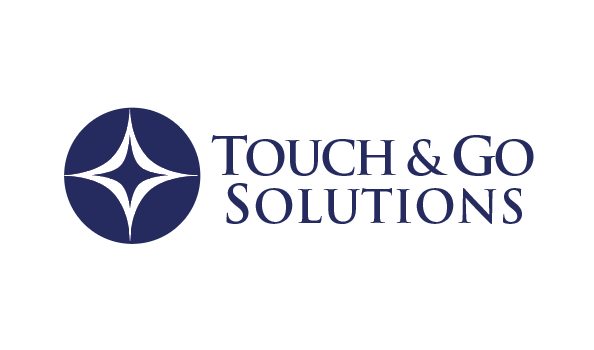
Bronze Sponsor
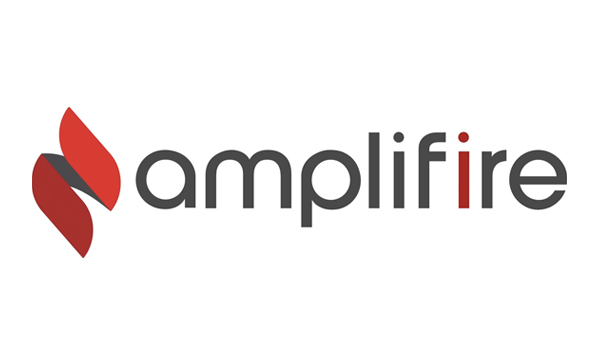
Bronze Sponsor
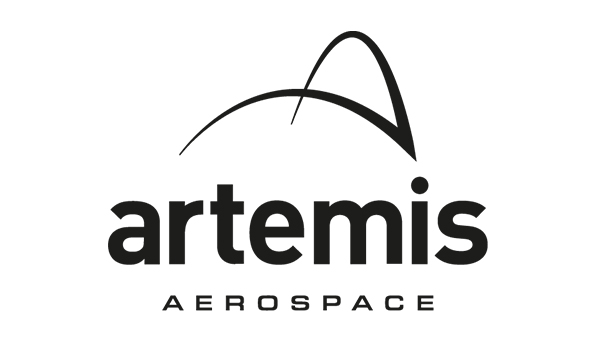
Bronze Sponsor
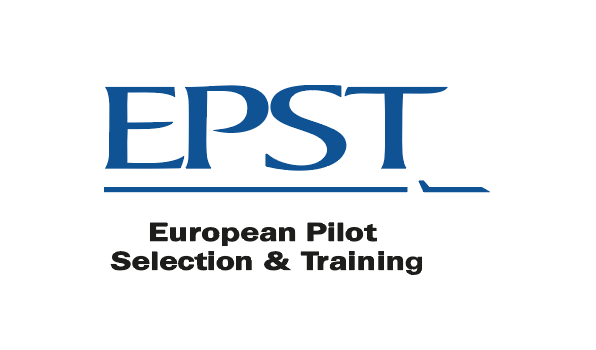
Bronze Sponsor
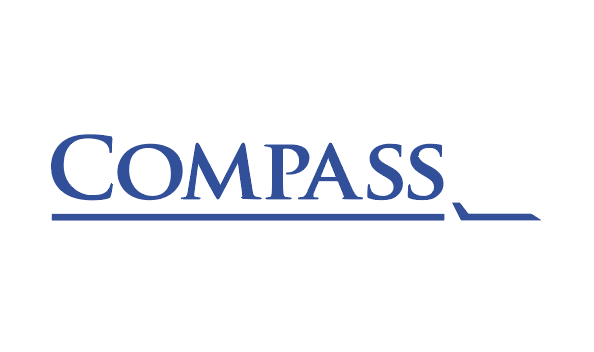
Bronze Sponsor

Bronze Sponsor
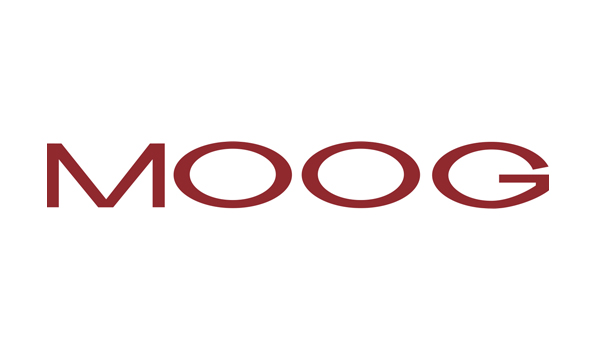
Bronze Sponsor
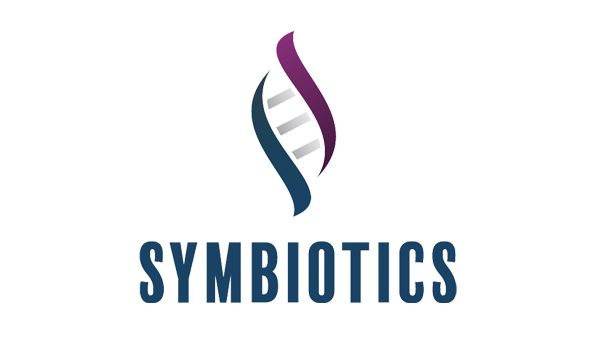
WiAT Sponsor
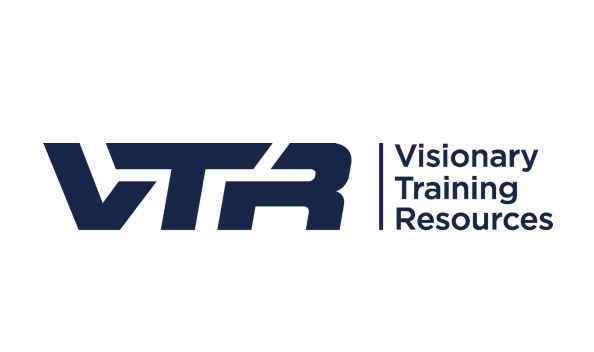
Organised By
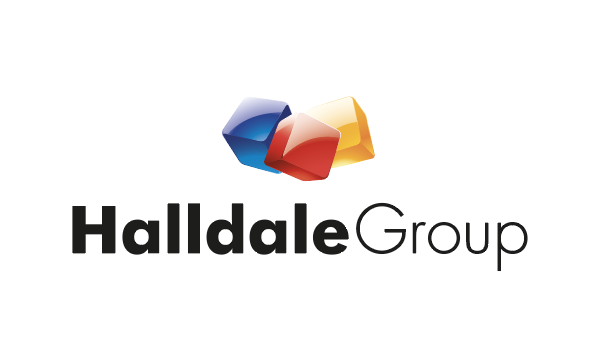
Conference By
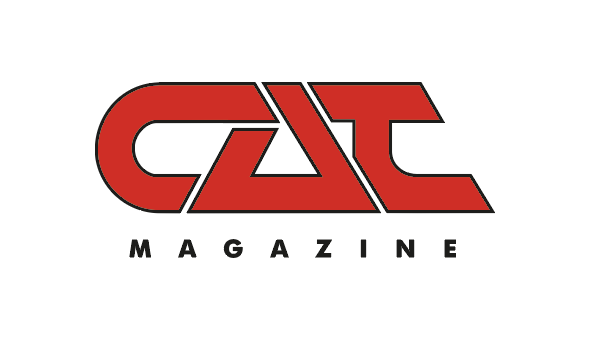
Supported By
